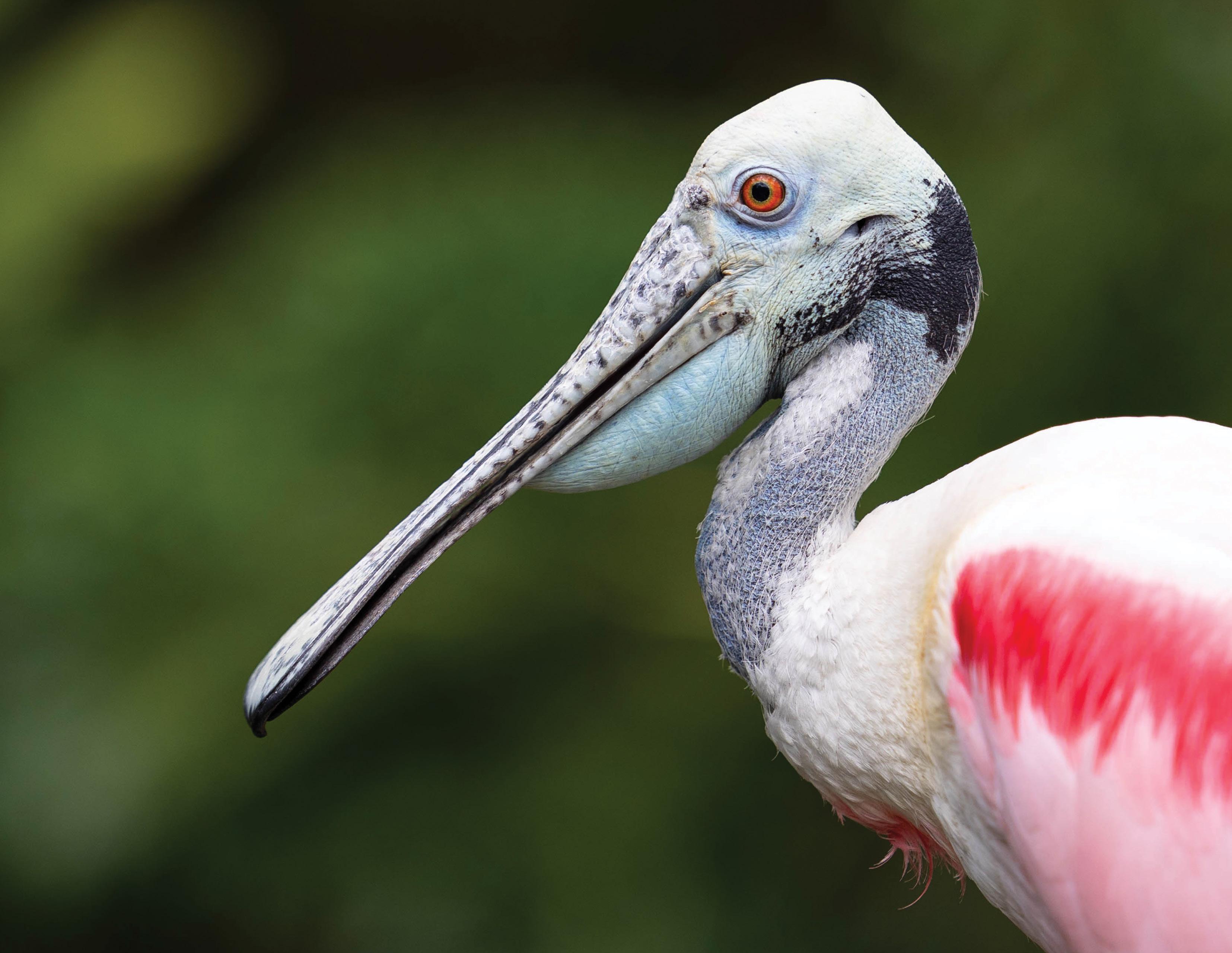

Annual Report Acknowledgements:
Designer and Photographer: Hannah Favorite
and




Annual Report Acknowledgements:
Designer and Photographer: Hannah Favorite
and

As I reflect on the past year, I am filled with pride and gratitude for all that we have accomplished together. Thanks to the unwavering support of our community, dedicated team members and passionate volunteers, we made tremendous strides in advancing our mission of conservation, education and exceptional animal care. This year, we invested $5 million in deferred maintenance, strengthening the very foundation of our Zoo and made incredible progress towards the current REZOOVENATION project, a transformative initiative that will redefine how guests connect with wildlife for generations to come.
Our dedicated Animal Care Specialists celebrated significant milestones this year, from the joyful arrival of endangered species offspring to the completion of enhanced habitats designed to promote natural behaviors and wellbeing. Through innovative enrichment programs, advanced veterinary care and collaborative
conservation partnerships, our team ensured every animal thrives in environments that support their physical, social and psychological wellbeing.
None of these achievements would be possible without you, our Members, donors, corporate partners and volunteers, whose generosity fuels every step forward. As we look ahead, we remain steadfast in our commitment to creating a safe, inspiring environment where people and wildlife thrive together.
Thank you for standing with us as we build a brighter future for our Zoo and Botanical Gardens, our community and the planet we share.
With gratitude,

Jeff Ettling, Ph.D. President & CEO
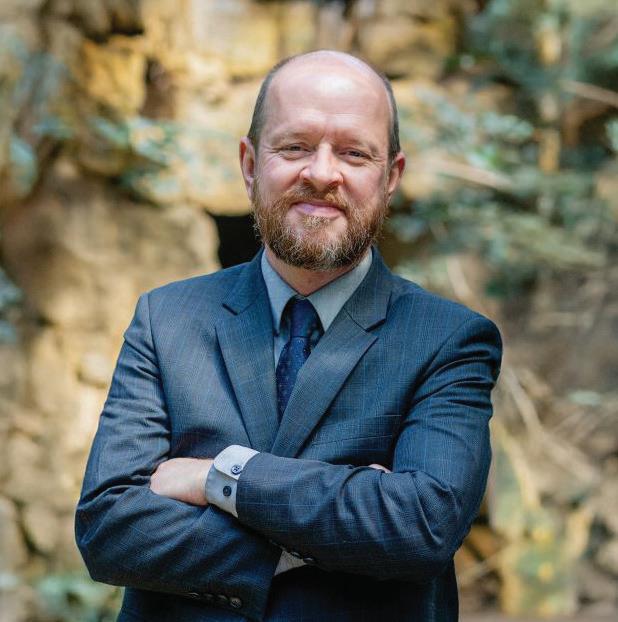
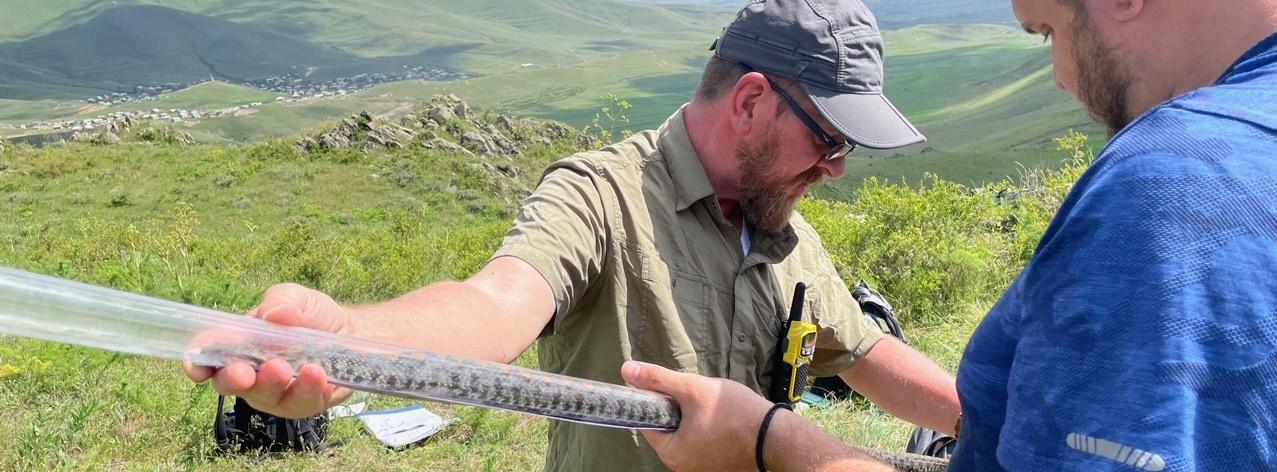
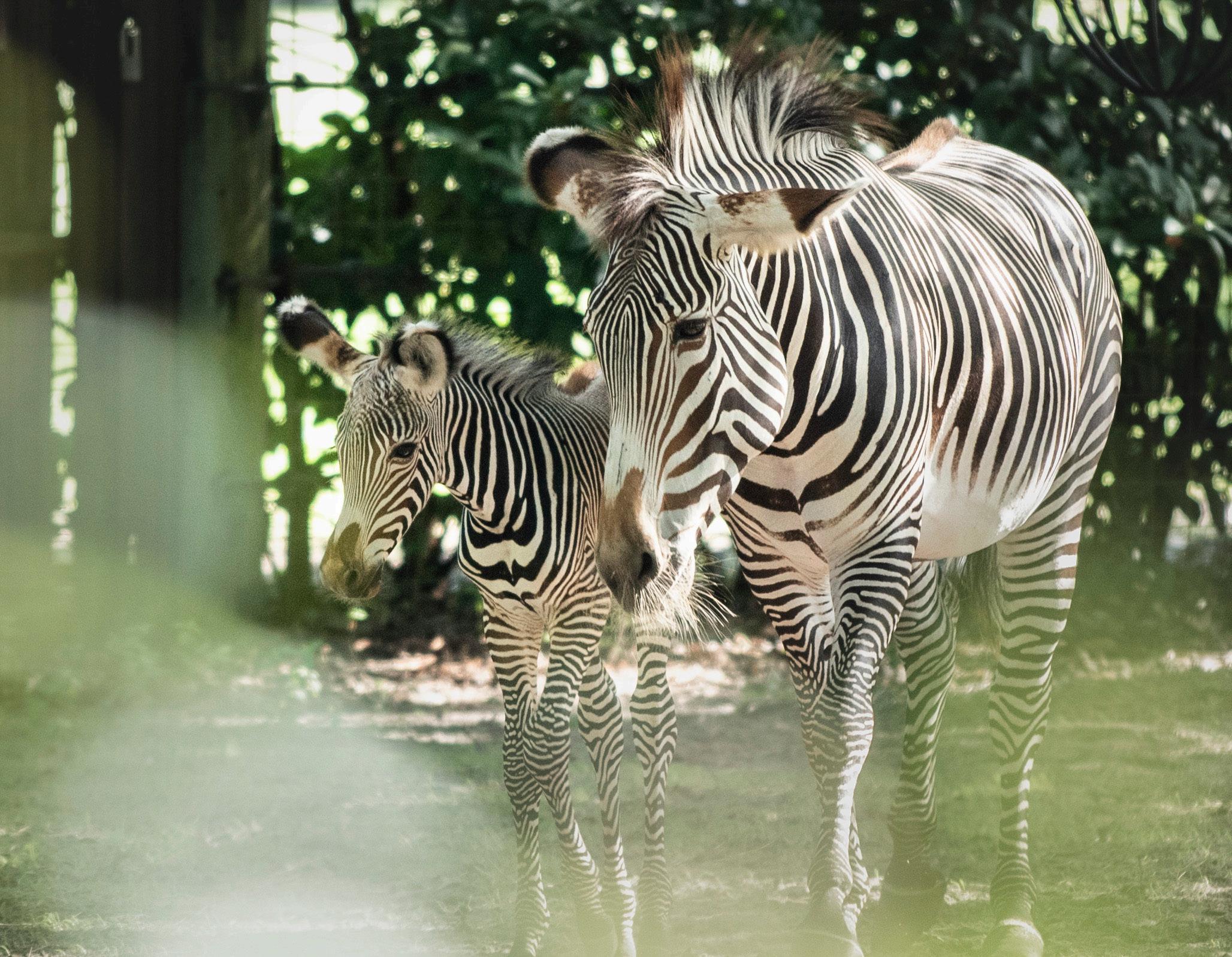
Connecting communities with wildlife and wild places.
A vibrant community energized by a connection to nature that enriches lives and inspires all to preserve and protect our natural world.
We strive to develop a collaborative culture where safety is the foundation driving our actions and interactions to create safe spaces and habitats through the cultivation of equity and well-being for all forms of life.
We commit to being proactive, emphasizing the urgency of environmental and sustainability challenges while fostering empathy, support and compassion towards our planet and its inhabitants.
We recognize that every interaction is a learning and teaching opportunity that inspires change, enriches one another and our visitors, promotes accessibility and connects our communities.
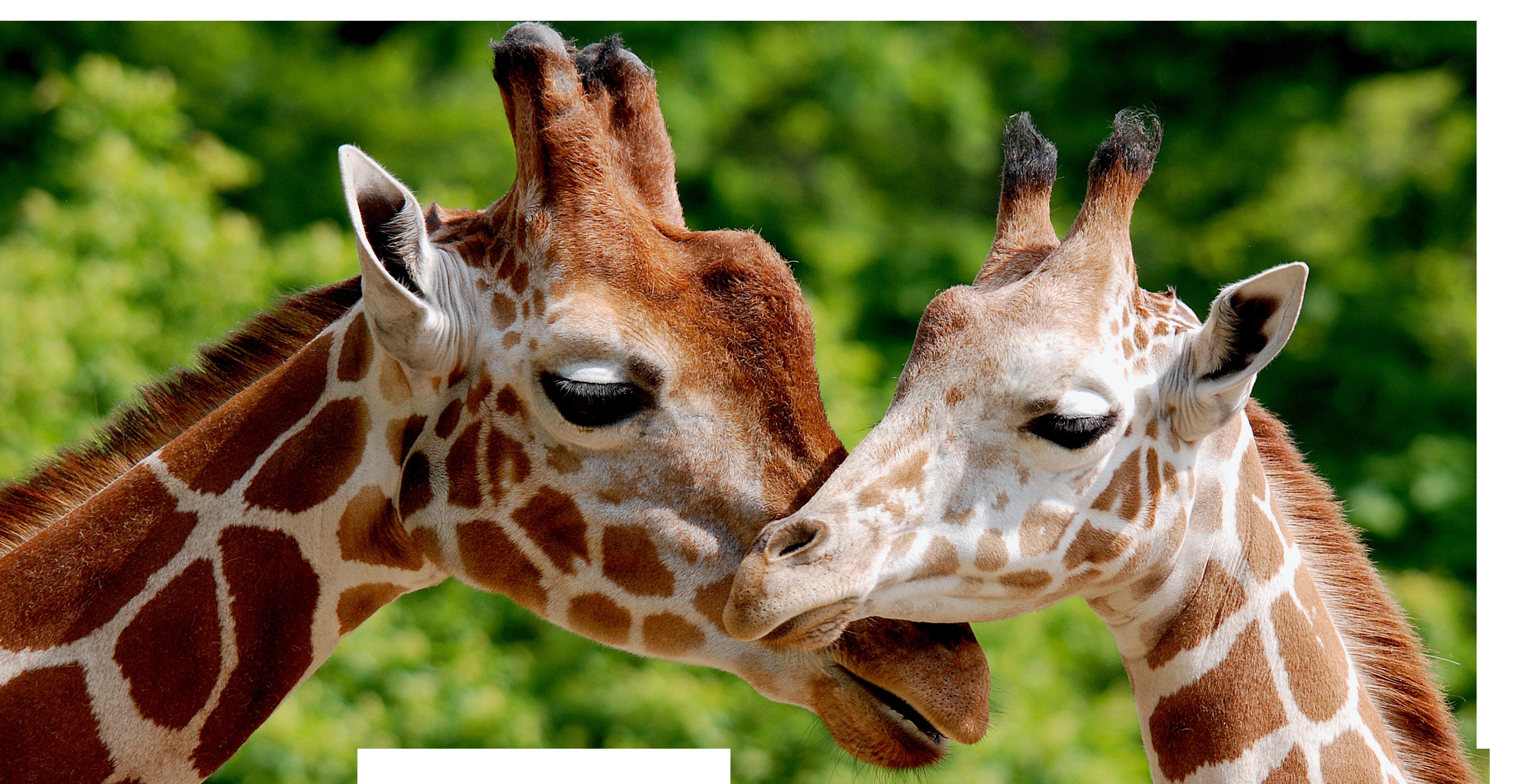
We embrace the challenge to continuously grow and develop our organization, valuing creativity and diversity to support one another and remain relevant within our community.

1. Financial Stability
2. People and Culture
3. Relevancy
4. Animal and Plant Wellbeing
5. Conservation
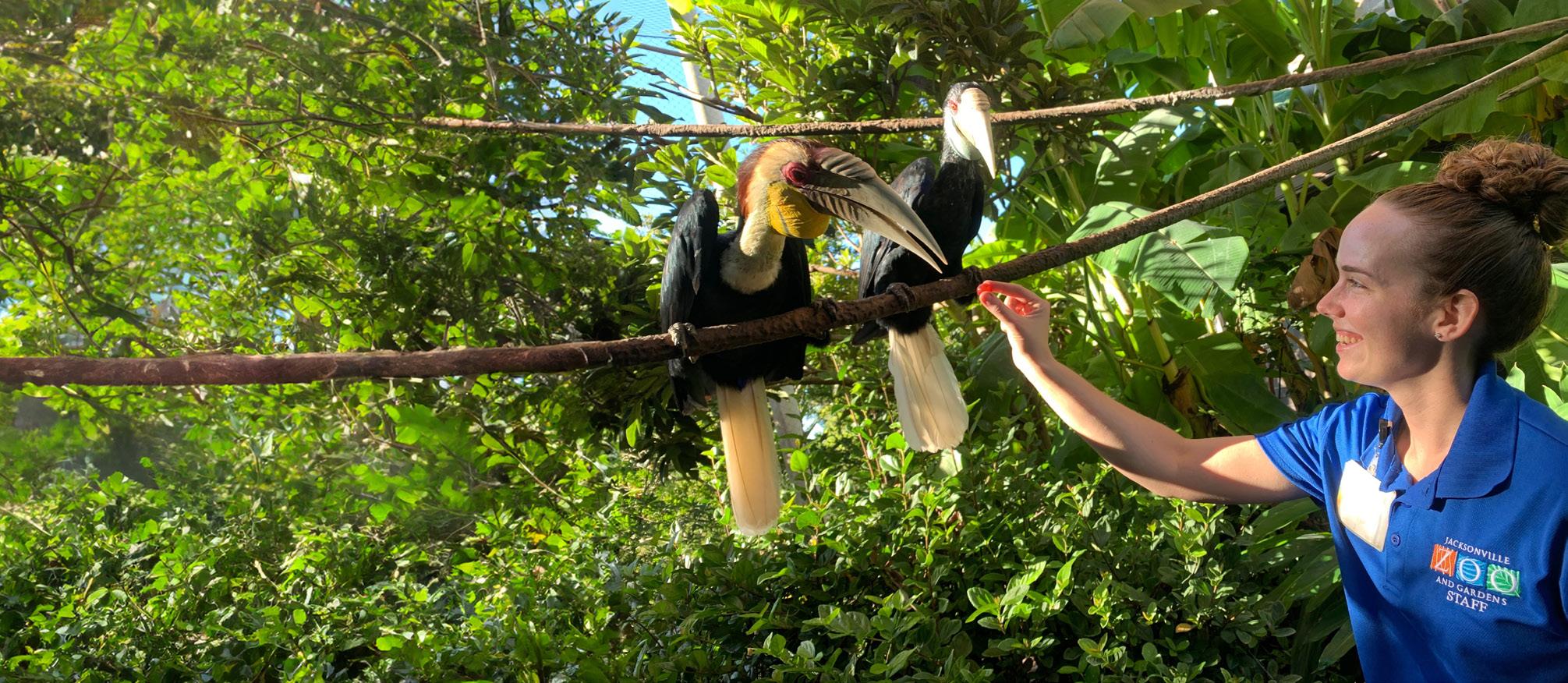
The People and Culture Department made significant progress toward its strategic goal of becoming an employer of choice by cultivating a culture where individuals feel valued and thrive. Our award-winning THRIVE program underpinned this achievement, supporting employee wellbeing through five key pillars: physical, mental, financial, social and community. These are some of the perks we offer to empower employee success:
Comprehensive Benefits: Including a 403(b), medical and dental insurance, paid time off and life insurance.
Robust Wellness Programs: Featuring yoga classes, stress management workshops, healthy eating seminars and free exercise options.
Engaging Community Building Initiatives: Such as employee appreciation events, family gatherings and conservation opportunities.
Essential Resources: Providing access to mental health counseling, financial guidance and health screenings.
Professional Development: Offering tuition reimbursement and opportunities for training and travel.
We are confident that these strategic investments continue to attract and retain top talent, solidifying our position as an employer of choice within the industry and the Jacksonville area.
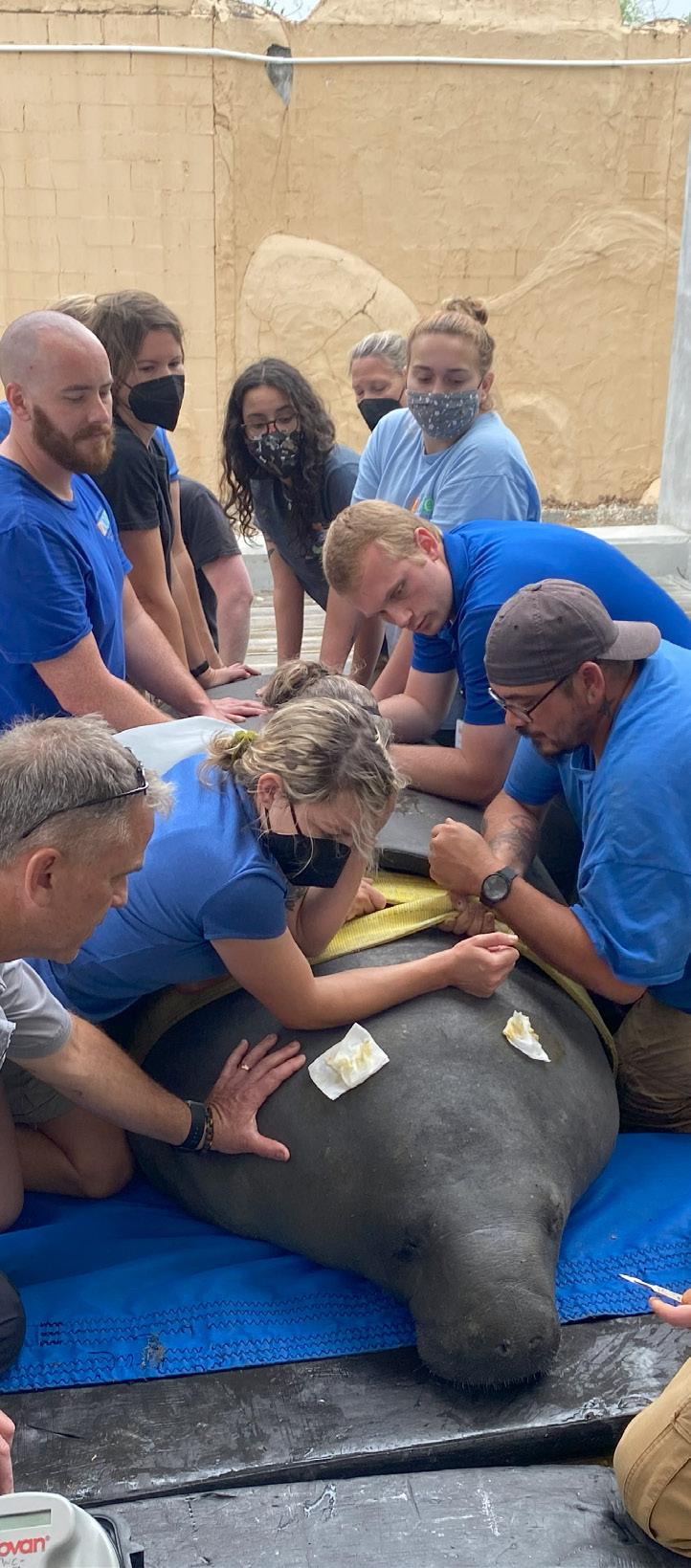
Thanks to the THRIVE Program, we are incredibly proud to have secured the Gold Level Healthiest Companies Award from the First Coast Worksite Wellness Council for the second consecutive year, and the Aetna 2024 Bronze Workplace Well-being Award for Inspiring Change. It’s more than an award; it’s a validation of our commitment to promoting employee wellbeing.
Our Employee Pulse Survey confirmed our team’s strengths: they bring their best, prioritize safety and proudly recommend us as an employer. The survey also revealed opportunities for growth, particularly in team communication and goal clarity. We’ve taken this feedback to heart as we work to strengthen our workplace culture.
This includes a new development program focused on improving communication, collaboration, career growth and clear expectations. In addition, a cross-departmental effort led to the transformation of our core values to better reflect who we are: culture, education, conservation and innovation.
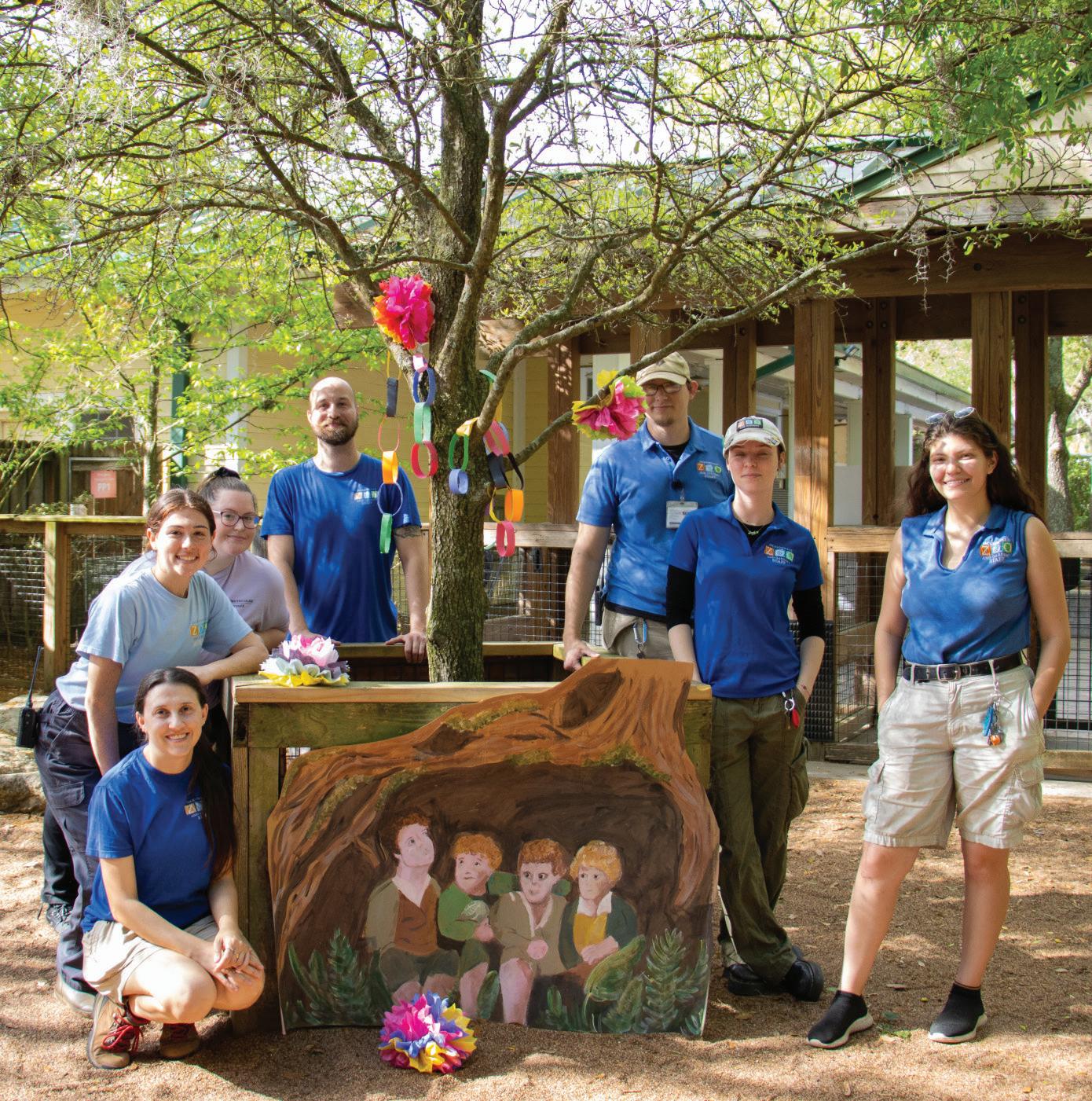
These initiatives were shaped by diverse team input to ensure they reflect the spirit of our organization and support a people-centered culture.
Average Tenure: 5 years



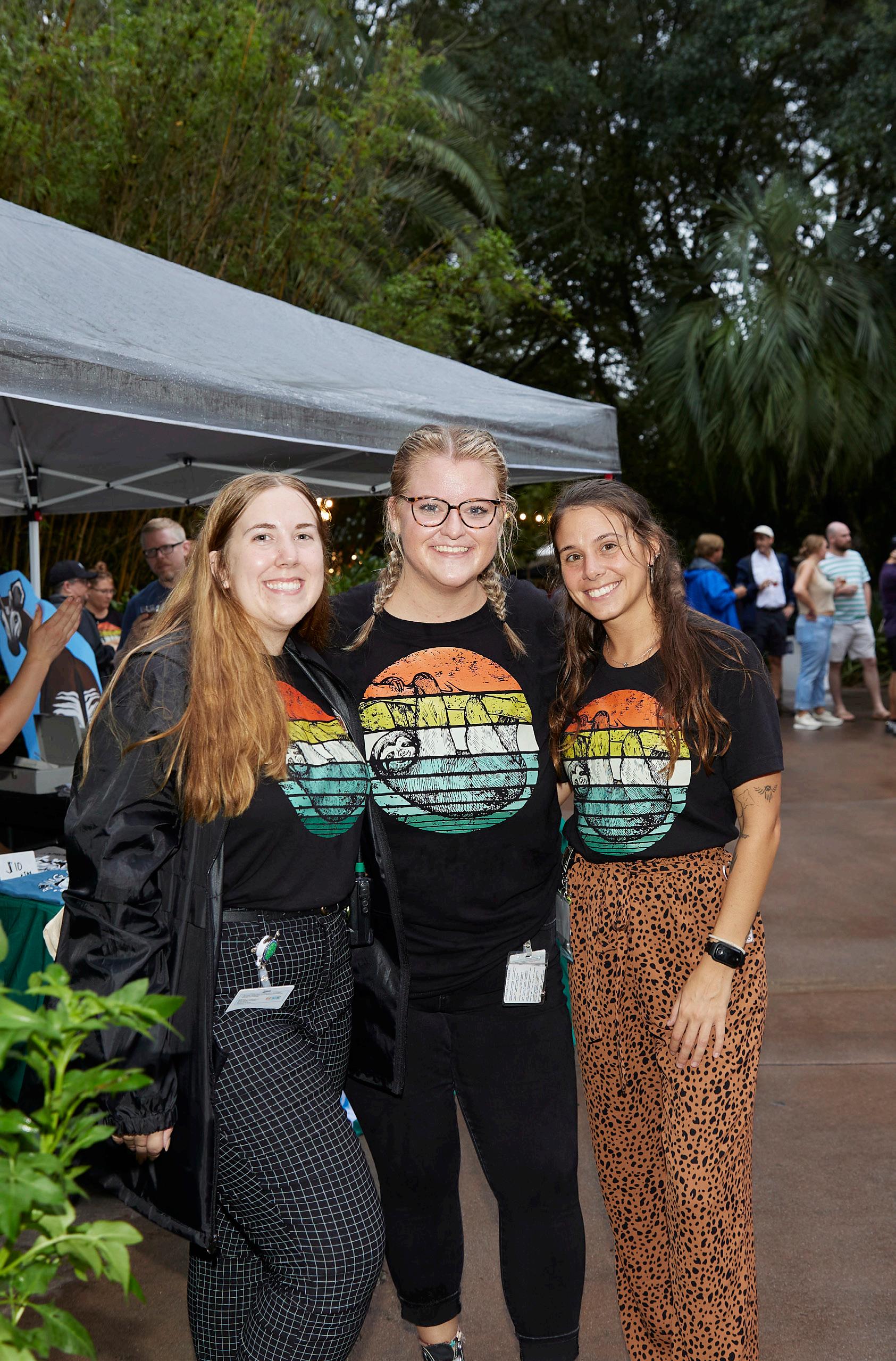
To ensure the long-term health and wellness of our Zoo, we have dedicated $5 million toward deferred maintenance and critical capital improvements. This investment reinforces our commitment to providing safe, modern facilities that support the care of our animals, the well-being of our team members and an exceptional experience for our visitors.
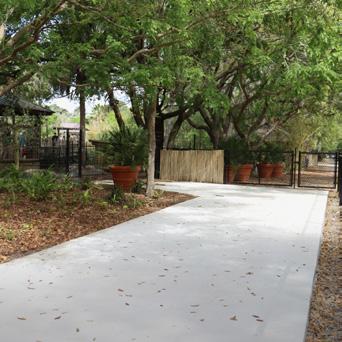
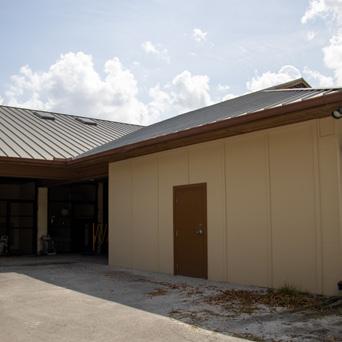

1. Warthog Habitat Renovation: Nearly doubling the warthog habitat, improvements included new fencing, shade structures and building enhancements.
2. Pathway to Warthog: Running next to the train station, concrete was poured to create a new pathway for behindthe-scenes tours of the warthog habitat.
3. Gift from Superior Construction: Stretching from the newly reconstructed pier, this path winds through the back of the Zoo to the Hornbill Habitat. It will provide boat-goers with direct access from the river into the Zoo.
4. Eucalyptus Public Area Fencing: Throughout the Africa Loop and soon expanding throughout the Zoo and Gardens, new eucalyptus fencing was installed. These pathways are safer and more durable compared to the previous wooden ones.
5. Wild Florida Herp House Upgrades: The Wild Florida Herp House received a facelift with minor maintenance, expanded animal care areas and a new paint job.
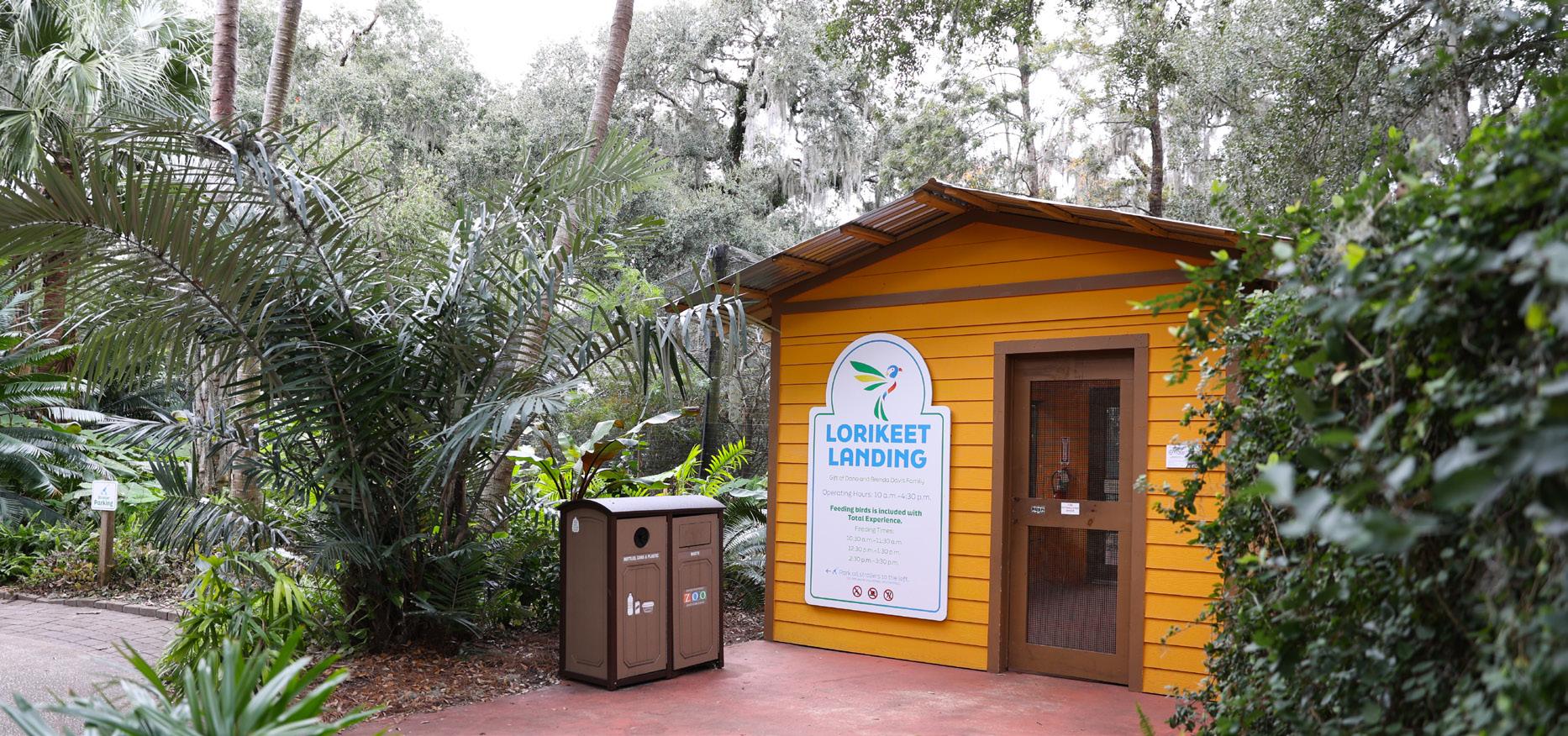
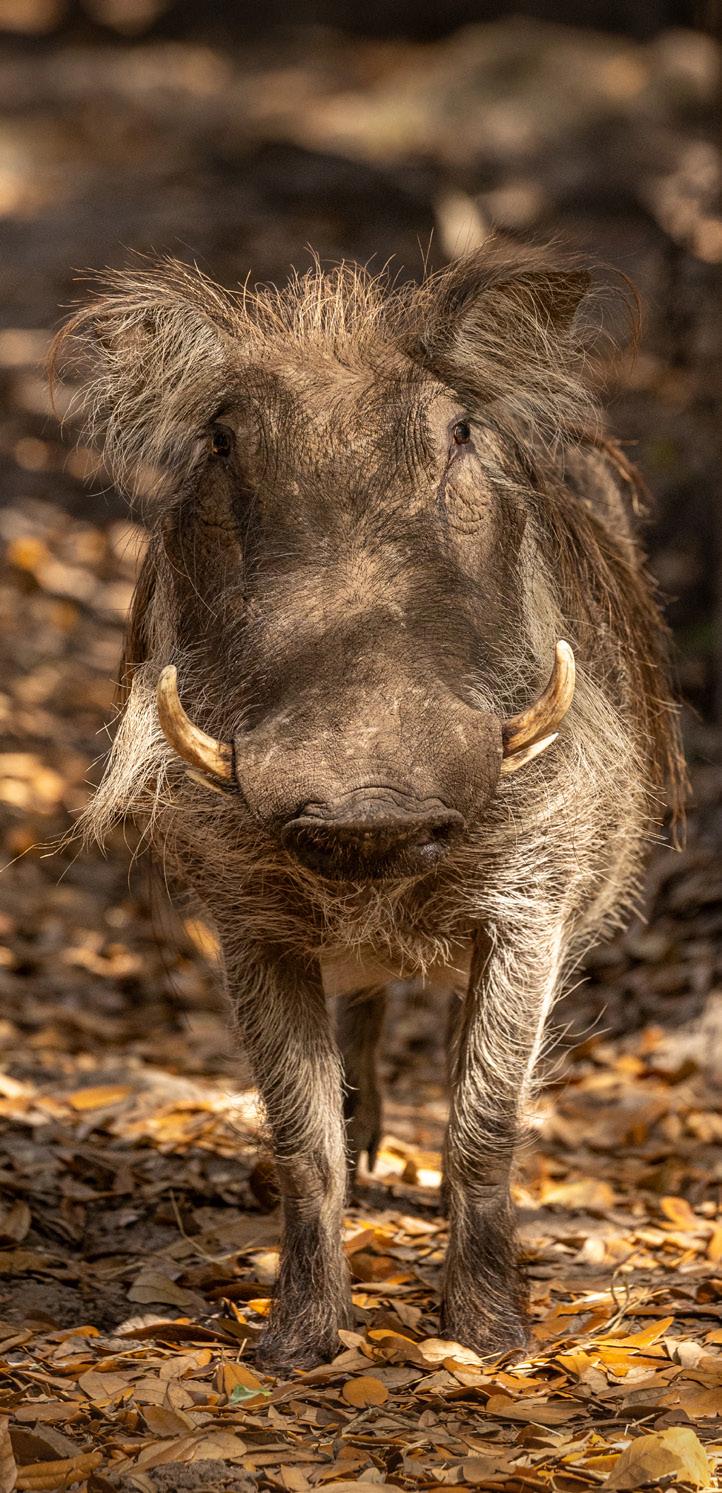
6. New Lorikeet Building: Following a previous fire, the lorikeet building was reconstructed with a fresh new look, allowing guests to enjoy the updated area.
7. Manatee Critical Care Center Renovation: The current Critical Care Center was thoroughly cleaned, ensuring fresh and clean water for future manatees.
8. Hospital Expansion: To support our Animal Health team, the hospital was expanded with new office space, enhancing our ability to treat and care for our animals.



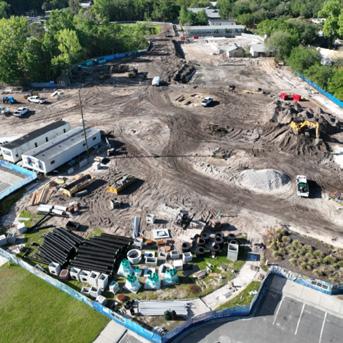


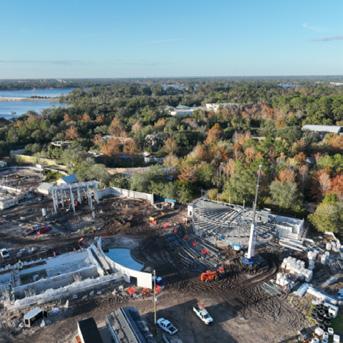
West Wing: Construction of the 60 foot digital wall began. In front of this, an area for the new stage was cleared. The west wing will house the new kitchen area to the left of the entrance.
Kitchen Build: Progress continued as piping was laid and foundations were set to support the back-ofthe-house area for the kitchen.
East Wing: Land was cleared and foundations were set to support the entrance in front of the east wing. This wing will feature Guest Relations, a gift shop and a VIP terrace.
Manatee River Support Beams:
The support beams for the Critical Care Center went vertical! These beams will hold up the roofing over the area, providing essential treatments and support for the manatees.
Life Support Piping: Two miles of pipe and plumbing were laid underground to support the 330,000 gallons of water needed for the habitat.
Land Clearing for Manatee Calf Pool: Land was cleared in order to construct the new calf pool, which will support injured and orphaned manatee calves.
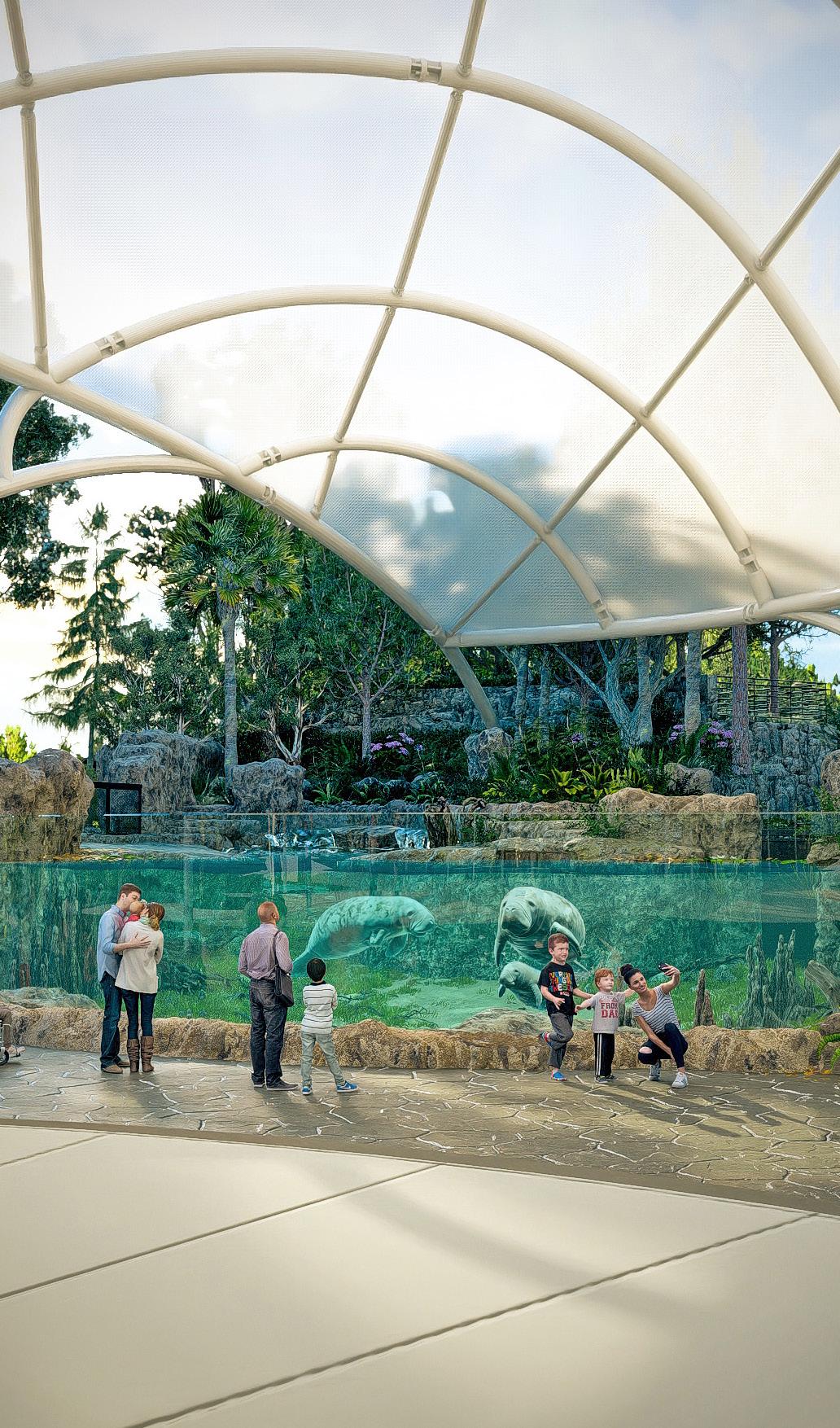
The REZOOVENATION project is a multi-year initiative to transform Jacksonville Zoo and Botanical Gardens through innovative habitats, sustainable infrastructure and upgraded guest amenities. This bold effort enhances animal care, supports conservation and creates immersive experiences—reflecting our commitment to excellence, innovation and long-term vitality.
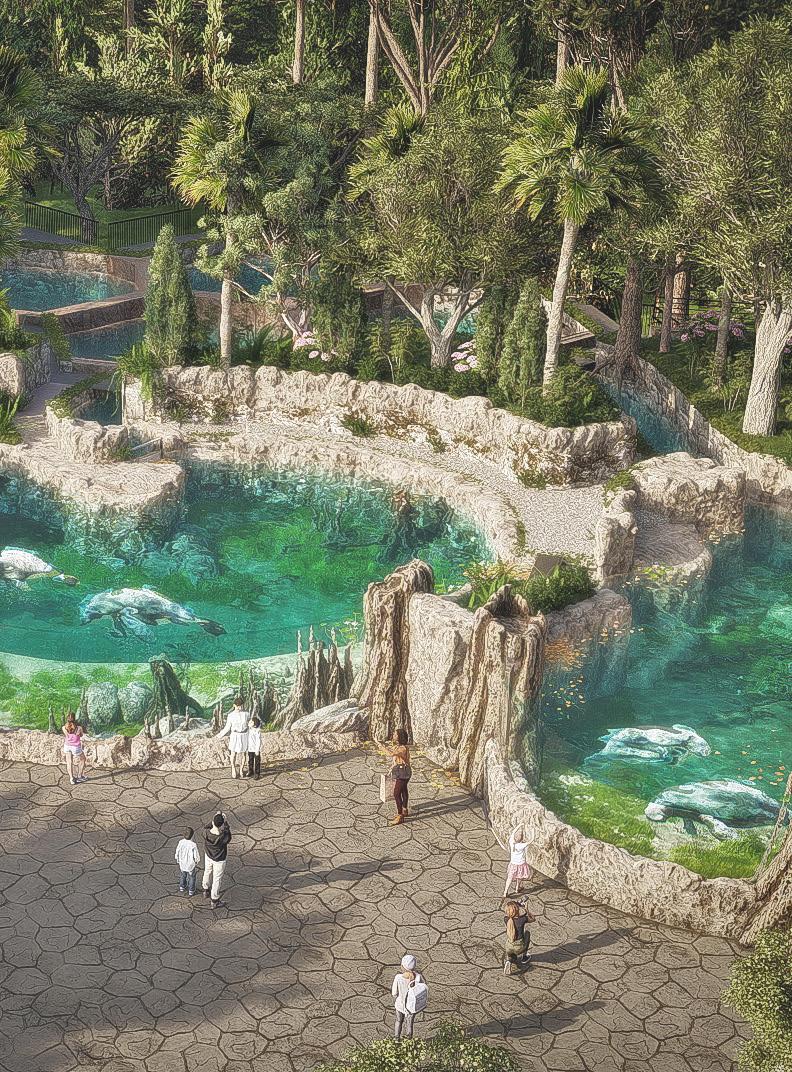
Every number tells a story—of animal care, conservation wins and connections made. Here’s how we made a difference this year. STRIPED NEWTS HATCHED
20,718 MEMBER HOUSEHOLDS
866,072
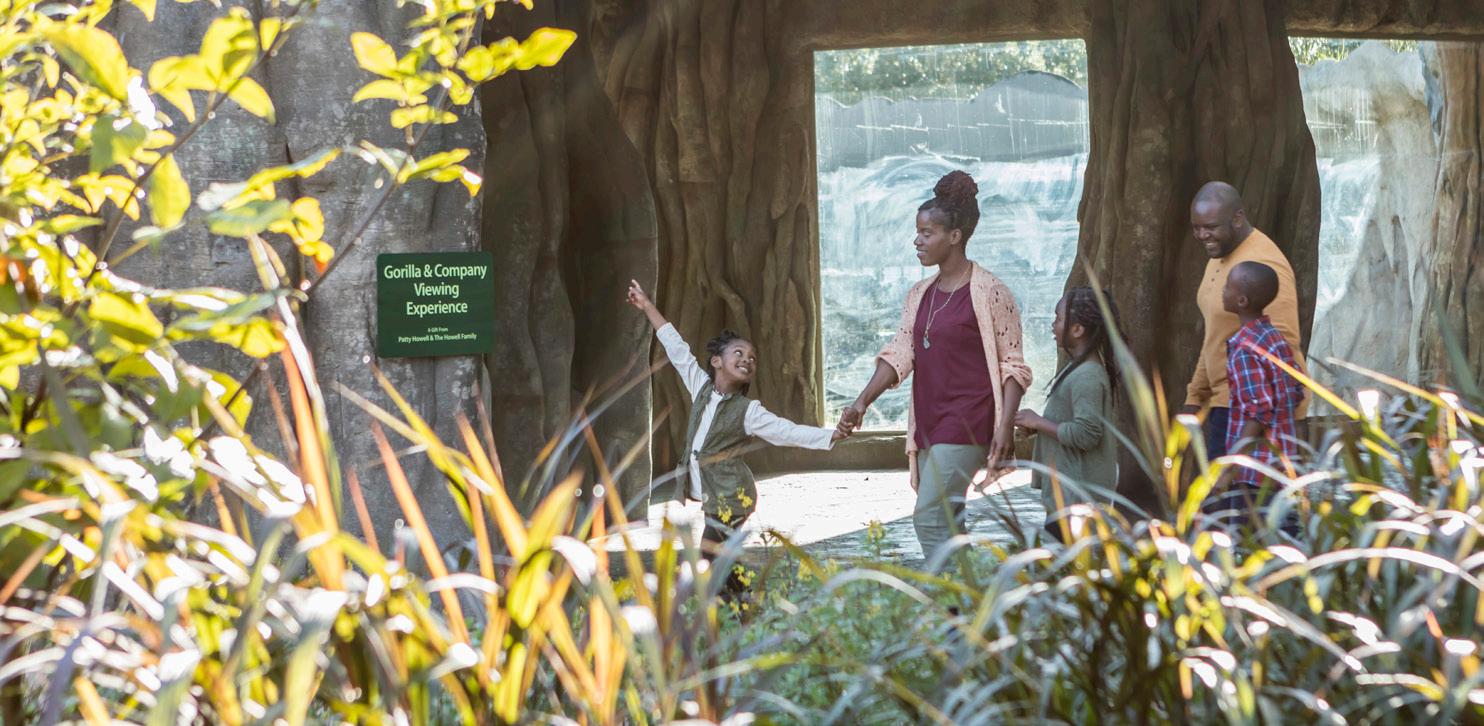
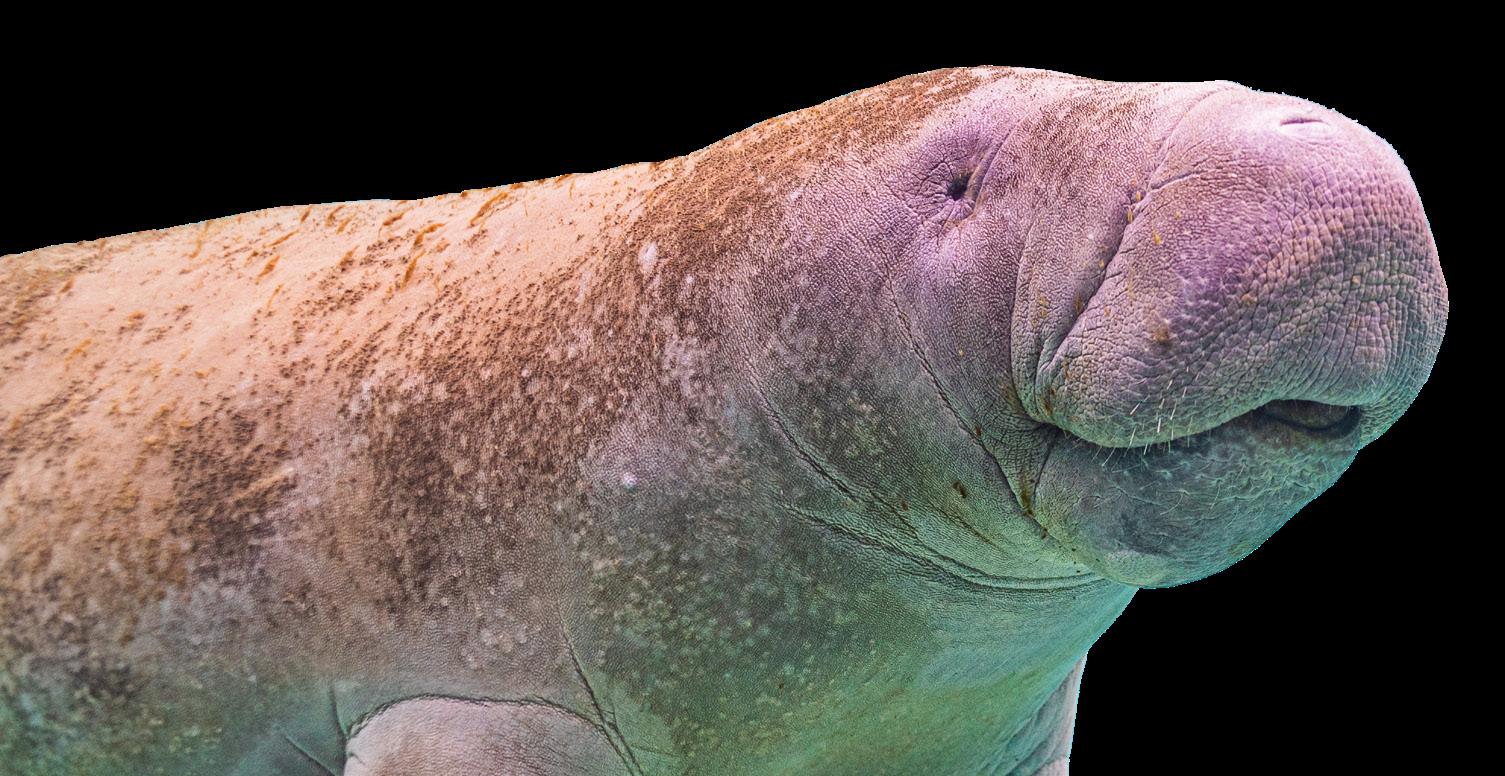
$433k
TICKET SALES AWARDED TO SUPPORT OVER 25 CONSERVATION PROJECTS GLOBALLY (PG 14) HEART OF THE ZOO MEMBERS ZOOLIANCE MEMBERS
212 21
500

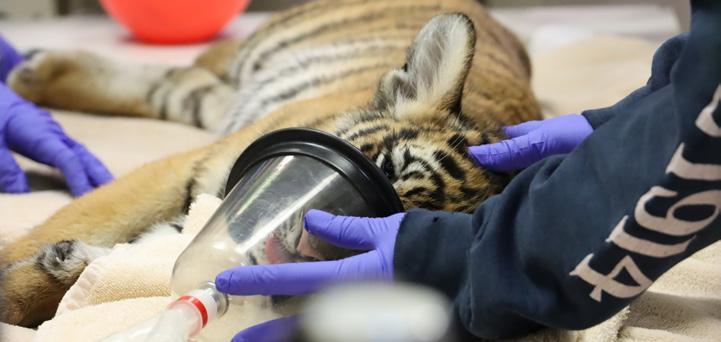
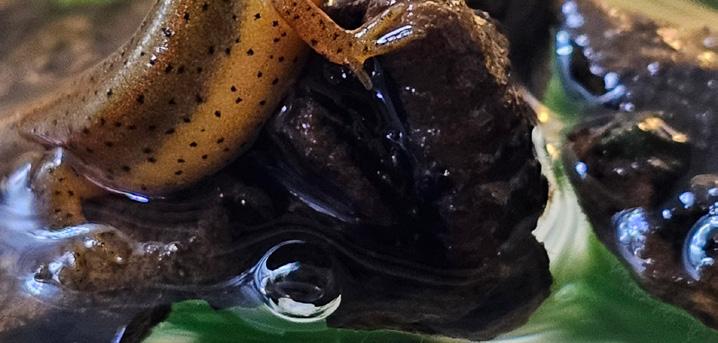
241
EVENTS
22,606
LABRATORY TESTS PERFORMED AND ANALYZED (BOTH IN HOUSE AND EXTERNAL)

4,000
RICAN CRESTED TOADS HATCHED
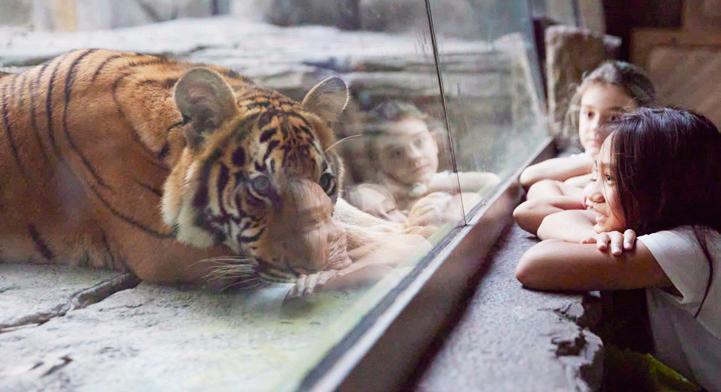
3,527
AFTER DARK PARTICIPANTS
8,267
ANIMAL AMBASSADOR ENGAGEMENTS AND 115 PROGRAMS INVOLVED
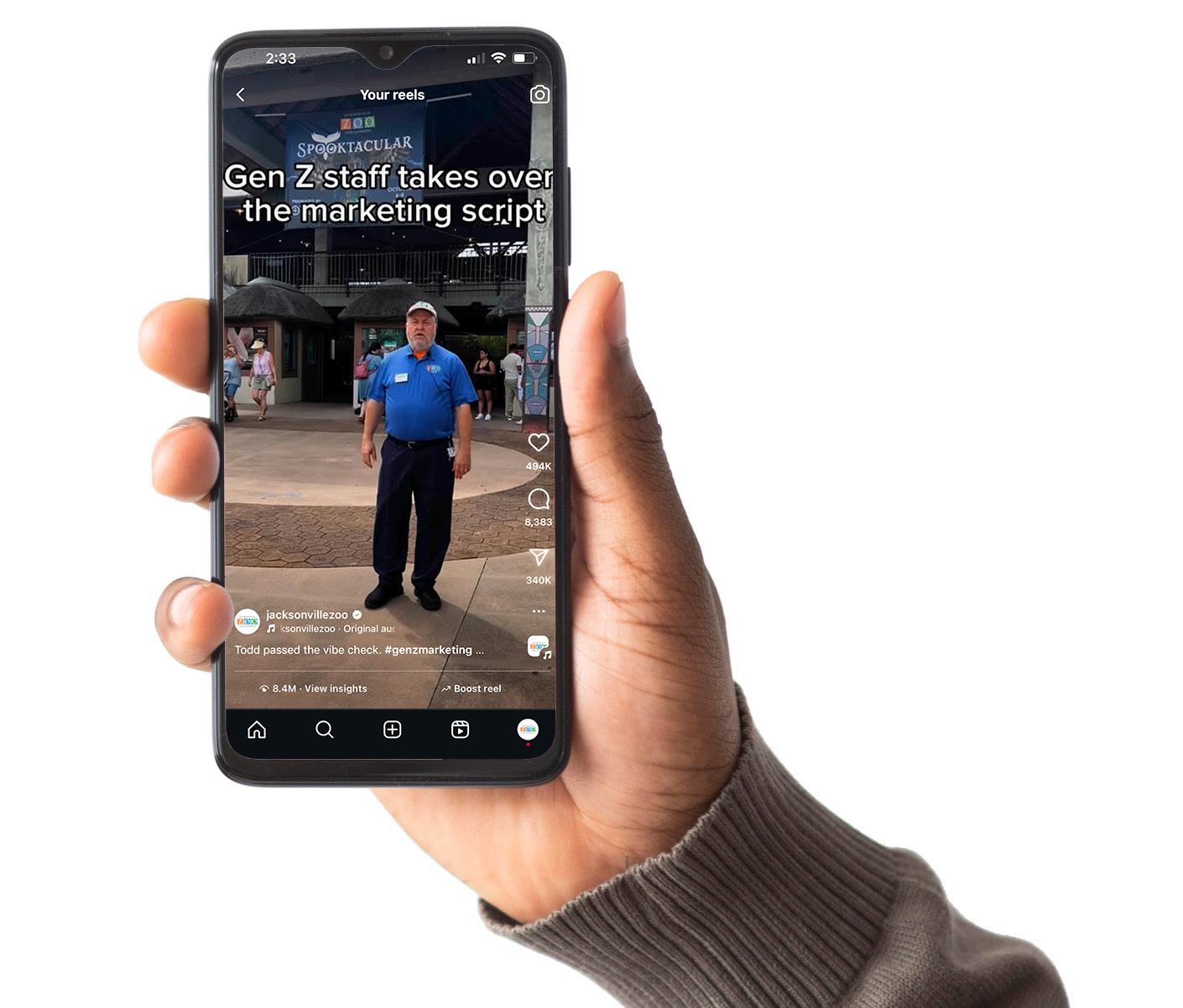
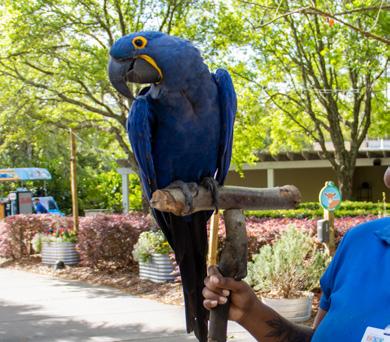
1, 377,686
INTERPRETIVE ENGAGEMENTS
13, 520
ZOO TO YOU OUTREACH TOTAL ATTENDENCE (CHILDREN AND ADULTS)
40, 810
SERVICE HOURS FROM GROUPS AND INDIVIDUALS

870
HOURS OF IN-PERSON ANIMAL WELLBEING OBSERVATIONS
620
HOURS OF CODED ANIMAL WELLEBING CAMERA FOOTAGE
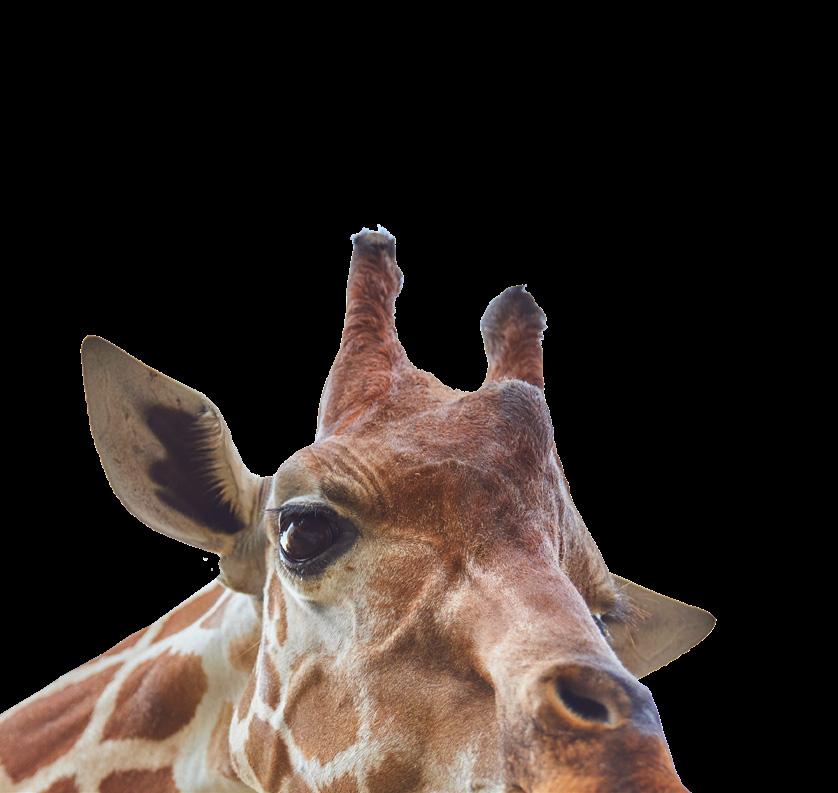
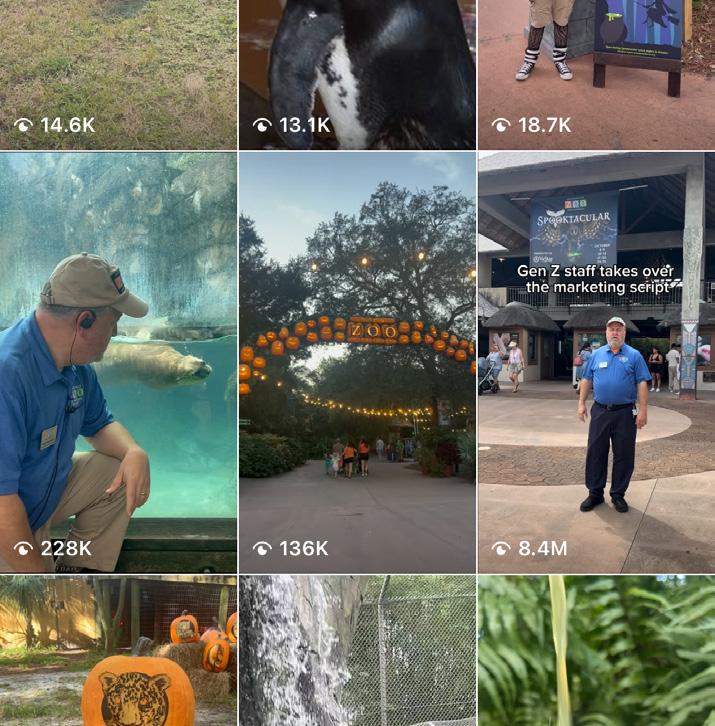

SPOOKTACULAR GROSS REVENUE

$2.9m
COLORS OF THE WILD GROSS REVENUE
95,210
COLORS OF THE WILD ATTENDENCE
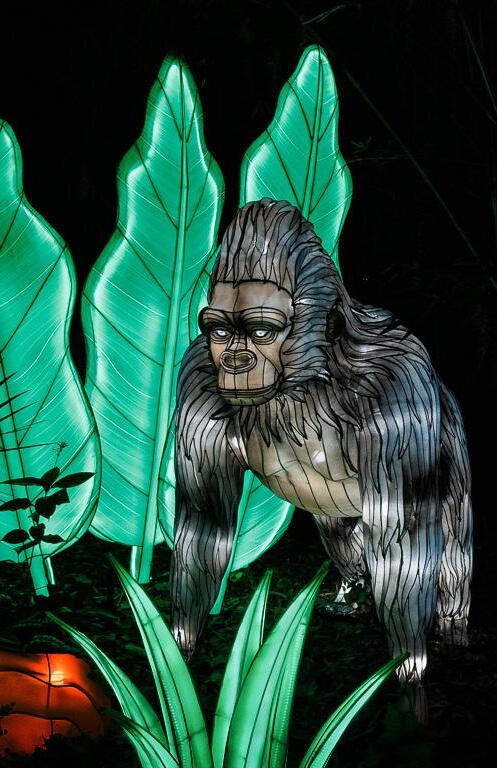



Jacksonville Zoo and Botanical Gardens is dedicated to protecting wildlife and their habitats by leading initiatives that support endangered species conservation. Through community engagement, the Zoo fosters landscape-level benefits for biodiversity on local, regional and global scales. This mission is achieved by concentrating efforts on key biological hotspots and maximizing impact through strategic partnerships that address and mitigate threats to wildlife and ecosystems in each region.
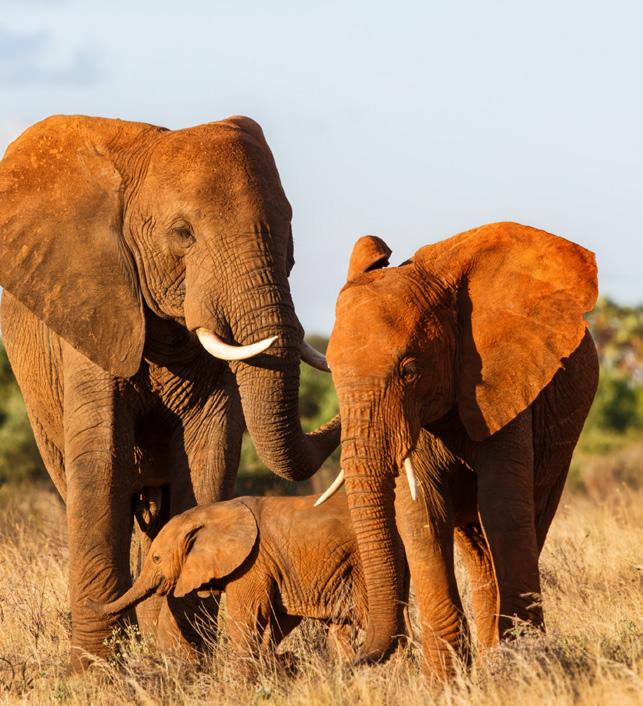
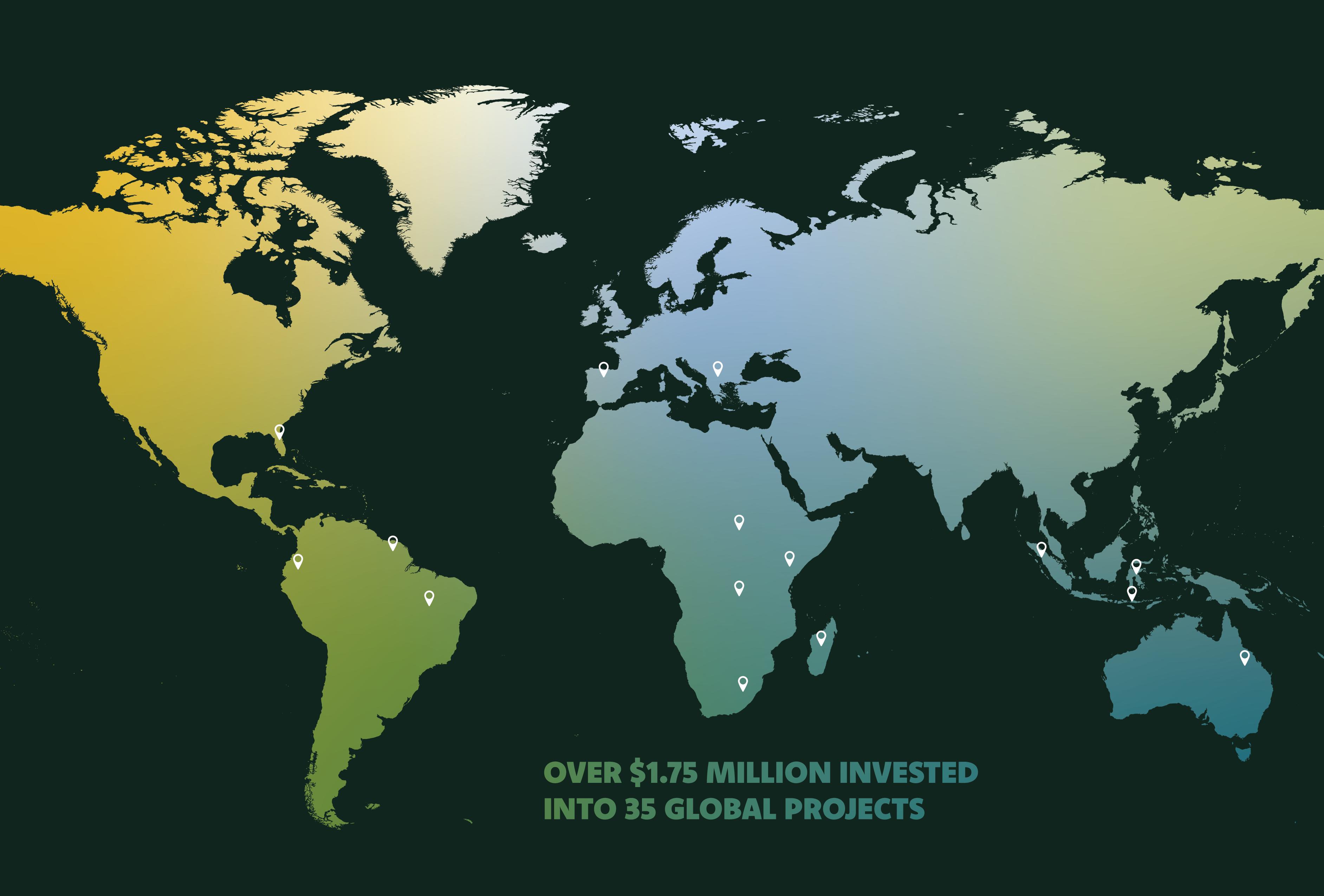
FWC Bat Acoustic Monitoring
Chapman’s Fringed Orchids
Lights Out Northeast Florida
Manatee Rehabilitation Project
Coastal Plains — Striped Newt
USFWS Wood Stork Recovery
Puerto Rican Crested Conservancy
Team Terrapin
Bok Tower Gardens


The Rare Plant Conservation Program at Bok Tower Gardens (BTG) works to prevent the extinction of endemic and endangered plants in Central and North Florida through surveys, seed collection, propagation and reintroduction into protected lands.
Among its key efforts is the conservation of the Lakeside sunflower (Helianthus carnosus), a state-listed perennial wildflower endemic to Northeast Florida. Historically found in only five counties (Clay, St. Johns, Flagler, Putnam and Volusia), the species currently has no known populations on protected lands, making its preservation urgent.
Jacksonville Zoo and Botanical Gardens has been instrumental in supporting this project by providing expertise and securing funding for the preservation of the Lakeside sunflower. Our Horticulture team members partnered with BTG to conduct extensive surveys of plant populations, covering approximately 60 square miles across two counties.
As a result, BTG secured permission from 11 landowners to access parcels with the plant. From one site, 1,237 seeds were collected from 67 distinct maternal lines, marking a significant step in safeguarding the species. Germination trials are underway, with preliminary results showing a viability rate exceeding 20%.

1,23 7 SEEDS COLLECTED
DISTINCT MATERNAL LINES
PRELIMINARY VIABILITY RATE 67 +20%
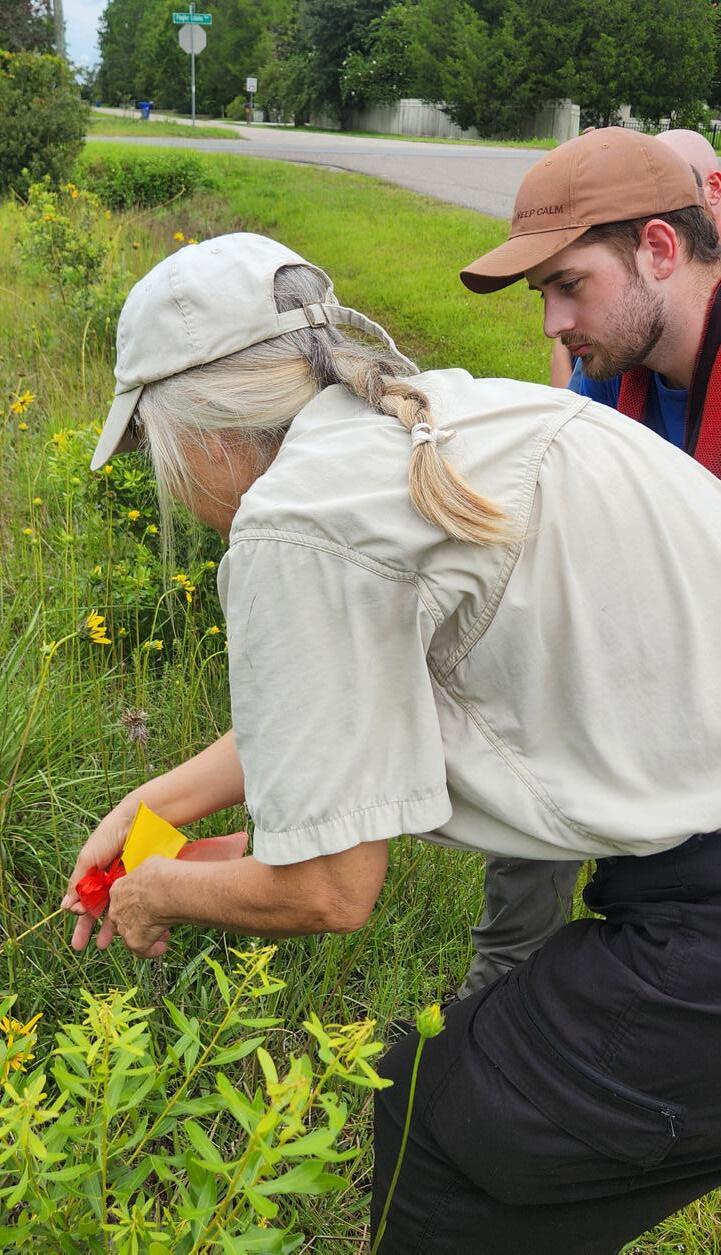
This year I was given the opportunity to go out into the field and assist Bok Tower Gardens with surveying plant populations and collecting seeds. This hands-on work has given me a perspective and purpose that I want to share with as many people as possible and, more importantly, is invaluable for ensuring that these rare flowers don’t disappear for good.
— Patrick Kelly, Horticulture Technician ll

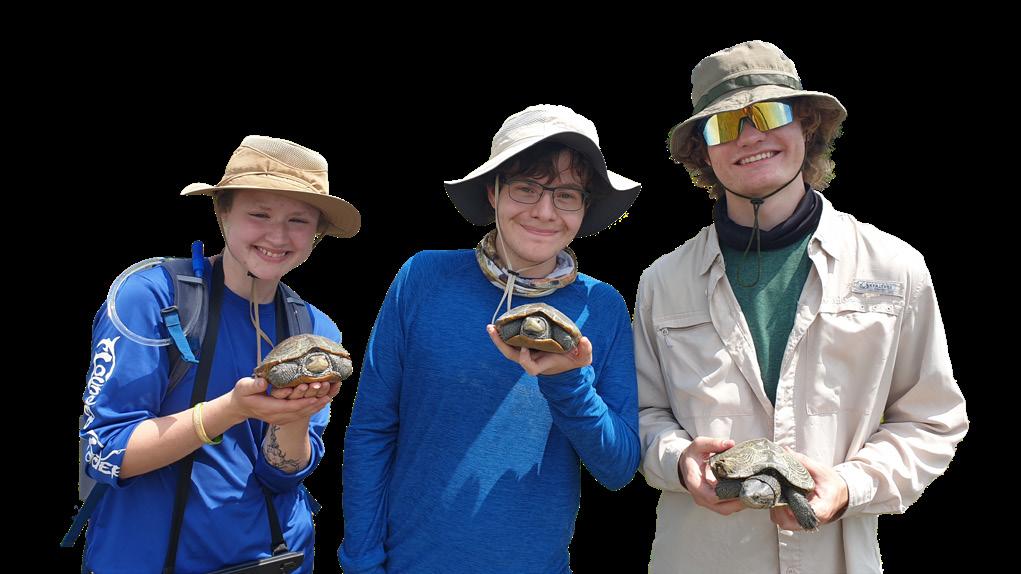
The Turtle Survival Alliance (TSA) works globally to protect tortoise and freshwater turtle populations, addressing threats like habitat loss and over-exploitation. In Northeast Florida, TSA partnered with Florida State Parks to run Team Terrapin, a volunteer-driven initiative focused on conserving the vulnerable Diamondback Terrapin. The program unites a diverse group of volunteers to protect the species and its habitat.
The Zoo has played a key role by funding a full-time intern and providing hands-on fieldwork, data management and leadership opportunities. It has also supported professional development through research and conference presentations.


Lights Out Northeast Florida (LONF) is a community-led initiative addressing the threat of window collisions, which kill up to 1 billion birds annually in the U.S.
The Zoo and Botanical Gardens plays a critical role in supporting LONF through funding, volunteer event space and leadership in initiatives like the Bird-Friendly Window Audits, which boast a 100% success rate in encouraging bird-saving measures. Our team enhances the program by maintaining the Collision Data Dashboard, which is used to engage organizations like the Jacksonville Jaguars.
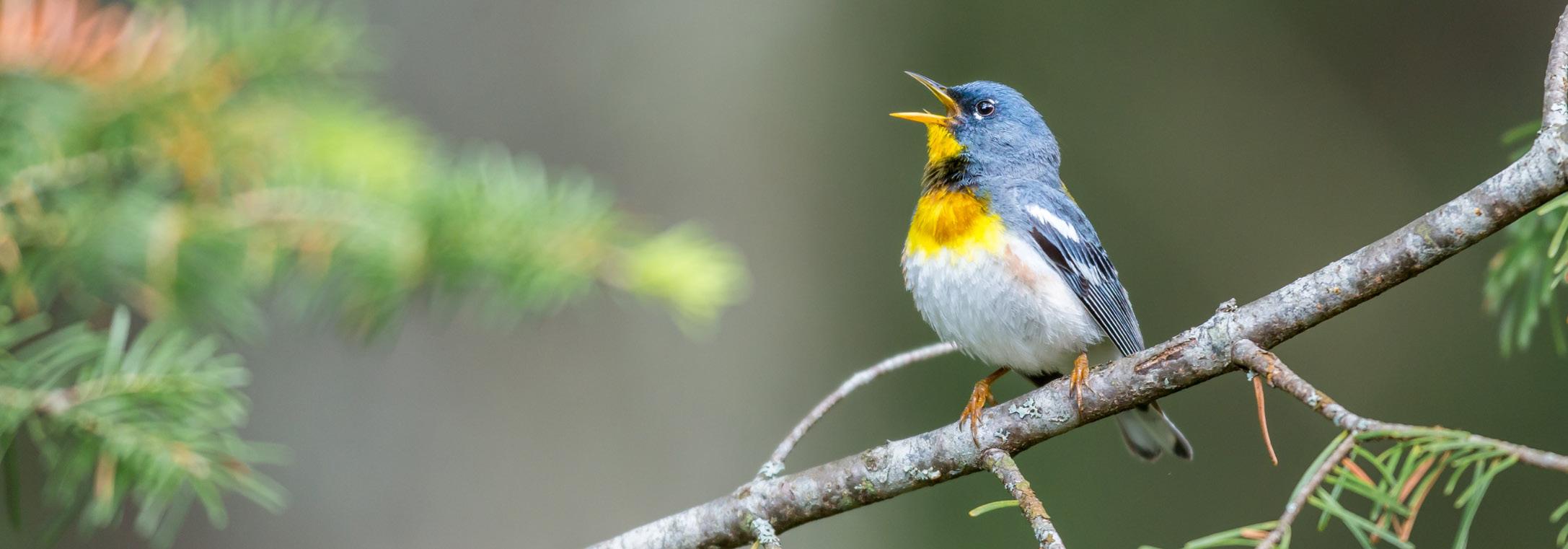
Through conservation advocacy, community events and expert guidance, this partnership is fostering a safer, birdfriendly future in Northeast Florida.
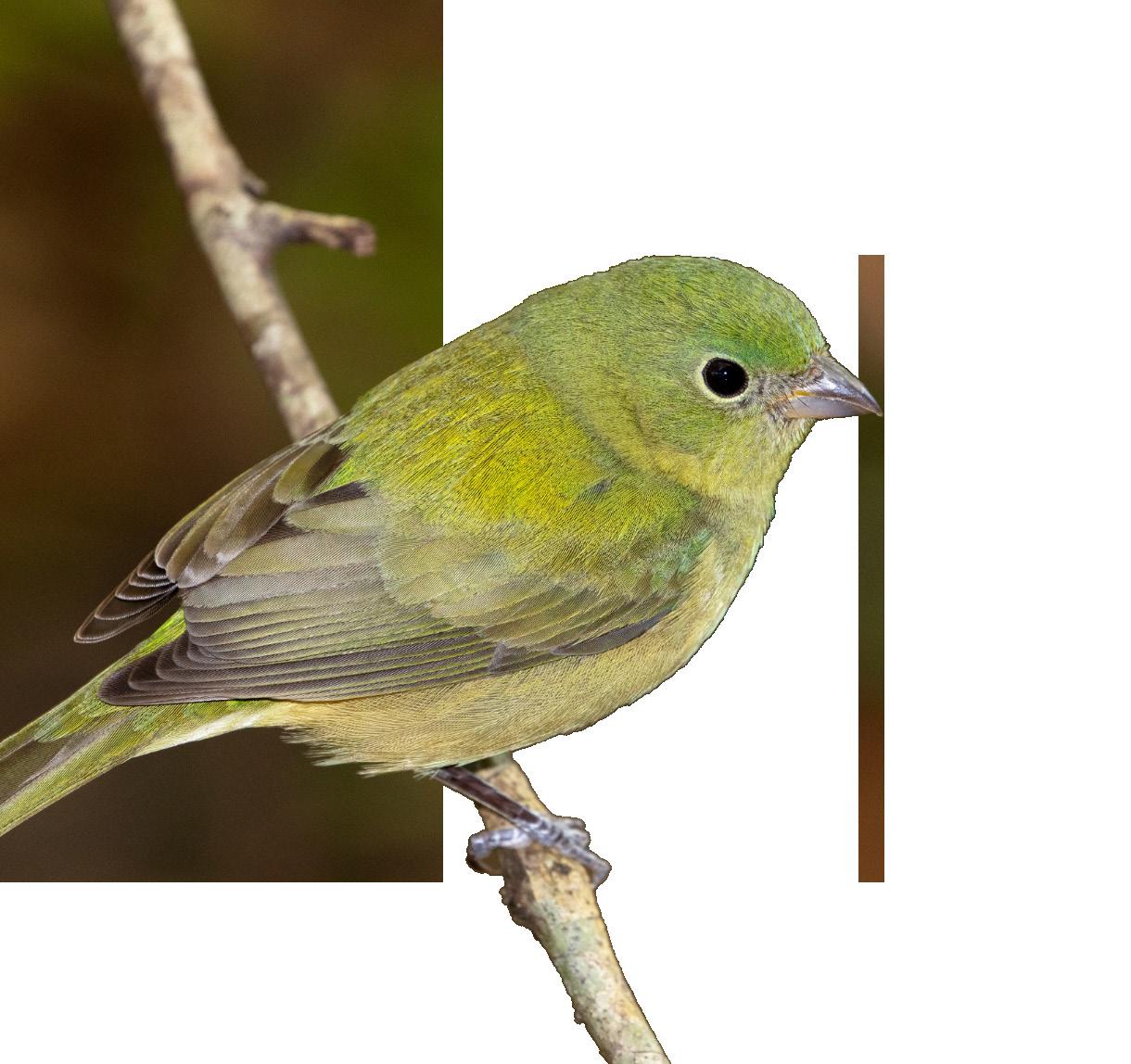

Dots on windows and glass help prevent birds from flying into them by making the surfaces visible.
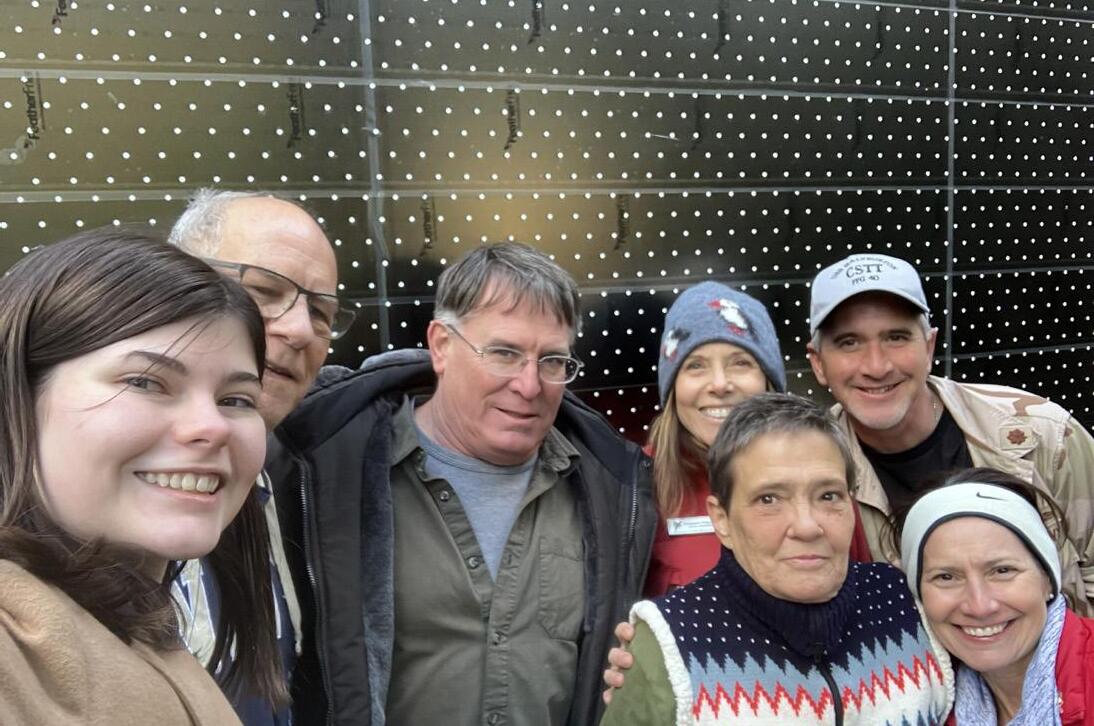
125 MONITORING ROUTES WALKED VOLUNTEERS PARTICIPATED BIRDS EFFECTED BY COLLISIONS +80 +100


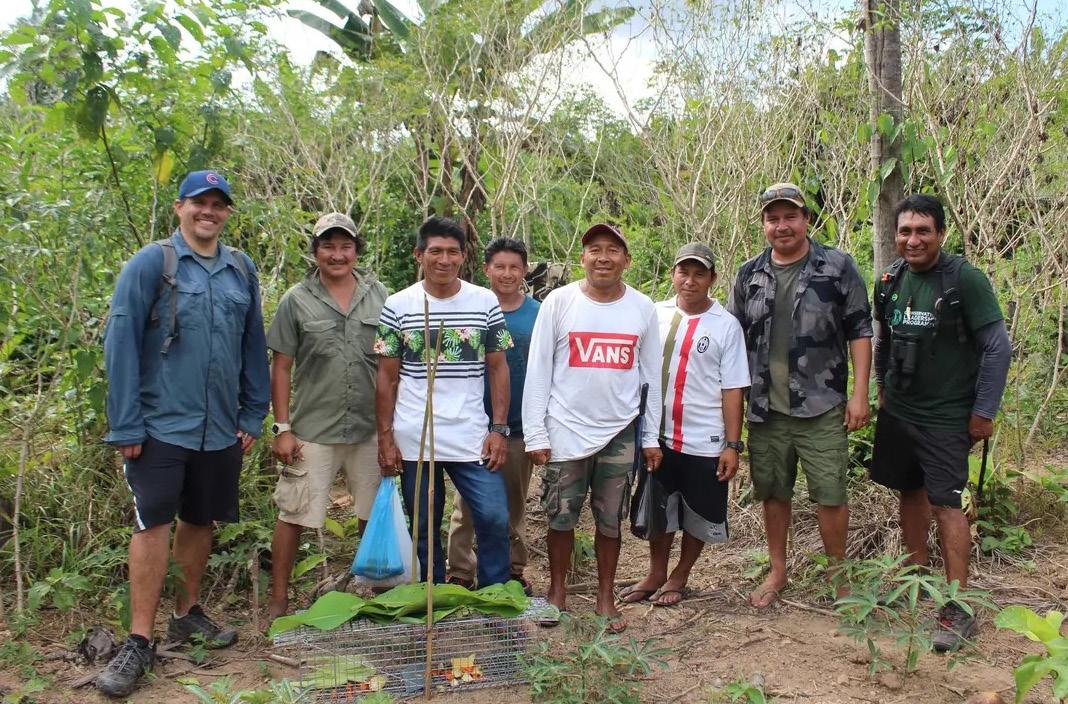
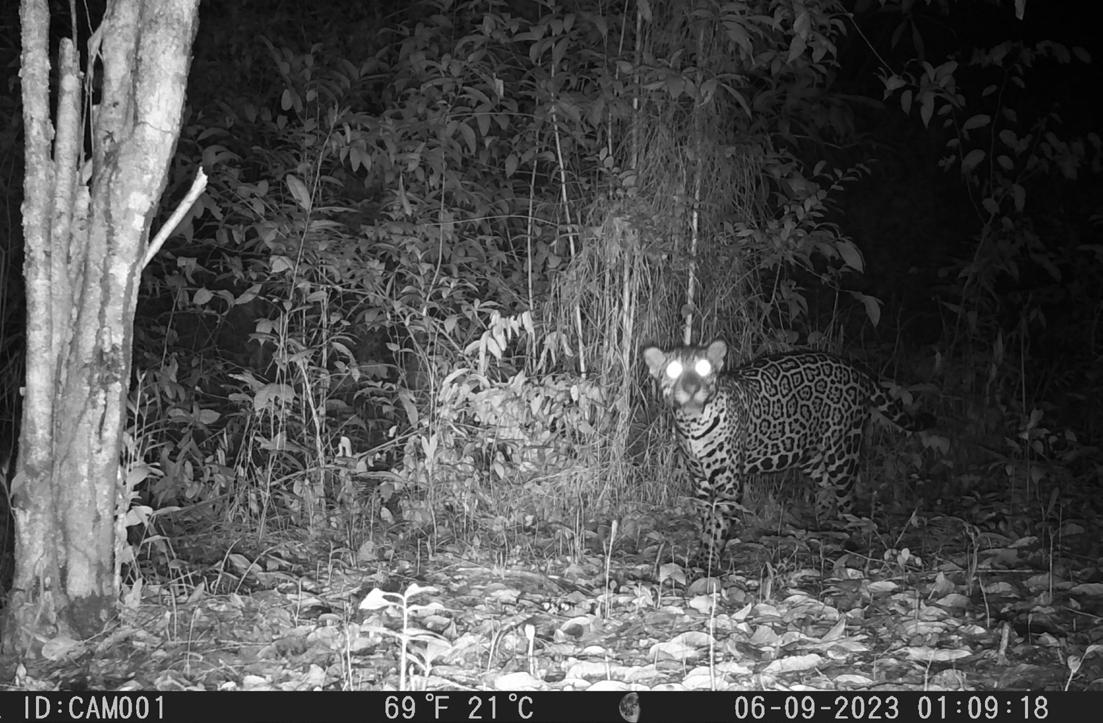
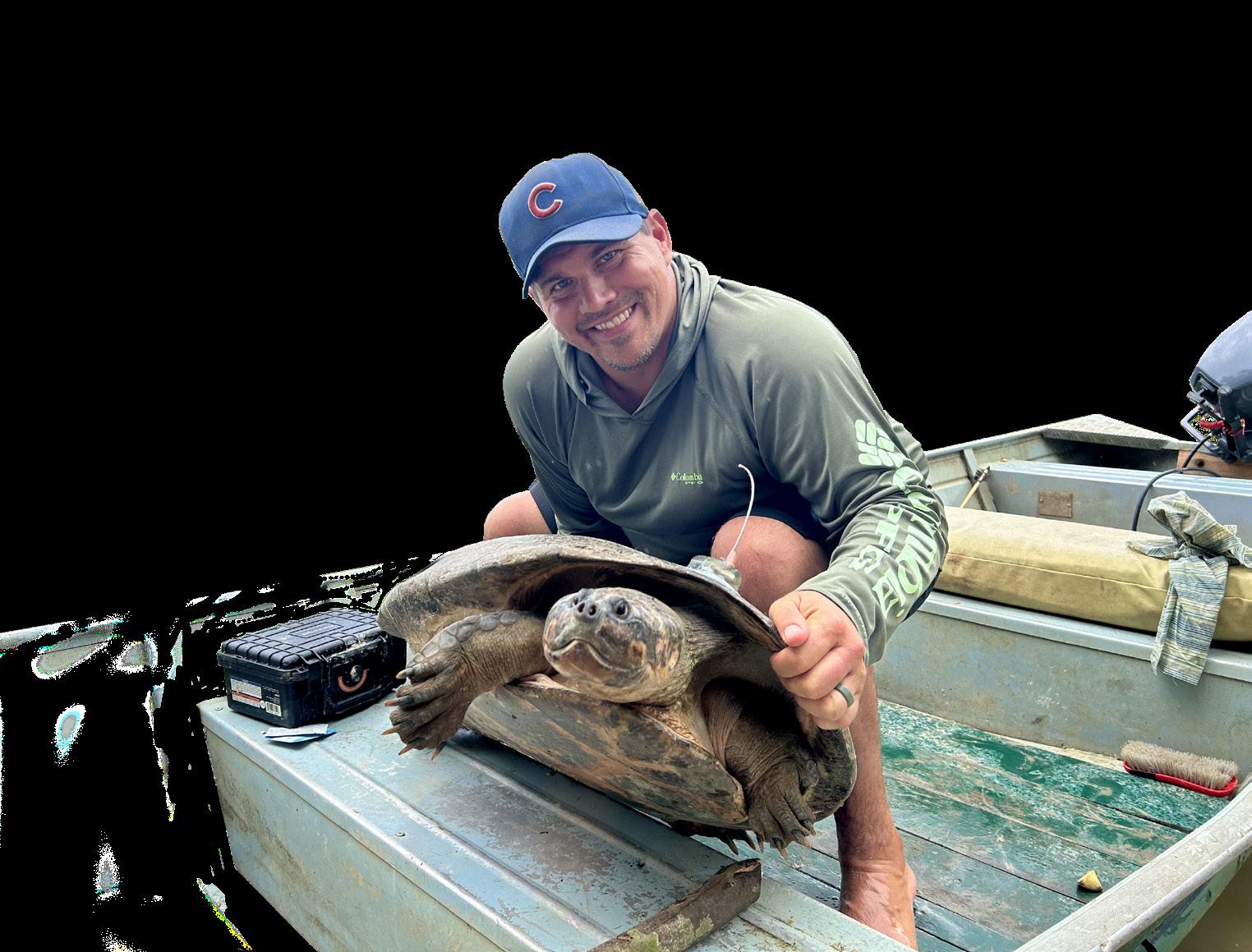
Conservation thrives through collaboration, bringing together diverse partners to safeguard our natural world. Our partnership with the University of Florida’s Institute of Food and Agricultural Sciences exemplifies this approach.
Together, we co-fund the work of Dr. Matt Hallett, a conservation researcher focused on Guyana’s Rupununi region. In partnership with local Guyanese organizations, Dr. Hallett is advancing long-term sustainability strategies to protect threatened species, including jaguars, giant otters, tapirs, giant anteaters and giant armadillos.
His research investigates the impacts of habitat loss, hunting, logging and livestock activities on specific species, providing critical insights into mitigating environmental pressures. By collaborating with indigenous communities, private landowners, government agencies and non-governmental organizations (NGOs), the team monitors wildlife populations and implements conservation strategies that empower local communities to protect their environment.
This project not only protects threatened species but also creates opportunities for humans and nature to thrive together.

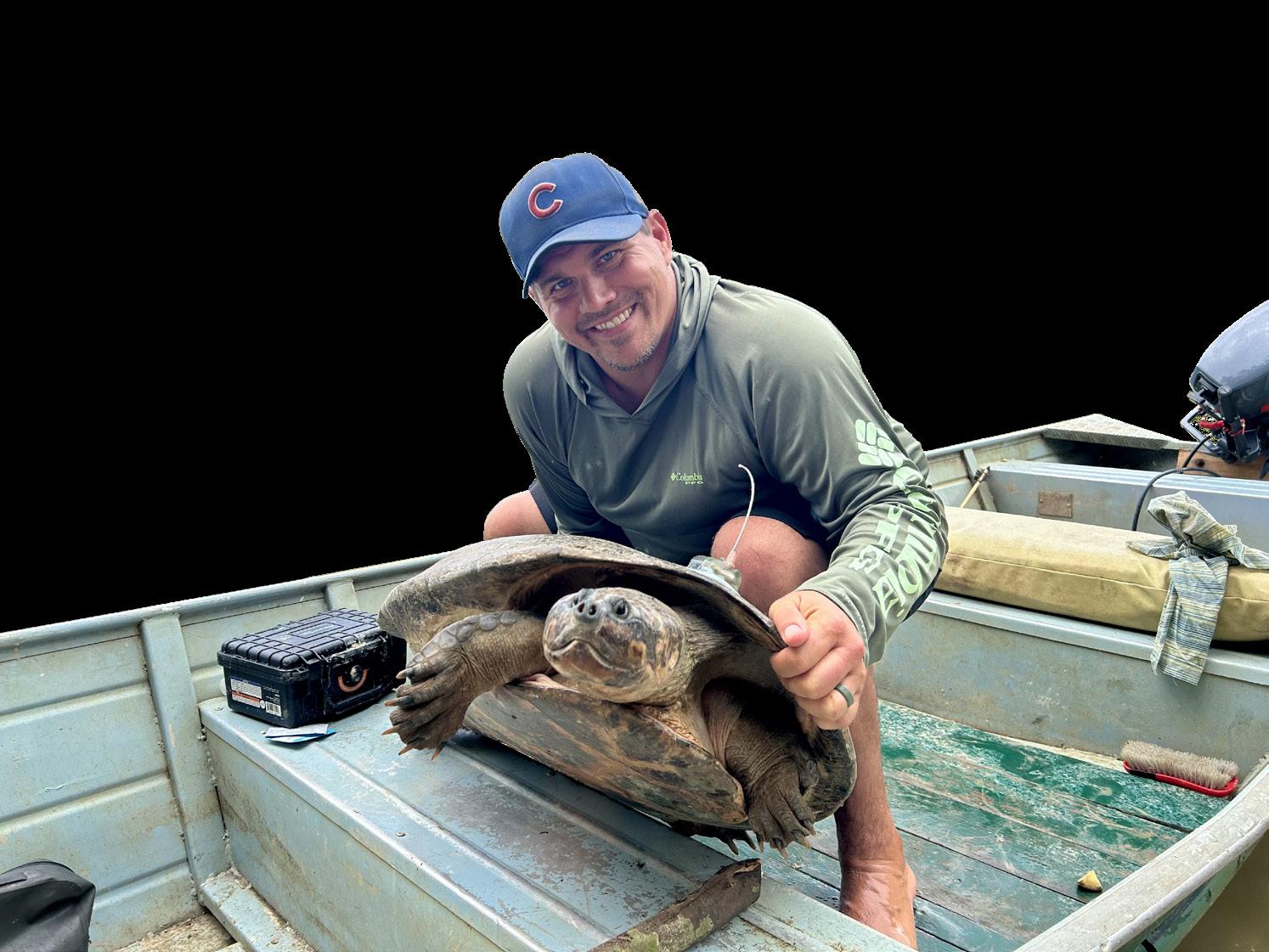
We support the Instituto de Conservação de Animais Silvestres (ICAS) in its efforts to protect Brazil’s giant armadillos. Our funding helps sustain a field assistant for the Atlantic Forest Giant Armadillo Project, which monitors this vulnerable species and engages local communities in conservation.
In addition to research, ICAS strengthens conservation efforts through livelihood projects and more than 25 environmental education programs in local schools. The organization also hosted the third Conservation Action Planning Workshop, bringing together 50 participants to advance protection strategies. These achievements were highlighted during Rio Doce State Park’s 80th anniversary with the release of a book showcasing the project’s successes.

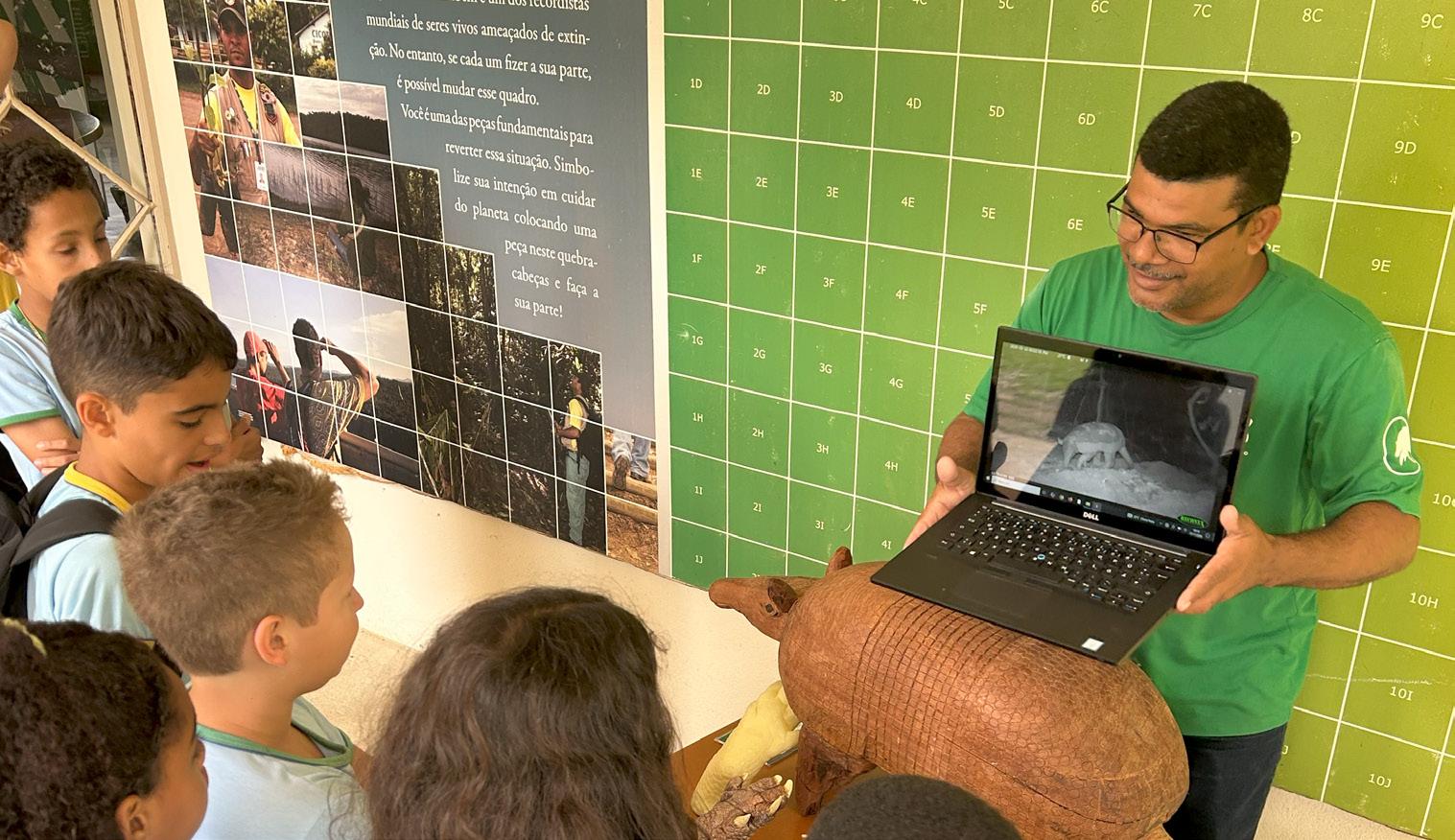
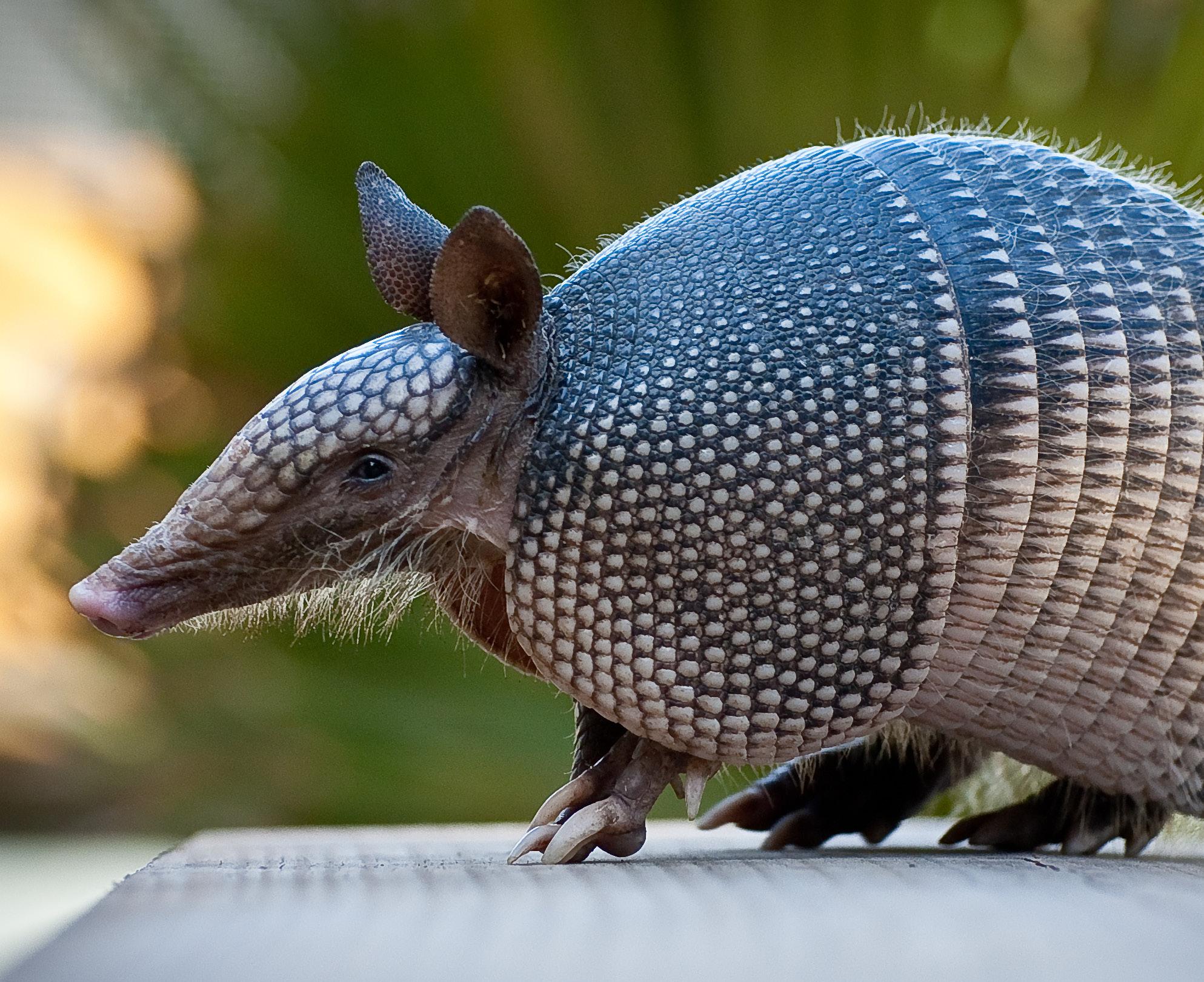
A new project was launched in partnership with the Association of Differentiated Coffee Growers of Northern Tolima (CDNT), a nonprofit group of coffee farmers in Colombia, to restore coffee farming practices that benefit both people and nature. Modern coffee production has replaced biodiverse forests with full-sun monocultures, causing deforestation, reduced coffee quality and lower incomes for farmers. To address this, the Zoo funded and oversaw the creation of a community nursery, Vivero Milagros (“Miracle Nursery”), providing heirloom coffee seeds and native plants at no cost.
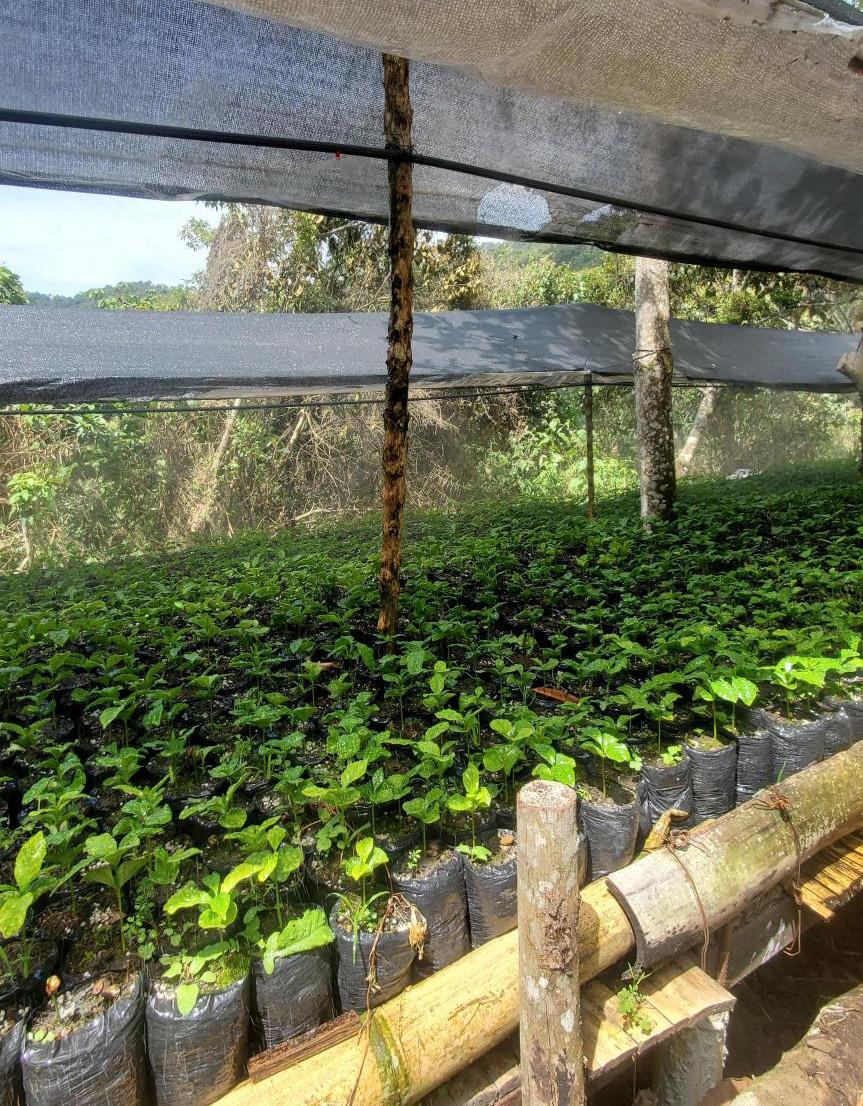
To ensure long-term success, the integration of native trees and agroforestry plants is critical. Partnering with the Medellín Botanic Garden, team members conducted botanical expeditions to identify local plant species. These seeds will be propagated in the nursery and distributed to farmers, supporting reforestation and agricultural diversity. This initiative empowers farmers while restoring the rich biodiversity of the Andean Forest, benefiting both communities and ecosystems.

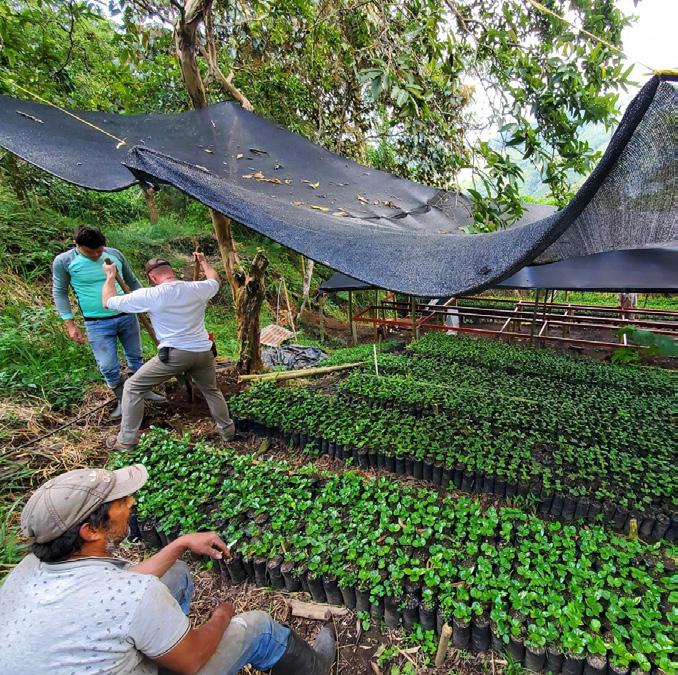
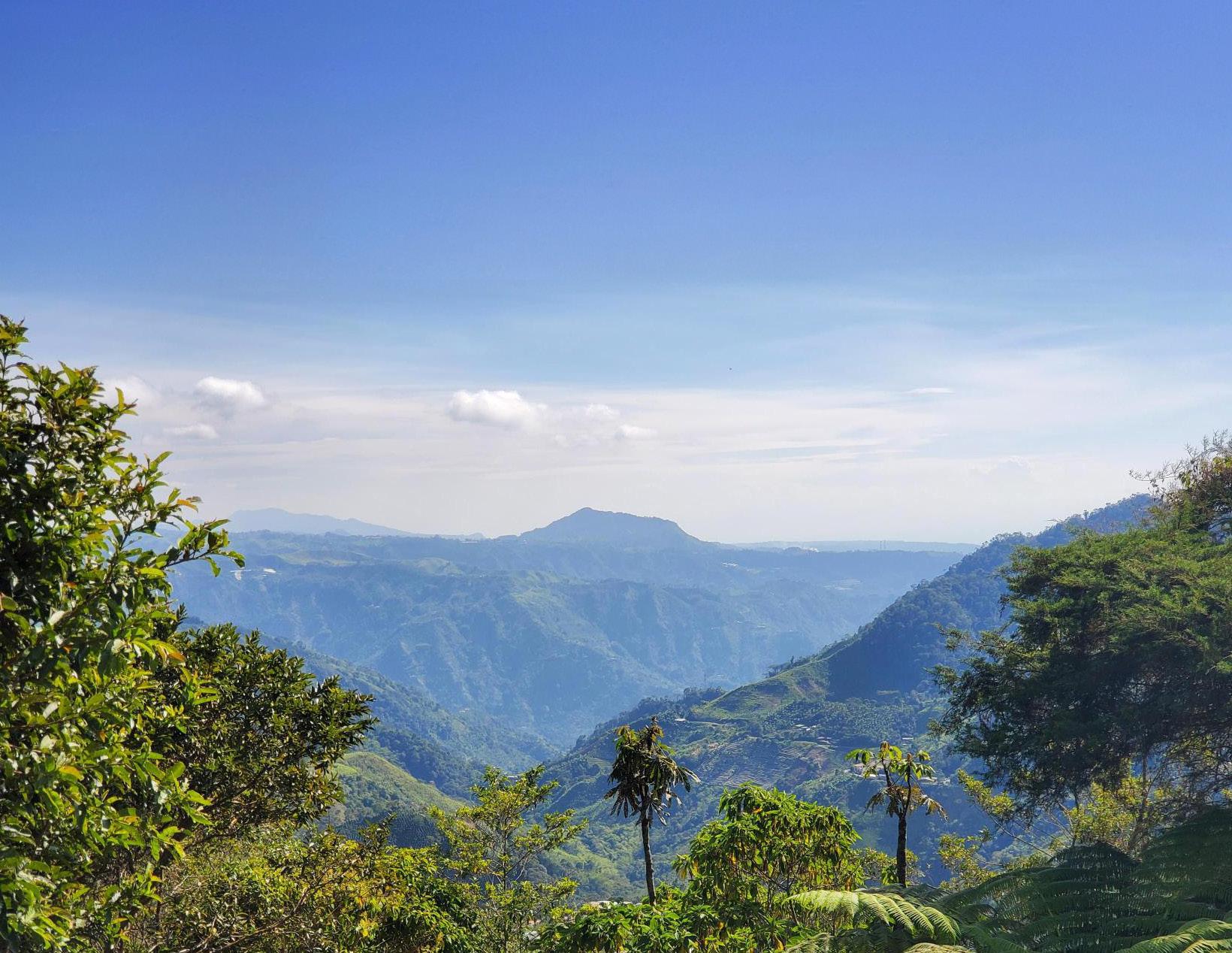

The Zoo’s support has also enabled the employment of a ranger who intercepted 15 cases of illegal snake collection in 2024, ensuring sustained protection for this vulnerable species.
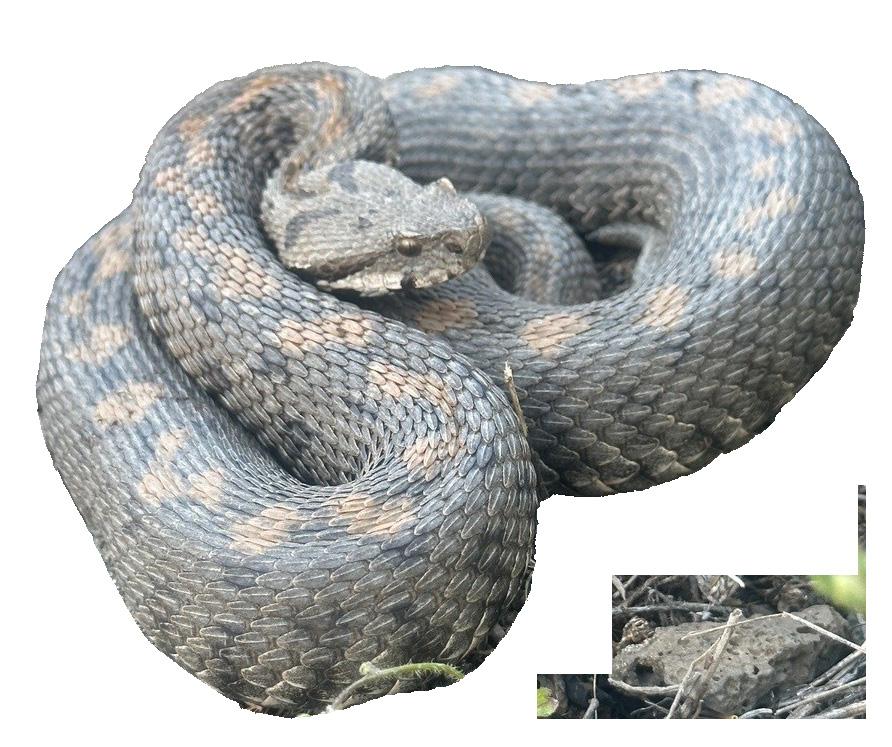
Launched in 2023, the Armenian Viper Conservation Project in Abovyan, Armenia aims to protect the Armenian viper and promote regional biodiversity. The area, known for its rich reptile diversity, has faced significant declines due to overexploitation, overgrazing and illegal collection. With funding from the Zoo, the project secured a 25-hectare lease for conservation, focusing on habitat restoration, species monitoring and community collaboration.
Key achievements include vegetation restoration and increased viper sightings, indicating habitat recovery. Collaboration with local communities has resulted in agreements to reduce livestock grazing in critical habitats and fostered discussions to align conservation with socioeconomic benefits. Educational initiatives, such as distributing booklets on local snakes, have strengthened community ties, while contributions to a Kaputan village kindergarten supported local development.
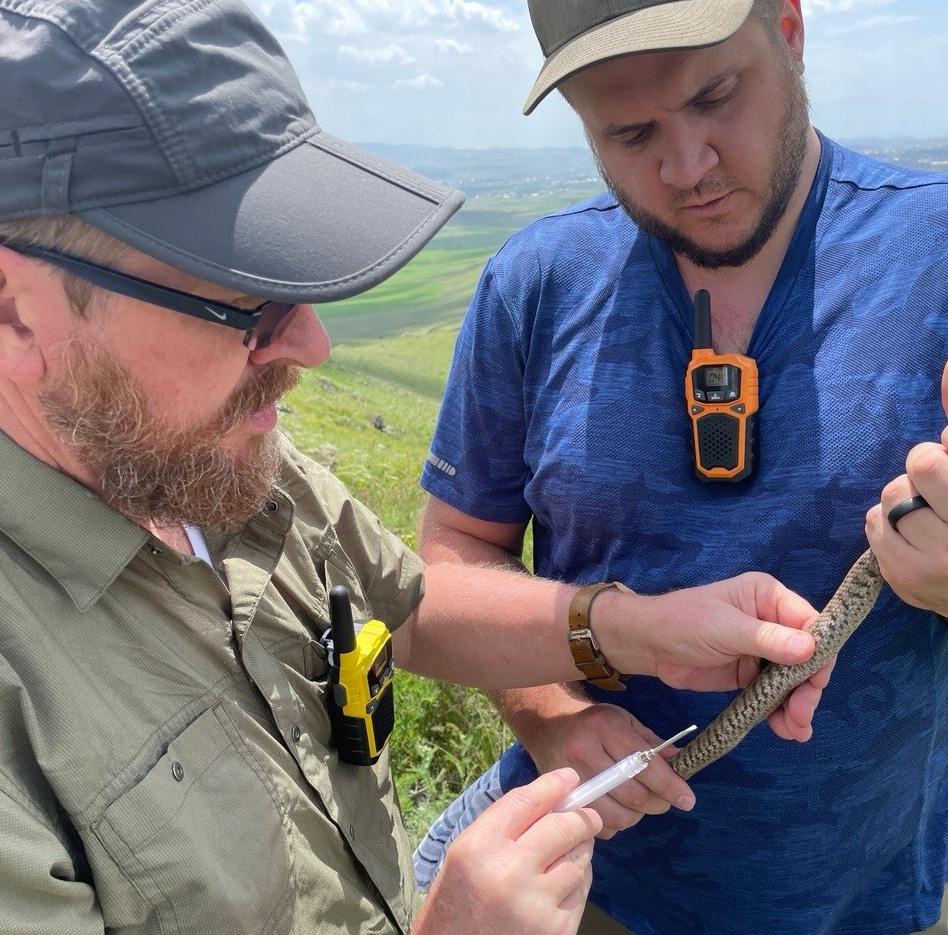
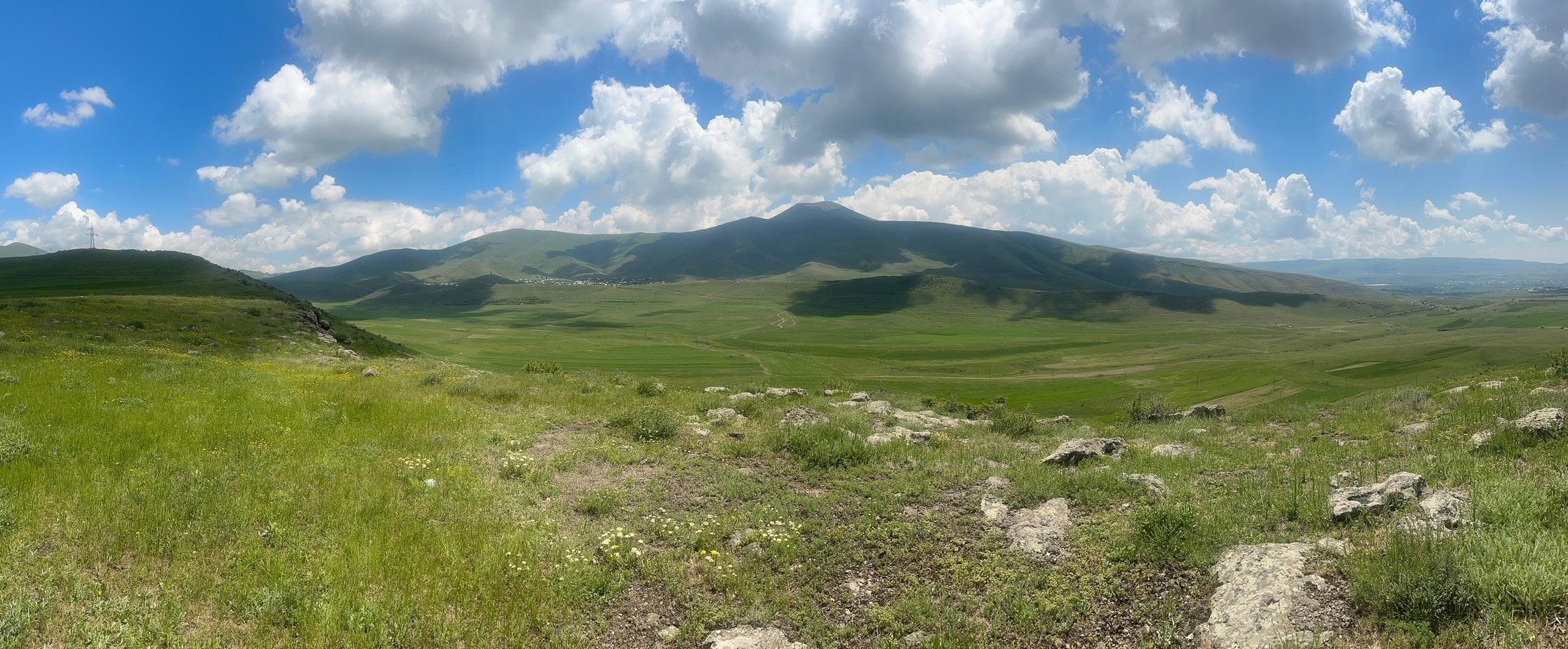
The Talarak Foundation is dedicated to conserving the unique wildlife of the Philippines, with a focus on regionally endemic species. Its initiatives include captive breeding, habitat restoration, scientific research and collaboration with local communities.
A key focus of the foundation is the critically endangered Visayan warty pig, which faces severe threats from habitat loss and the spread of African swine fever. Conservation monitoring is conducted at six sites across Negros and Panay islands to assess population declines and mortality rates.
Critical funding supports these monitoring efforts and education initiatives, ensuring the resources, equipment and personnel necessary to study and protect the species.
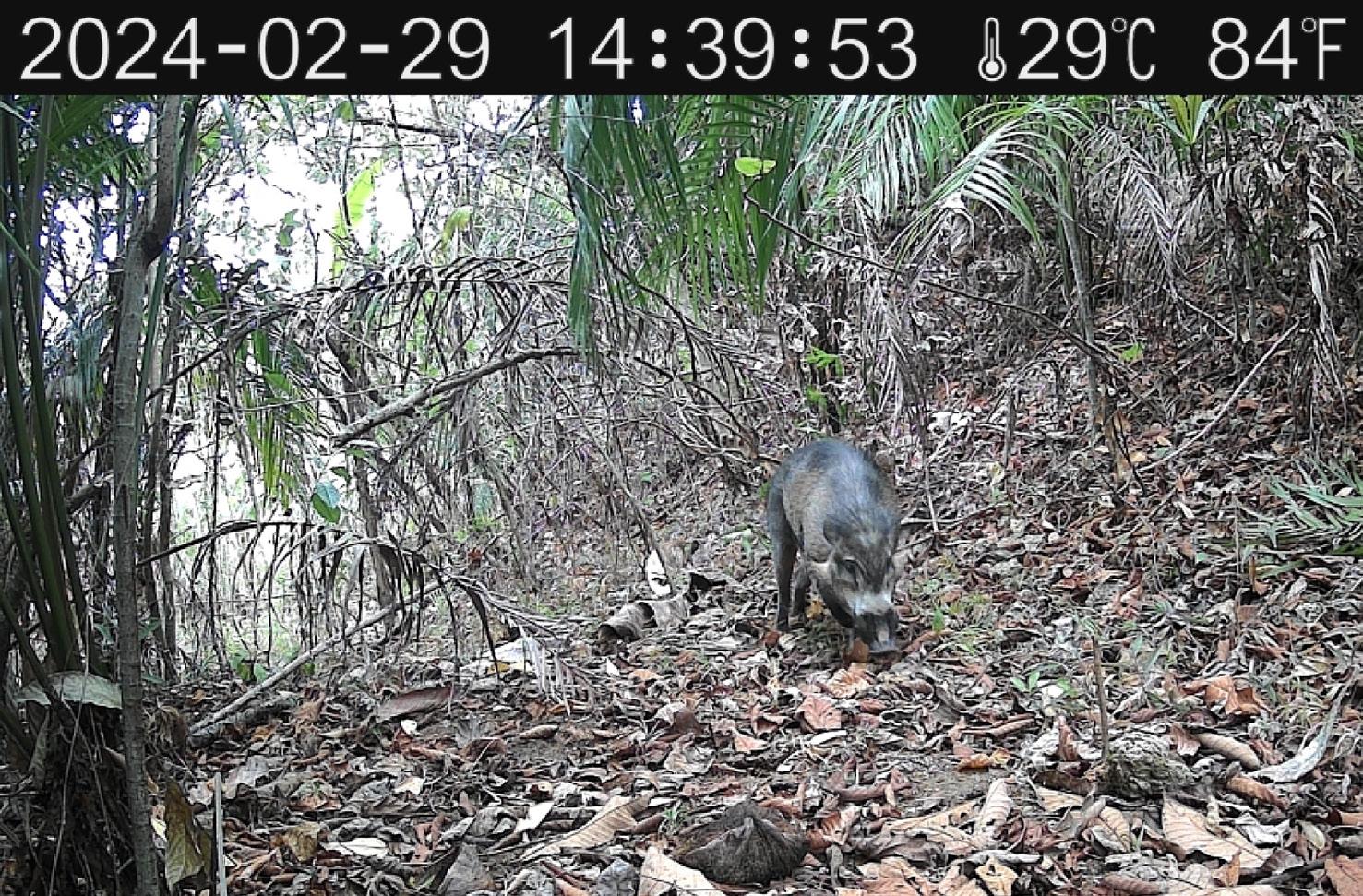
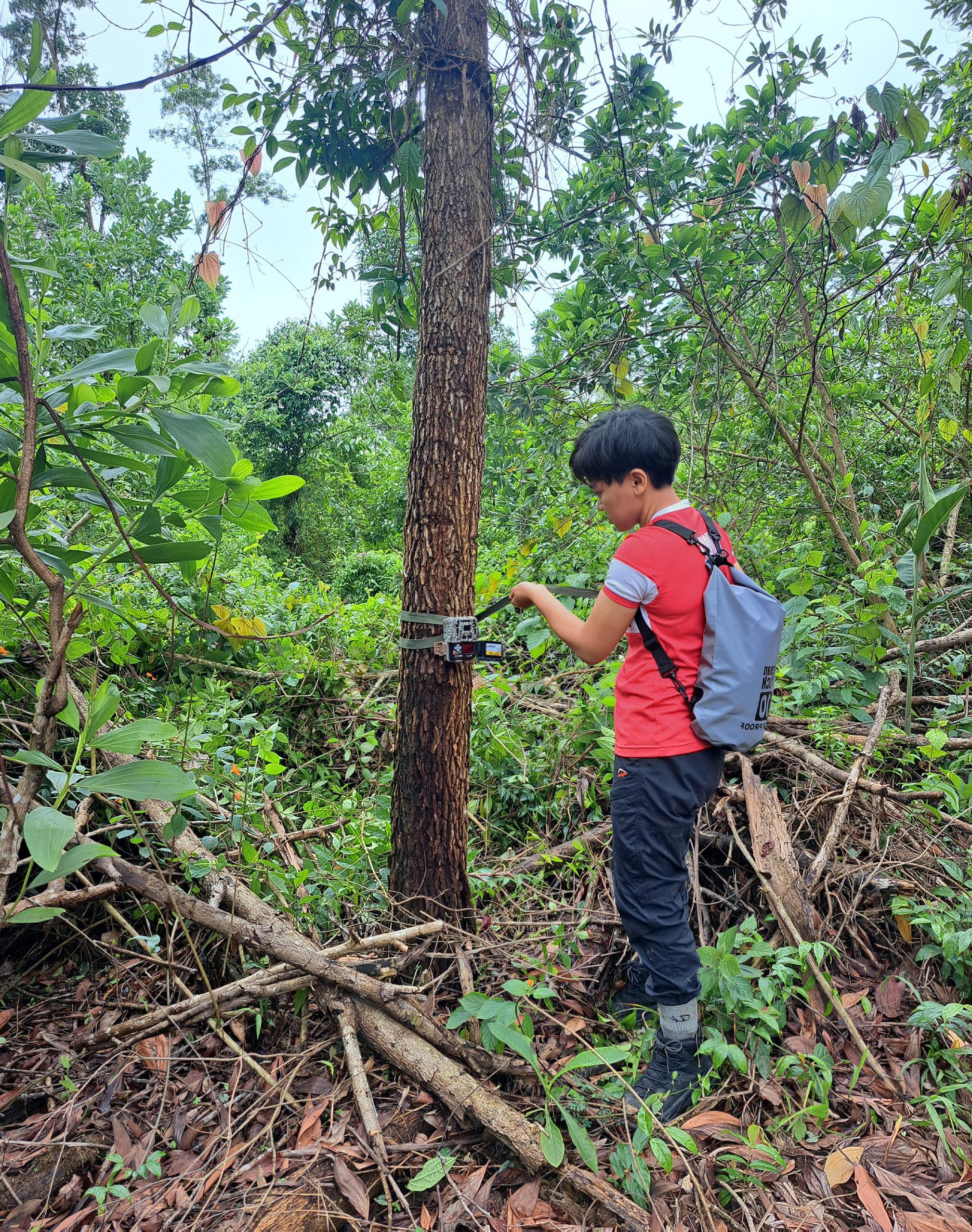
The International Rhino Foundation (IRF) is dedicated to the survival of all rhino species through strategic conservation programs, sciencebased interventions and global partnerships. IRF focuses on addressing critical threats like poaching and habitat loss, supporting research and managing breeding programs.
The Zoo contributed significantly to IRF’s mission by supporting Wildlife Protection Teams (WPTs) in the Leuser Ecosystem of Indonesia. This initiative, in collaboration with local NGO Forum Konservasi Leuser (FKL), deployed 38 WPTs, including nine teams dedicated to safeguarding critical habitats within Gunung Leuser National Park.
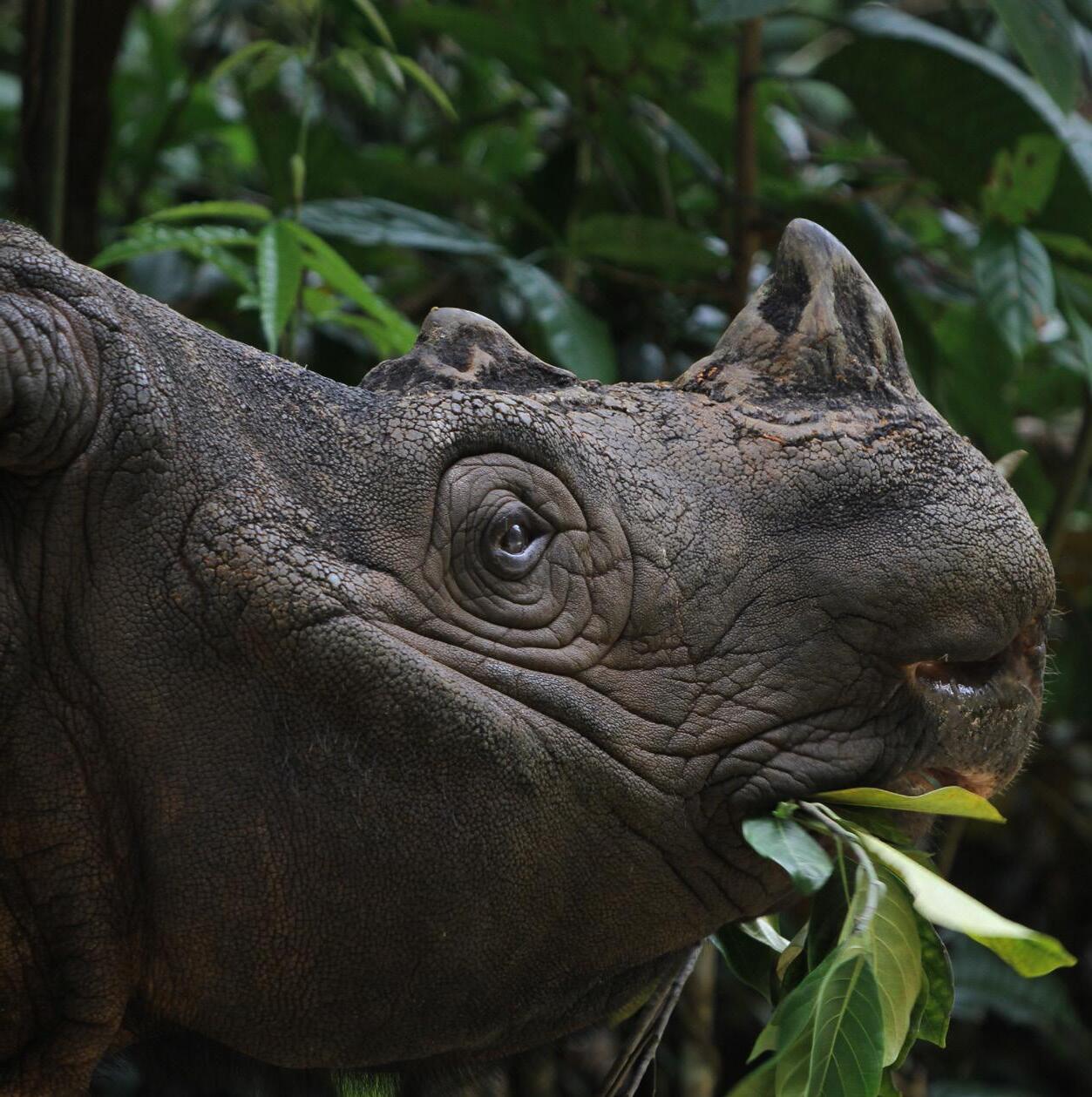
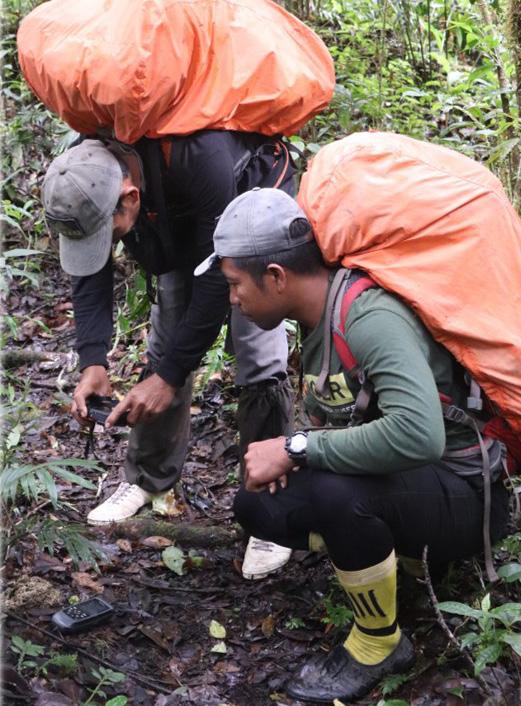
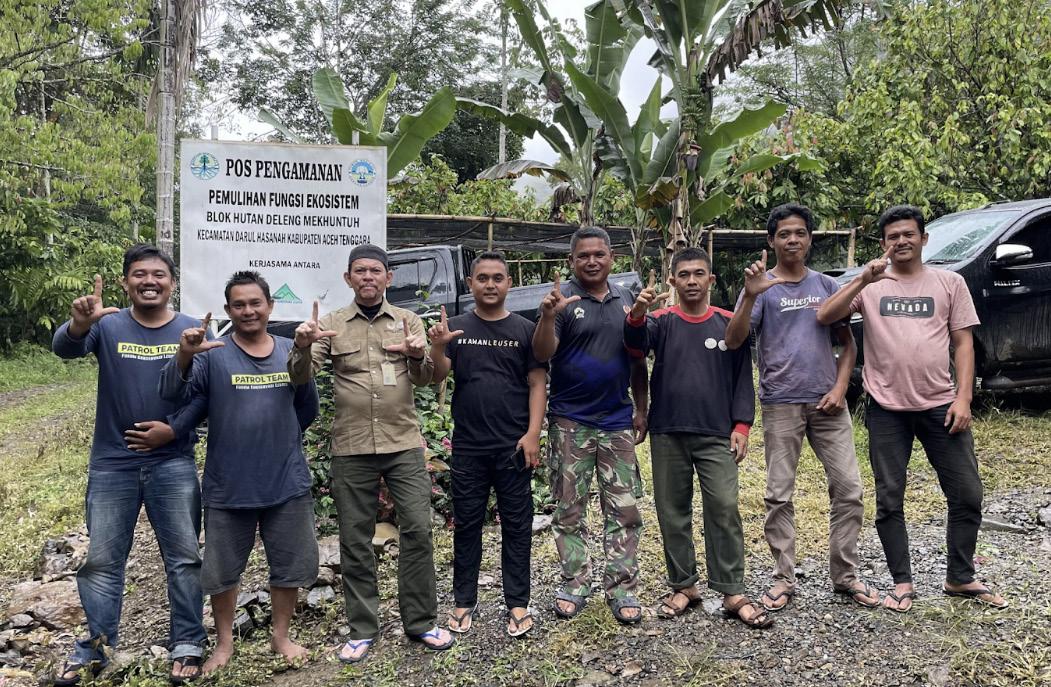
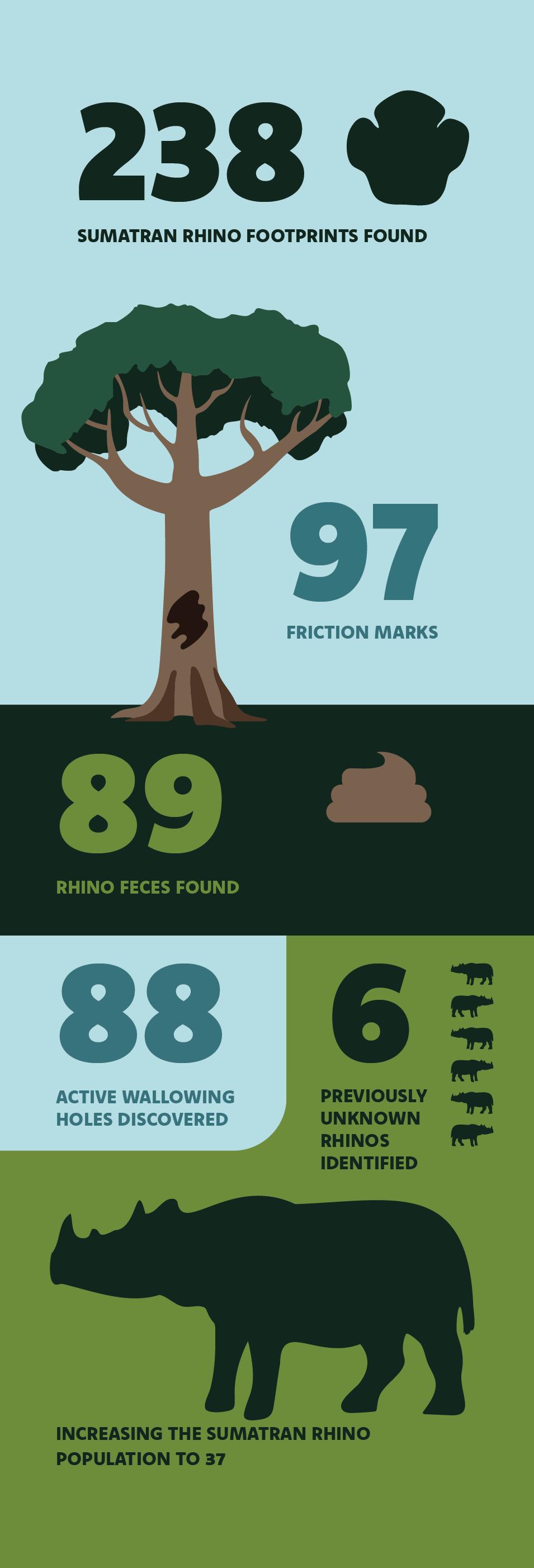
Elephants for Africa
G.R.A.C.E. — Grauer’s Gorilla
Okapi Conservation Project
Friends for Bonobos
Pan African Sanctuary Alliance
SANCCOB — Coastal Birds
Grevy Zebra
Giraffe Conservation Fund
Madagascar Flora and Fauna — Primates
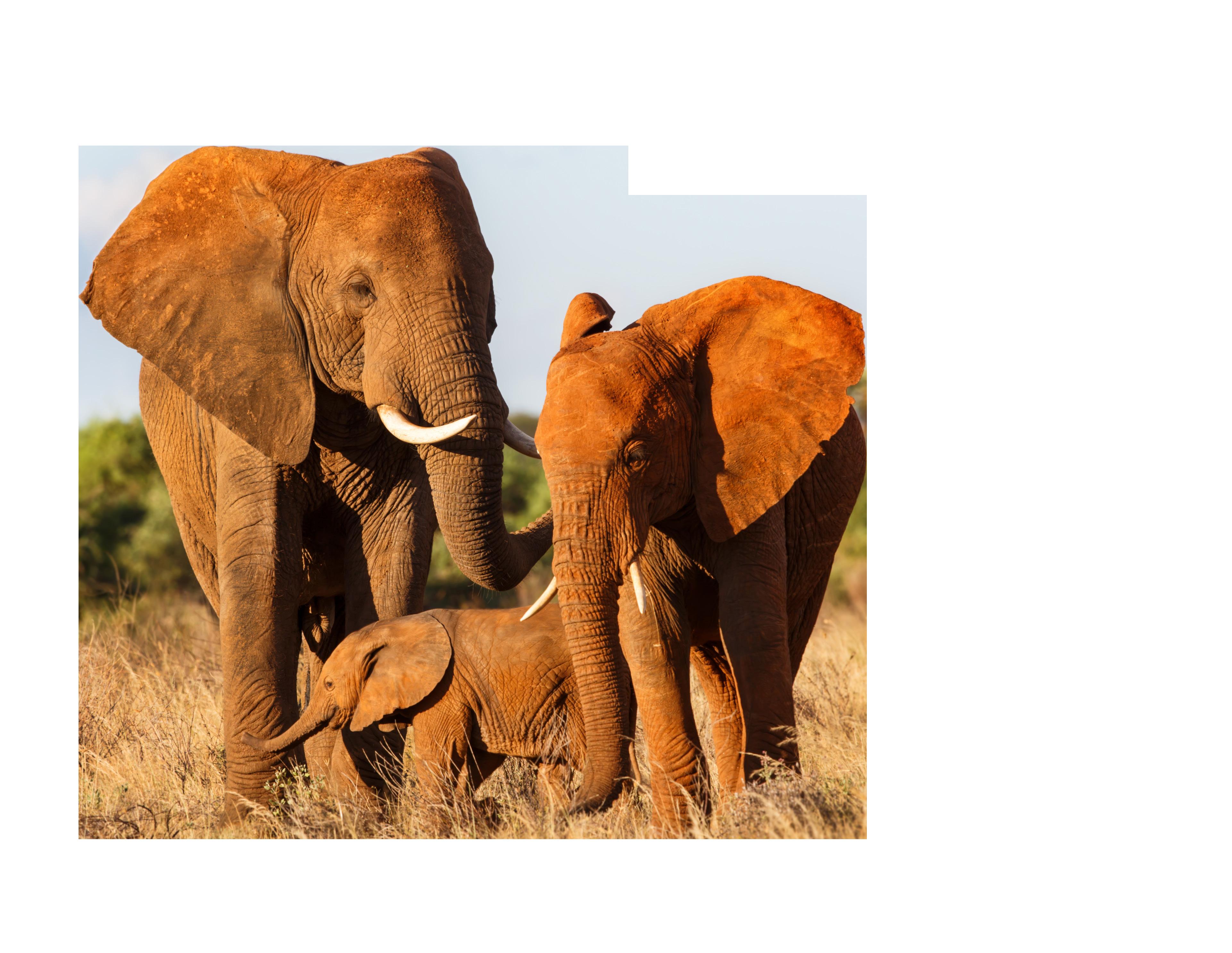
Elephants for Africa (EfA) is a conservation NGO dedicated to protecting Botswana’s elephants through research, education and community-driven initiatives. Operating near Makgadikgadi Pans National Park, EfA studies elephant behavior and promotes humanelephant coexistence through sustainable farming and environmental education.
The Zoo plays a pivotal role in supporting EfA’s mission by enabling the organization to expand its reach. Because of this, EfA has been able to engage 255 rural children through its Environmental Education Clubs, which helps students gain a deeper understanding of science, their environment and the importance of conservation.

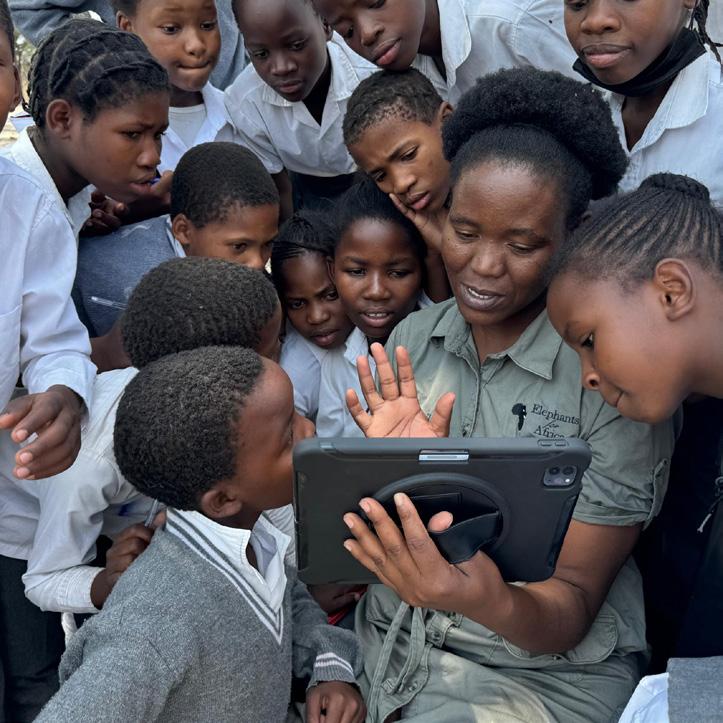
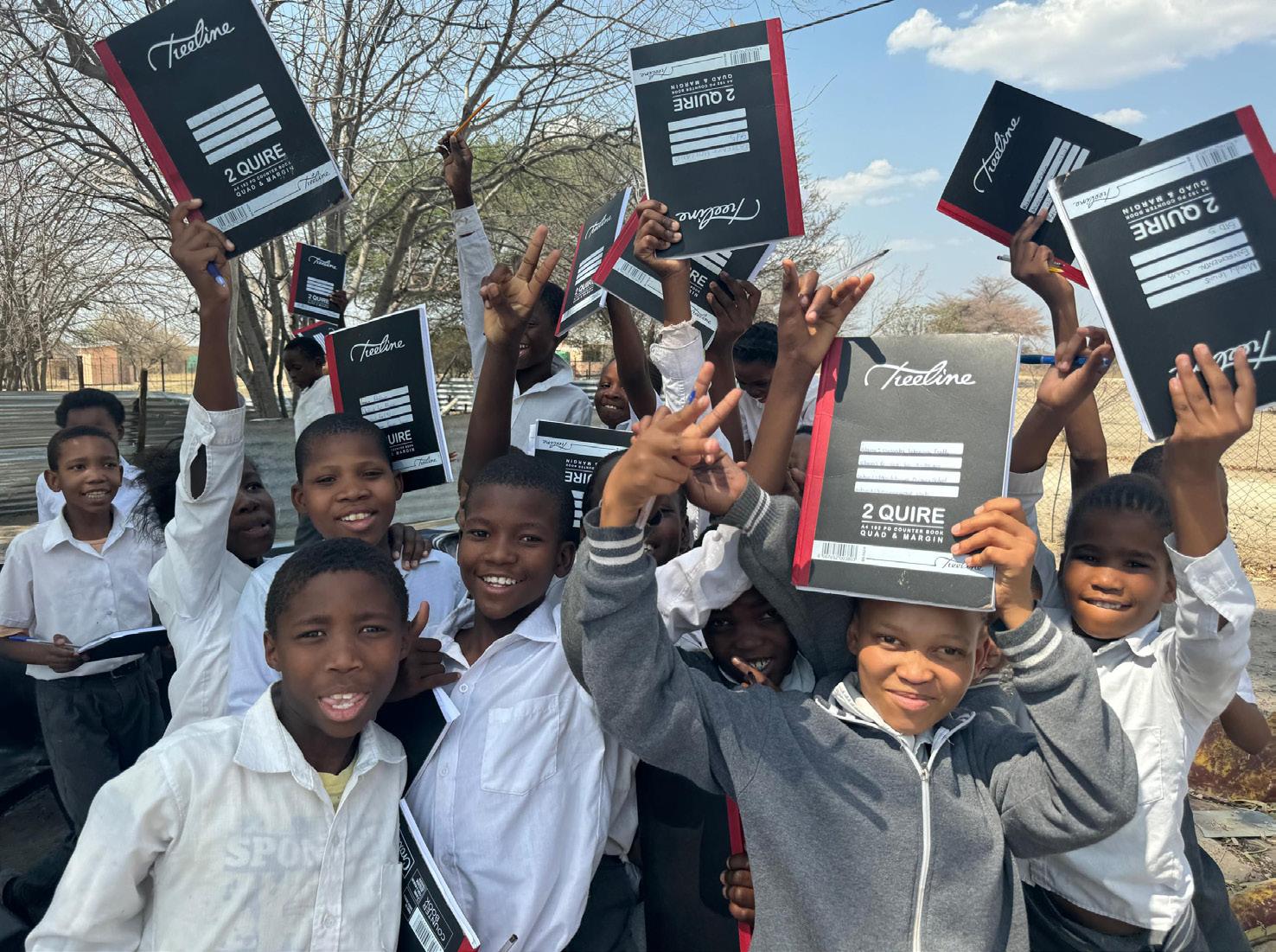
Additionally, the Zoo’s support enabled the hiring of a dedicated Education Officer, Ms. Kemoneetswe “Kay” Mphanyane. Kay has brought new energy and expertise to EfA’s initiatives, delivering engaging STEM-based lessons on topics like animal migrations and the scientific process. Her efforts inspire curiosity and environmental stewardship among students in the Boteti region, especially in underserved rural areas.
EfA has engaged 255 rural children through its Enviromental Education Clubs.
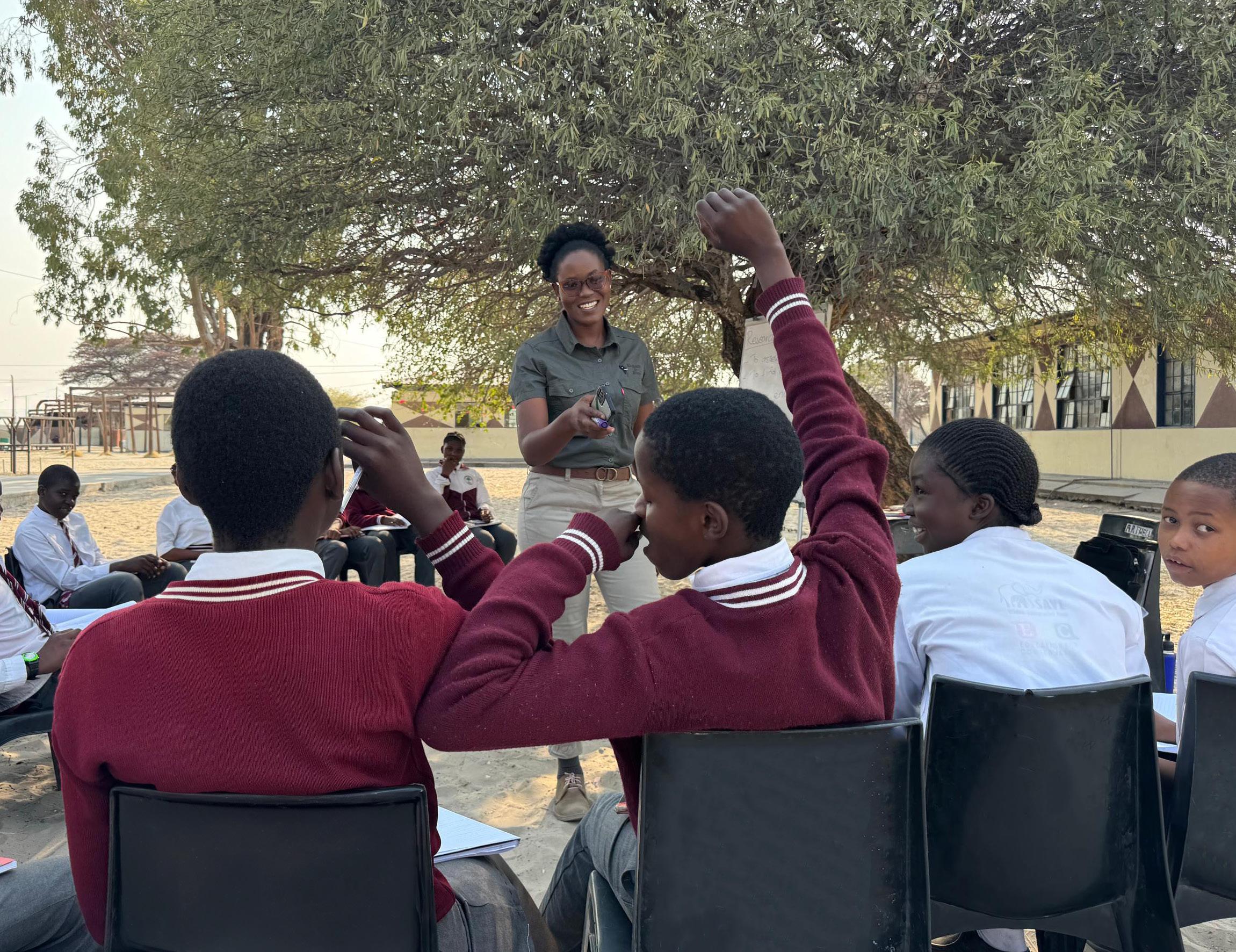
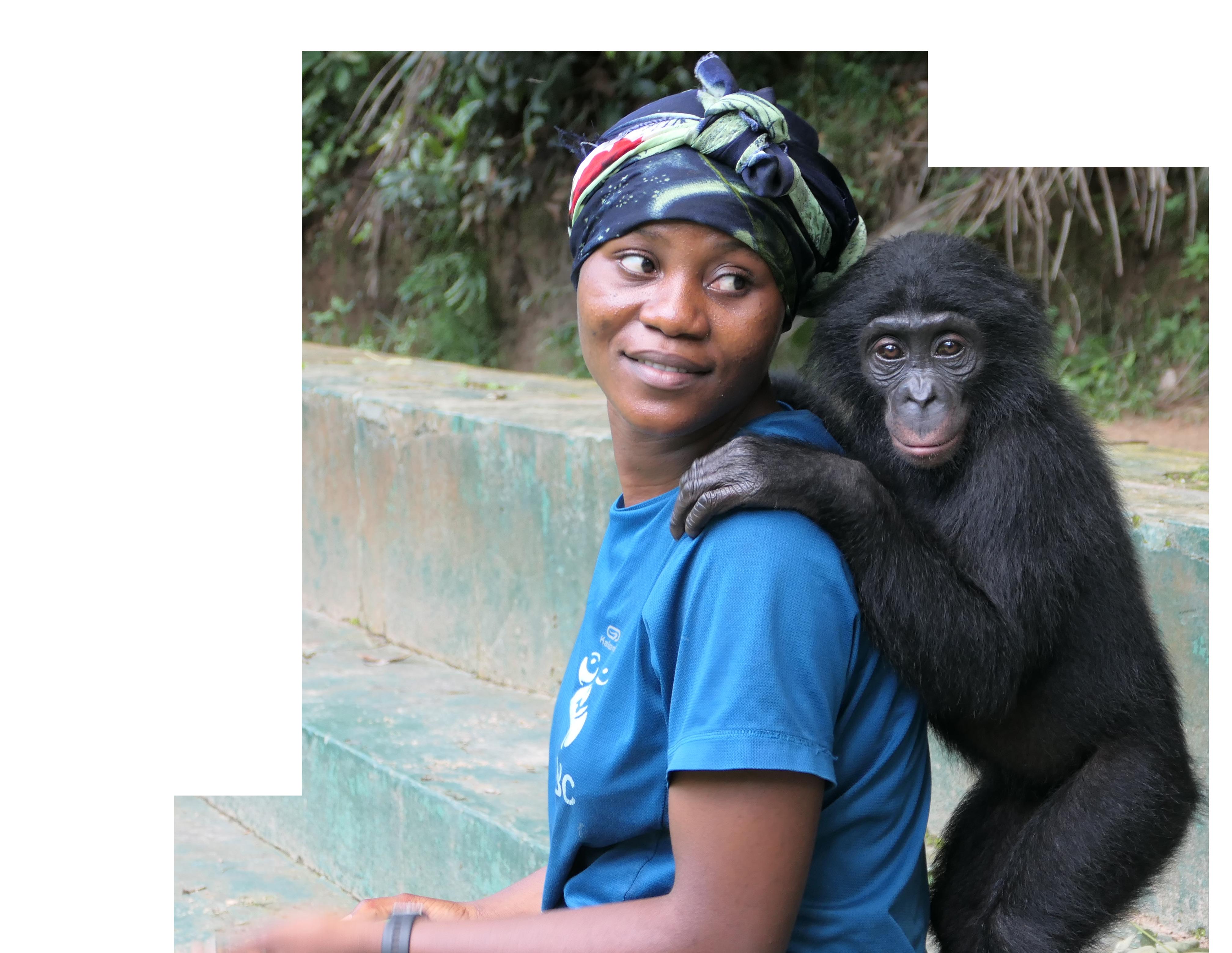
The Southern African Foundation for the Conservation of Coastal Birds (SANCCOB) is committed to safeguarding seabirds, with a particular focus on the African penguin, which is facing an alarming 8% annual population decline. With fewer than 10,000 breeding pairs remaining, the African penguin could face extinction by 2035 without immediate intervention. SANCCOB’s approach, combining rehabilitation, conservation and research, is crucial in reversing this trend.
In 2024, we supported SANCCOB by funding the expansion of their Chick Rearing Unit, which incubates rescued eggs and hand-rears chicks for release. This expansion doubled the unit’s capacity, enabling care for 400 eggs and 200 chicks at once. The Zoo also funded food, medicine and rescue vehicle fuel for SANCCOB’s seabird hospitals, aiding in the rehabilitation of 1,872 seabirds, including 766 African penguins. Over 9,000 penguin fledglings have been successfully released through this partnership. Zoo team members further contributed by assisting with chick rearing and the release of critically endangered penguins and other seabirds.
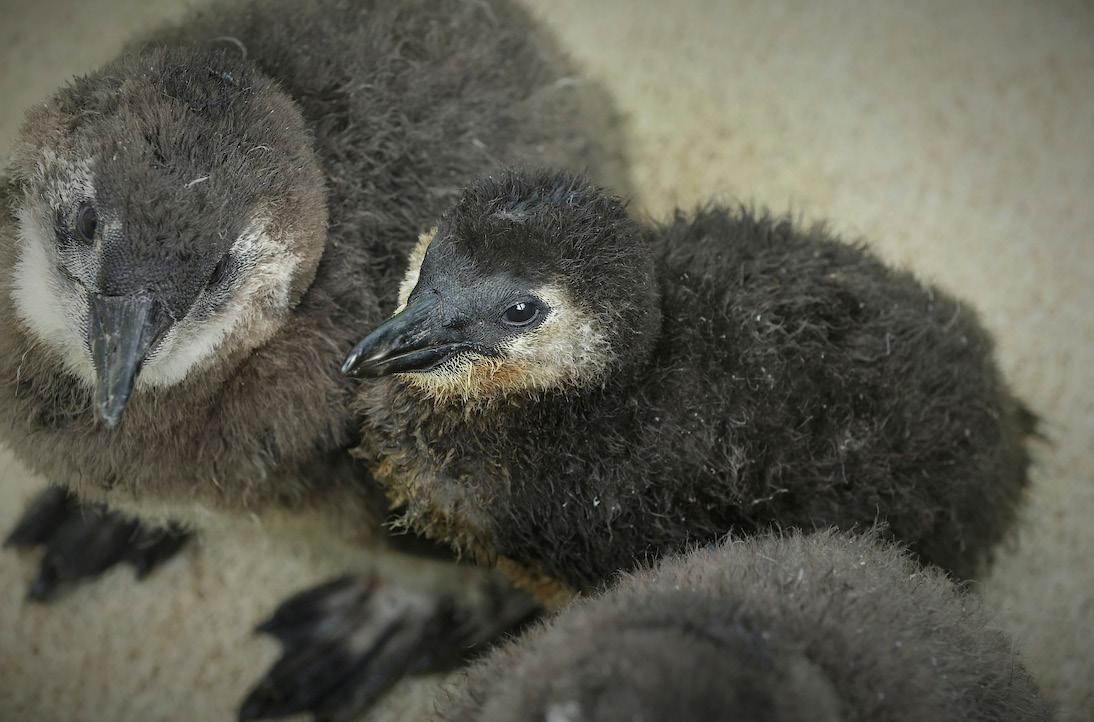
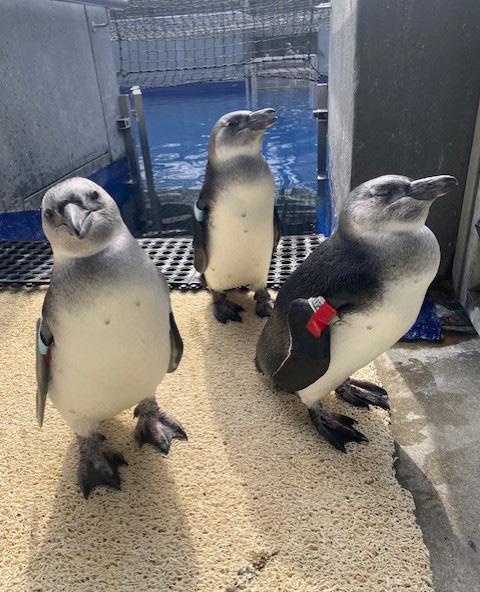
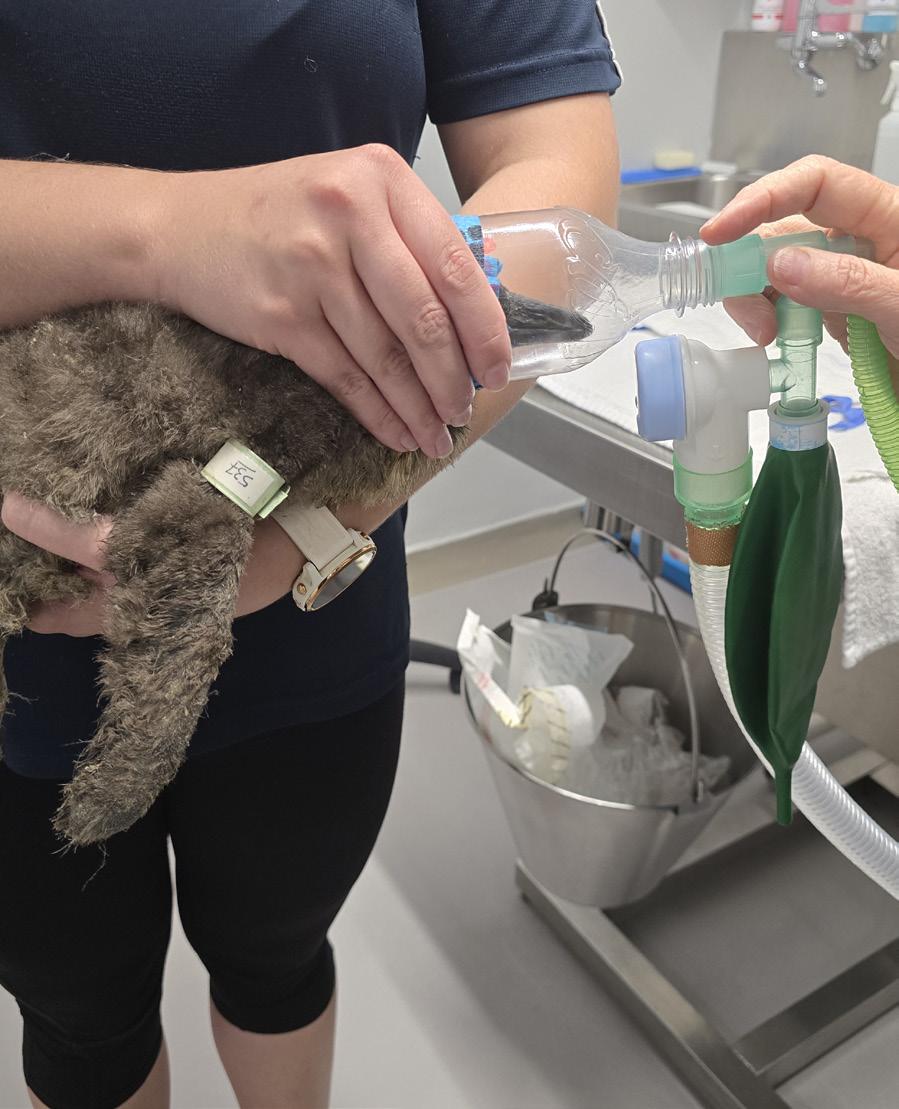

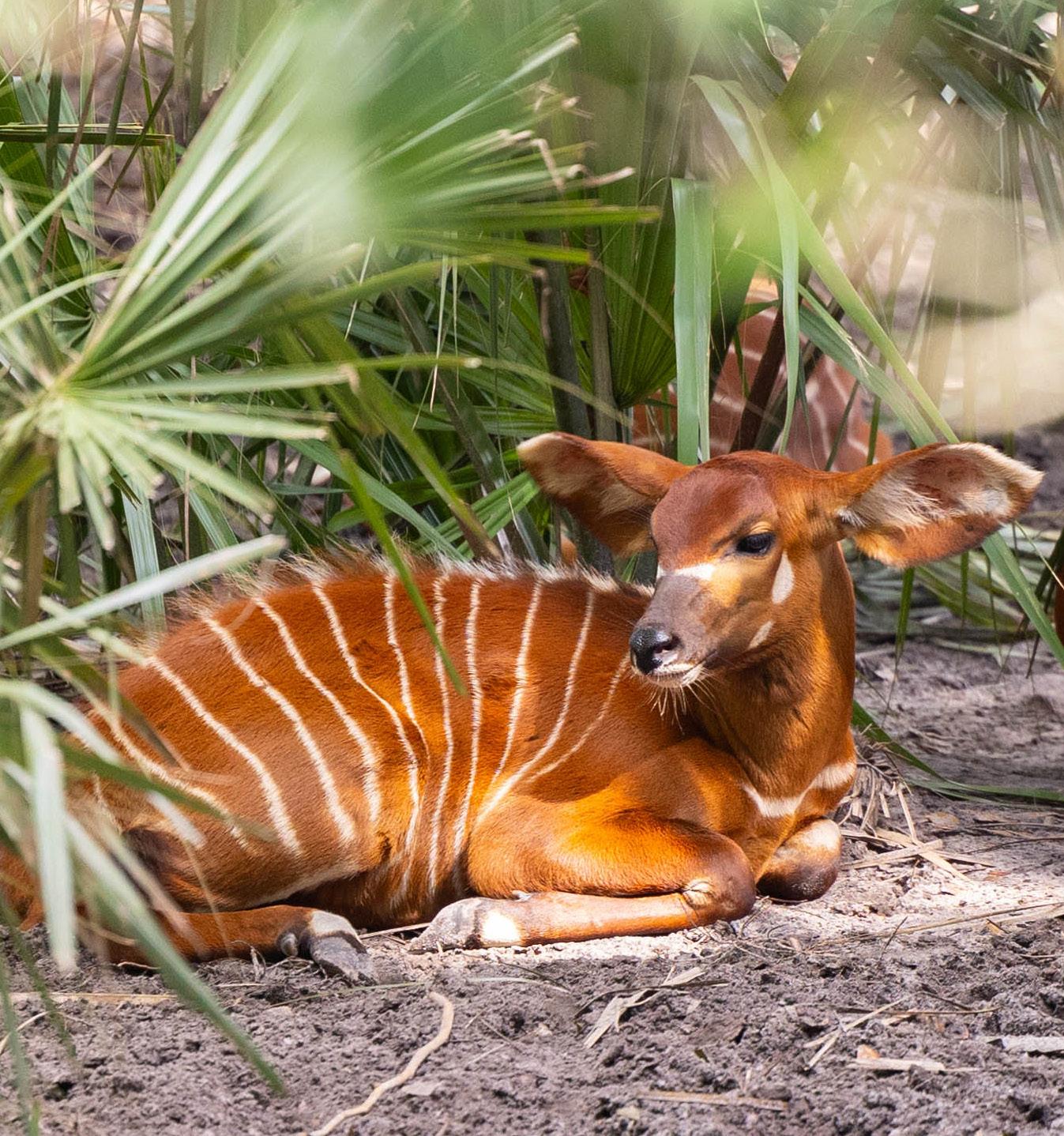
Technological Improvements for Wellness
Technology is revolutionizing animal care at Jacksonville Zoo and Botanical Gardens. Our IT team has implemented real-time monitoring for antivenom storage and critical life support systems, ensuring animal safety with instant alerts. New cellular and camera hardware now allow our Wellness and Life Sciences teams to monitor high-priority animals remotely. With enhanced network infrastructure, secure data systems and cloud-based disaster recovery, we’re building a smarter, more resilient Zoo. From streamlining operations to protecting wildlife, these innovations empower our team members and elevate animal wellbeing like never before.
A Win for Conservation
This year, we celebrated exciting new life across the Zoo. Along with the birth of Malayan tiger cubs, we welcomed Maxine, a critically endangered Coquerel’s sifaka, in January, and Angolan colobus Meeka in June. Our bongo herd also grew with the birth of two healthy calves. These milestones reflect both conservation success and the expertise of our Animal Care and Health teams.
On November 5, 2023, we welcomed three critically endangered Malayan tiger cubs—Machli (male), Beppy and Mina (females)—born to mother Cinta and first-time father Bashir. Their birth marks a vital step in sustaining the Malayan tiger population, with fewer than 150 remaining in the wild. As key predators, tigers help maintain the balance of their ecosystems, making their conservation essential. We are proud to contribute to the survival of this species and the preservation of global biodiversity.
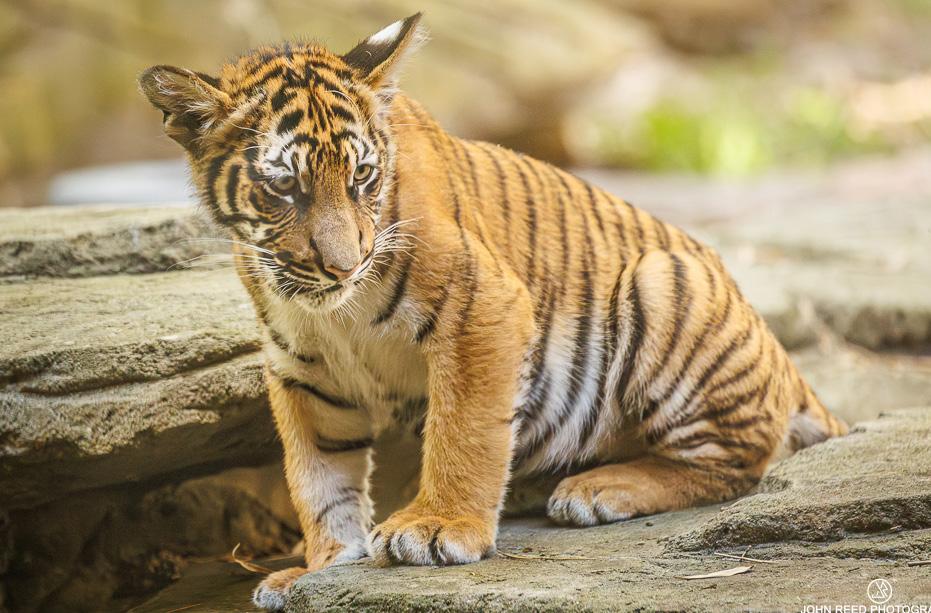

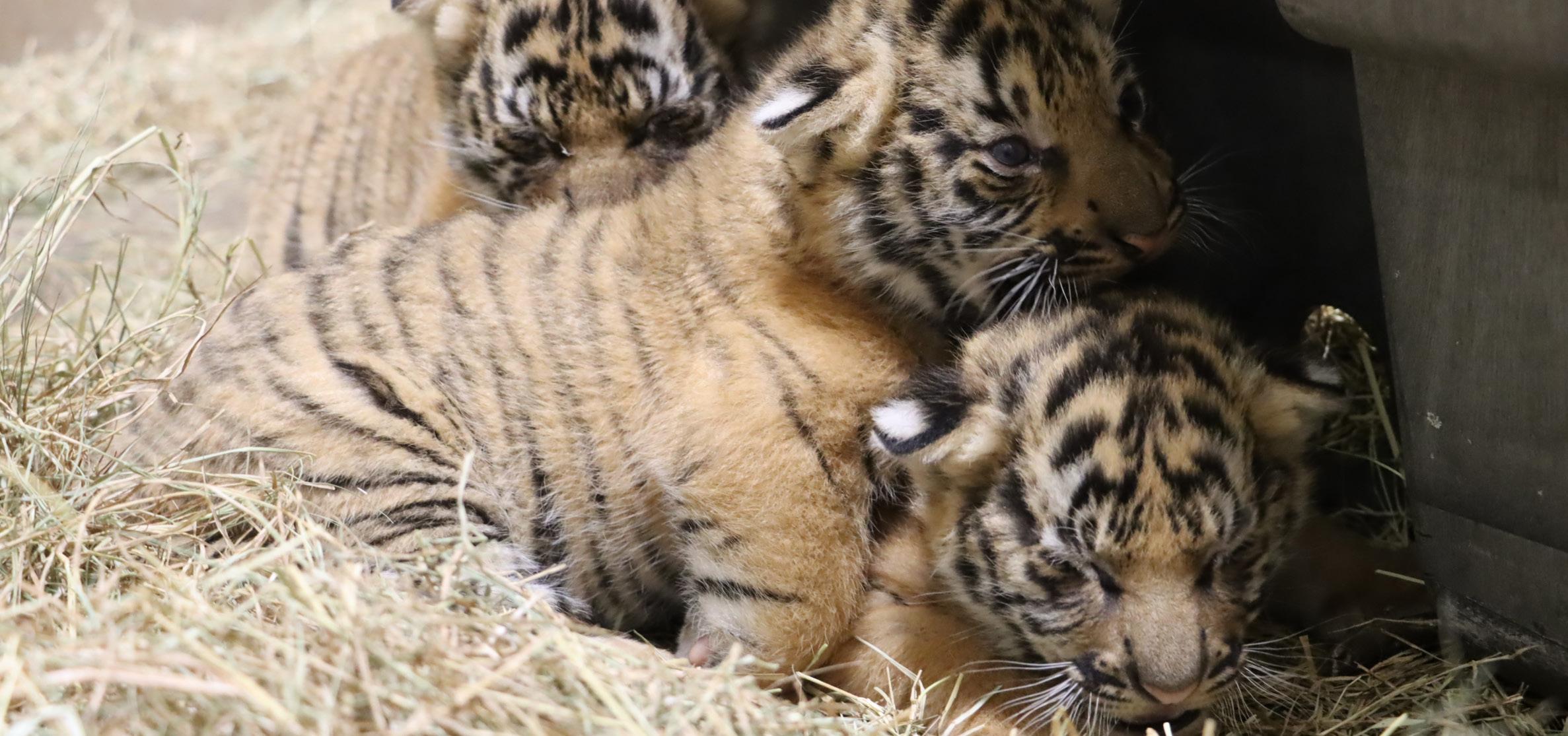
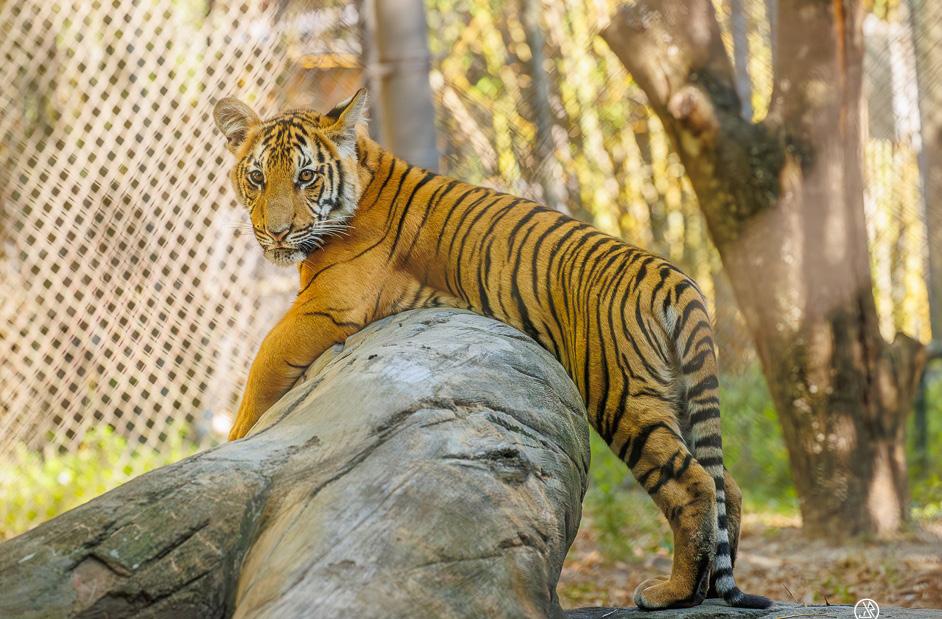
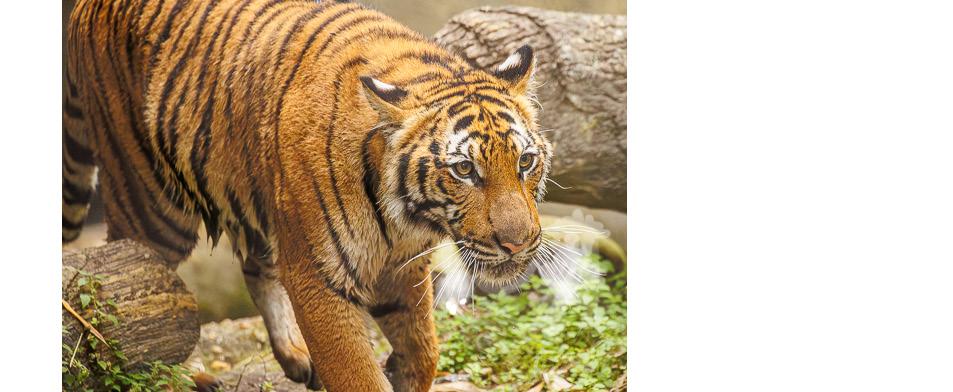
At just one month old, Mina suffered a broken leg. Our Animal Health team, in collaboration with a veterinary surgeon, pursued multiple treatments, including splints, casts, surgeries with plates and shock wave therapy. Treating an injury in a young cub presents unique challenges, but Cinta and her siblings showed remarkable acceptance and support. Throughout her journey, Mina remained resilient and in high spirits, making an inspiring recovery.

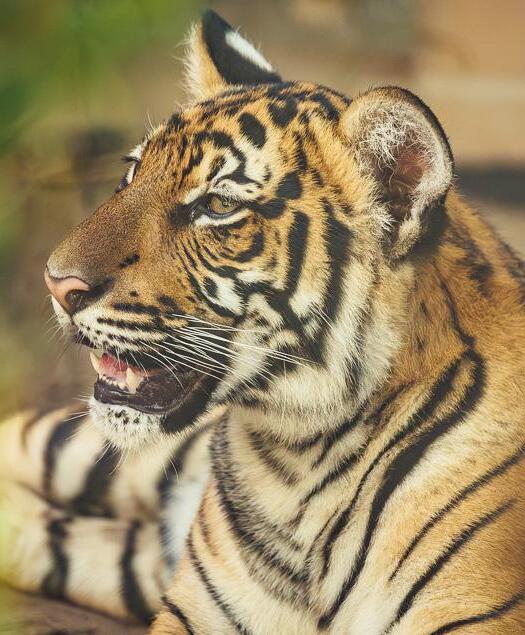
The Zoo’s Wellbeing team uses behavioral research to inform animal care and expand knowledge of understudied species.
We continued our collaboration with the University of North Florida’s (UNF) College of Arts and Sciences. Emily Simkins, a UNF Psychology graduate student and Animal Behavior Research Fellow, began her master’s project on lorikeet aggression and the efficacy of privacy perches in reducing aggression.
Kendal Rogers, a UNF Biology master’s student and Animal Behavior Research Fellow, became our sixth fellow to successfully defend her thesis, focusing on the welfare of captive cownose rays.
Additionally, Anya Fox, a UNF REU (Research Experiences for Undergraduates) student, presented her findings on the connection between rectilinear posture, husbandry and the wellbeing of captive snakes at UNF’s ARISE exhibition.
This year also saw the approval of 13 new animal-based research projects submitted by external researchers, as well as two internal research projects, all aimed at advancing our understanding of animal welfare.
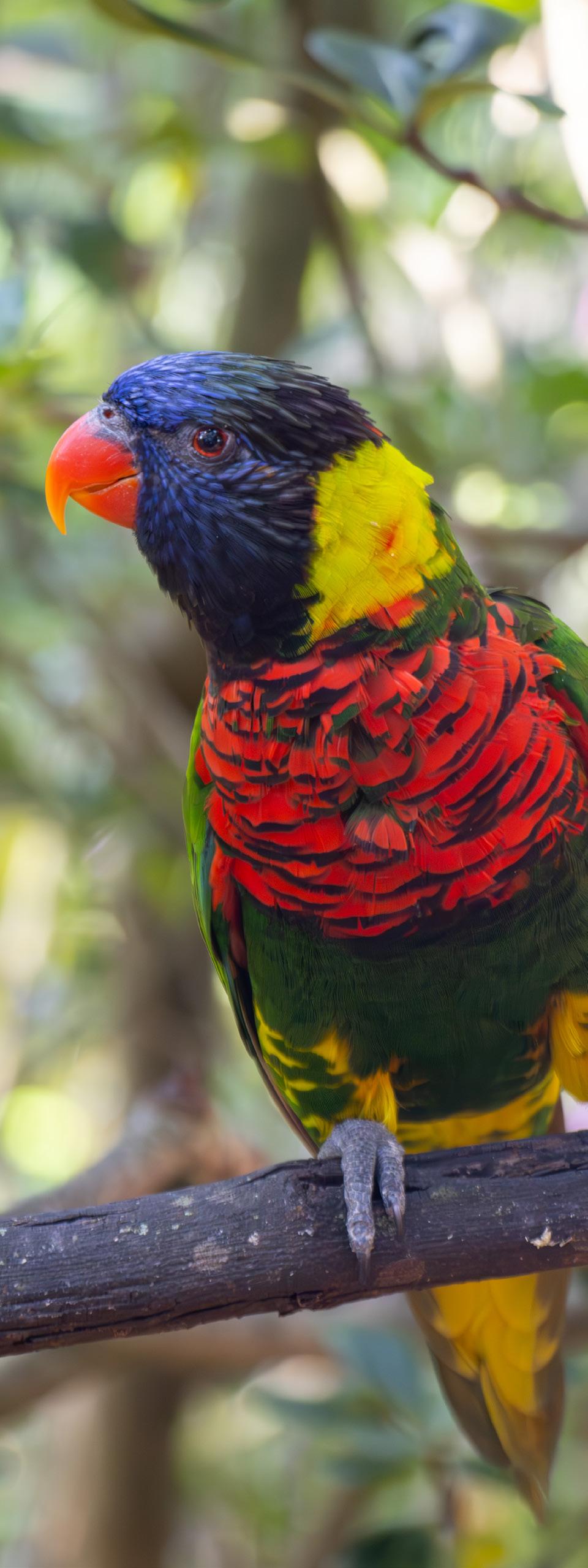
Alligator: 6.67
Bonobo: 50.90
Bongo: 35.03
Giant Otter: 13.81
Jaguar: 58.11
Giraffe: 169.74
Lion: 73.40
Bluntnose Ray: 7.32
Rhino: 43.30
Tiger: 103.39
Gorilla: 109.84
Kookaburra: 28.22
Magpie Jay: 2.42
Komodo Dragon: 56.94
Zebra: 39.69
Bald Eagle: 24.98
Emu/Cassowary: 13.93
Snake: 33.94
Total: 871.63 hours of in-person observations
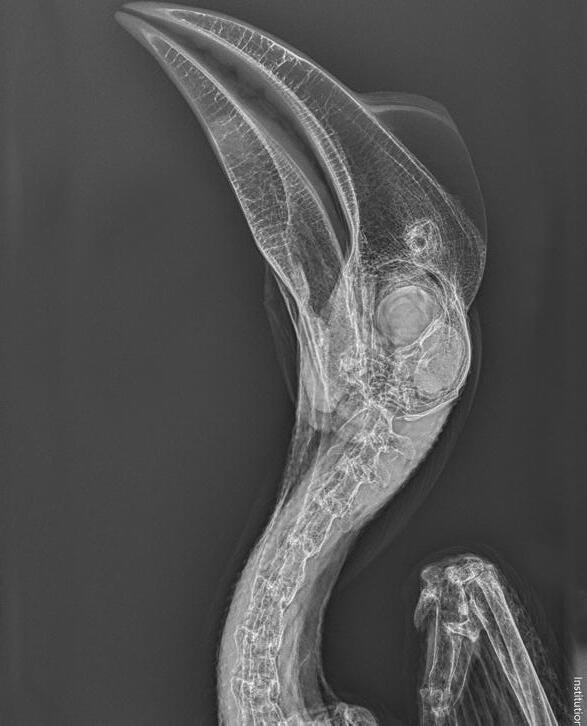
Video Footage Hours
White-Bellied Bustard: 336
Caiman: 120
Zebra: 147
Lorikeet: 18
In 2024, our Wellbeing team expanded its focus on the health and care of geriatric animals and those experiencing significant life events. A key initiative involved monthly meetings between Animal Care team members, Veterinarians and Wellbeing
Specialists to discuss individual animals and review data.
Using interactive dashboards, the team can access months and even years of detailed information in a convenient, visually accessible format. This specialized monitoring approach coincided with the implementation of a new annual assessment system, ensuring every animal at the Zoo undergoes a comprehensive evaluation. These efforts are integral to fulfilling accreditation standards and raising the bar for modern animal care.
At 54 years old, Archie was the oldest male southern white rhino in human care. When our Animal Health team discovered signs of an infected tooth, they conducted exams, took x-rays and consulted global experts. With the risk of infection spreading, a specialized procedure was planned.
A team of Veterinary and Animal Care Specialists, including experts from White Oak and worldrenowned Veterinarians, successfully anesthetized and treated Archie in a high-risk operation.
This remarkable procedure underscores our commitment to providing the highest level of care for animals at every stage of life, made possible through collaboration across institutions and unwavering dedication to animal health and welfare.
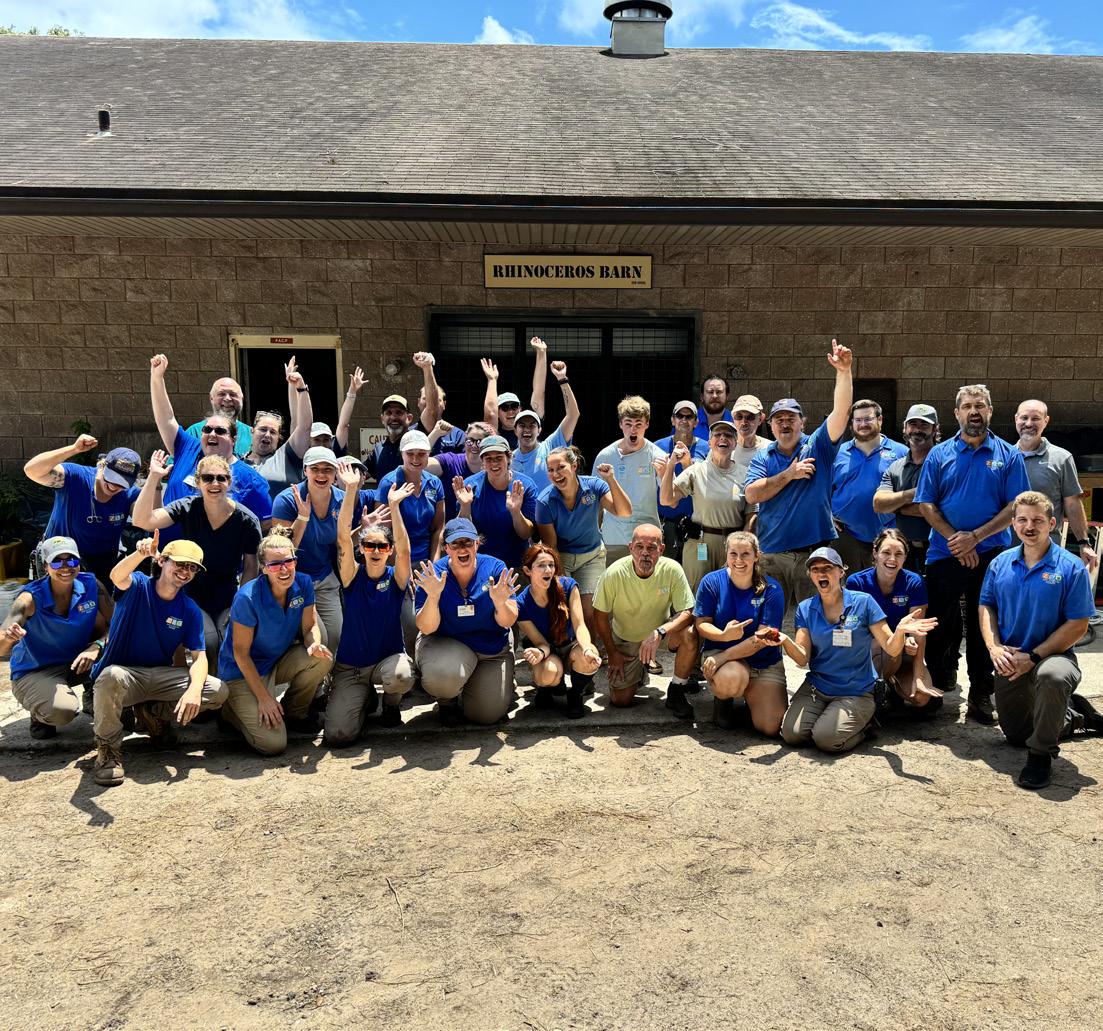
Thank you to everyone who helped with the procedure!
In a remarkable effort to ensure the health and wellbeing of 34-year-old African elephant Ali, a team of nearly 30 global experts collaborated to perform a specialized dental surgery, successfully removing the remaining portion of his damaged right tusk.
Ali had undergone previous tusk procedures in 2019 and 2023, but due to the complexity of his anatomy, tusk size and anesthetic limitations, a multi-phased approach was necessary. After meticulous planning, a three-anda-half-hour procedure successfully removed the tusk, ensuring Ali’s long-term health.
Weighing 11,000 pounds, Ali’s size required modified anesthetic equipment, elongated dental tools and a skilled team. Esteemed wildlife veterinarians, Dr. Gerhard Steenkamp, lead dental surgeon, and Dr. Adrian Tordiffe, anesthetic team lead, travelled from South Africa and India to collaborate with a team of 16 other Veterinarians, eight Veterinary Technicians and our Elephant Care Specialists for this challenging case.
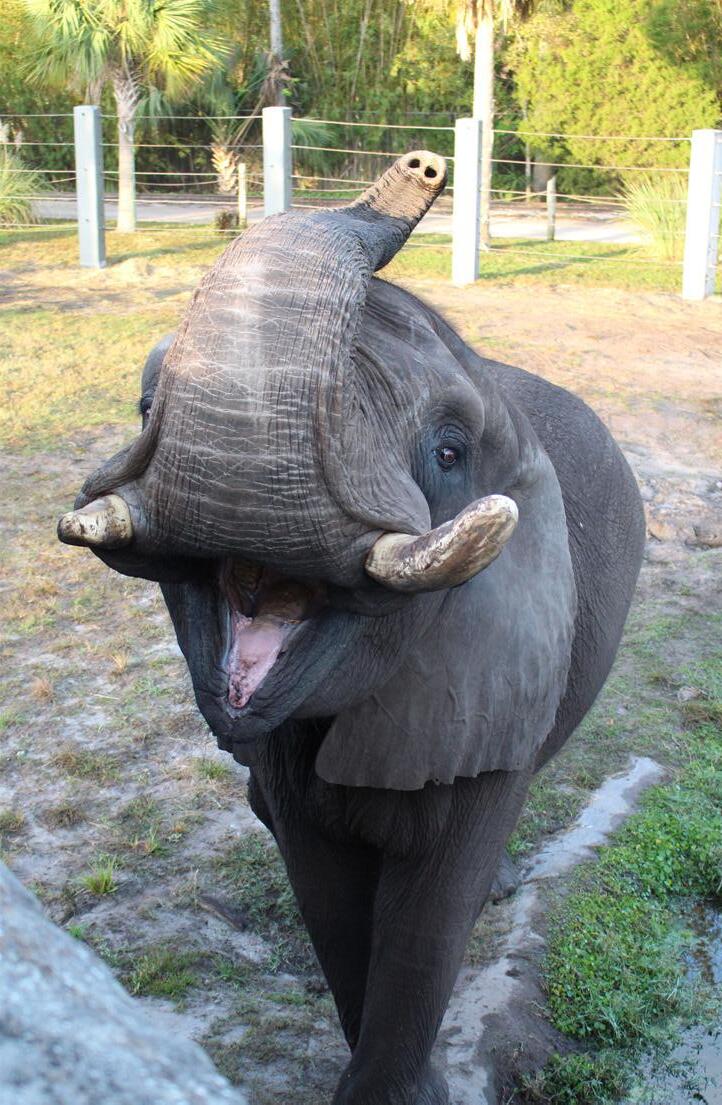
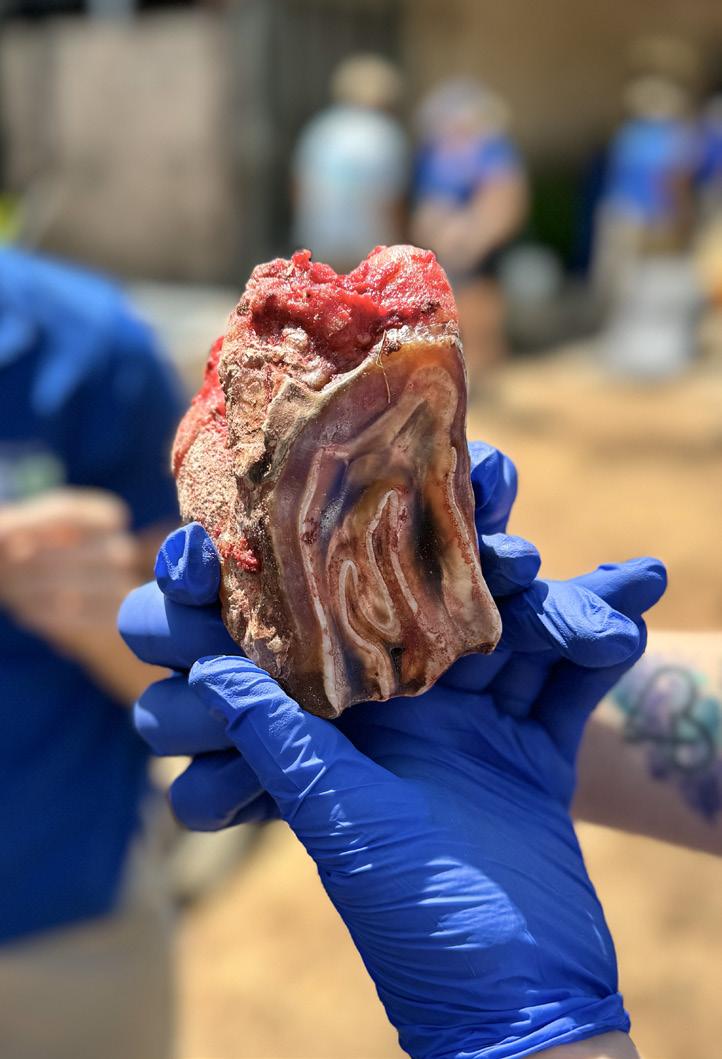
Dr. Mike Lowder, a respected equine veterinary dentist, assisted Dr. Steenkamp with the intricate procedure. The team also included top veterinarians like Dr. James Bailey, a Jacksonville-based anesthesiologist, and Dr. Jeff Zuba, a zoo and wildlife consultant. Dr. Zuba, who invented a specialized ventilation unit for large animals under anesthesia, played a key role in ensuring Ali’s safety throughout the surgery.

More than a decade in the making, the Living Shoreline Project took a major step forward in 2024. First envisioned in 2011, this innovative project has gone through years of design, permitting and fundraising, with a local environmental design firm generously working pro bono. Now, under the leadership of our Construction Projects Manager, Cullen Richart, construction is well underway.
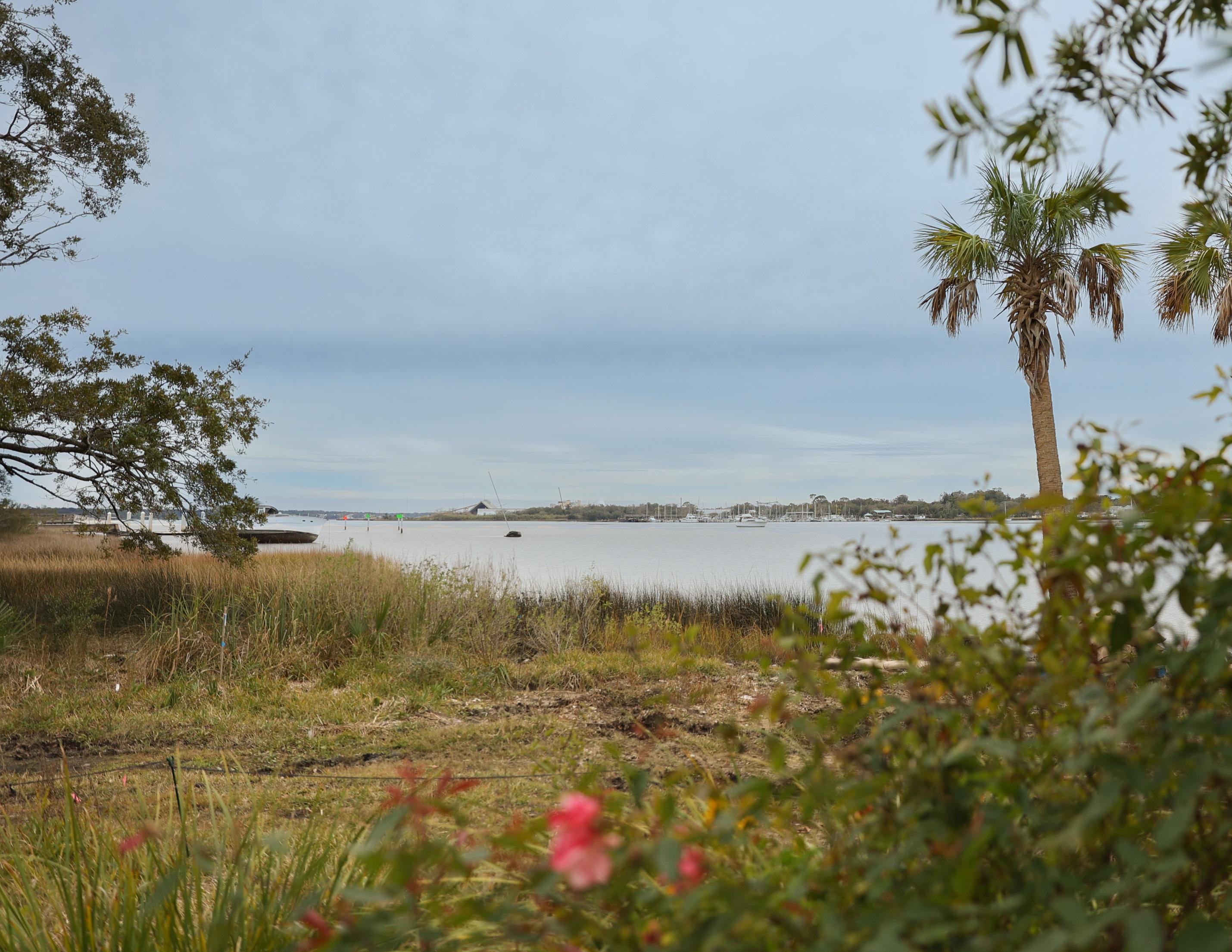
Replacing a deteriorating concrete shoreline along 180 feet of the Trout River, the new living shoreline features reef ball wave barriers, oyster gabions and marsh grasses planted in soil bags. As these layers are established, they will protect against erosion and create vital habitat for river wildlife, ensuring a healthier, more resilient ecosystem for years to come.

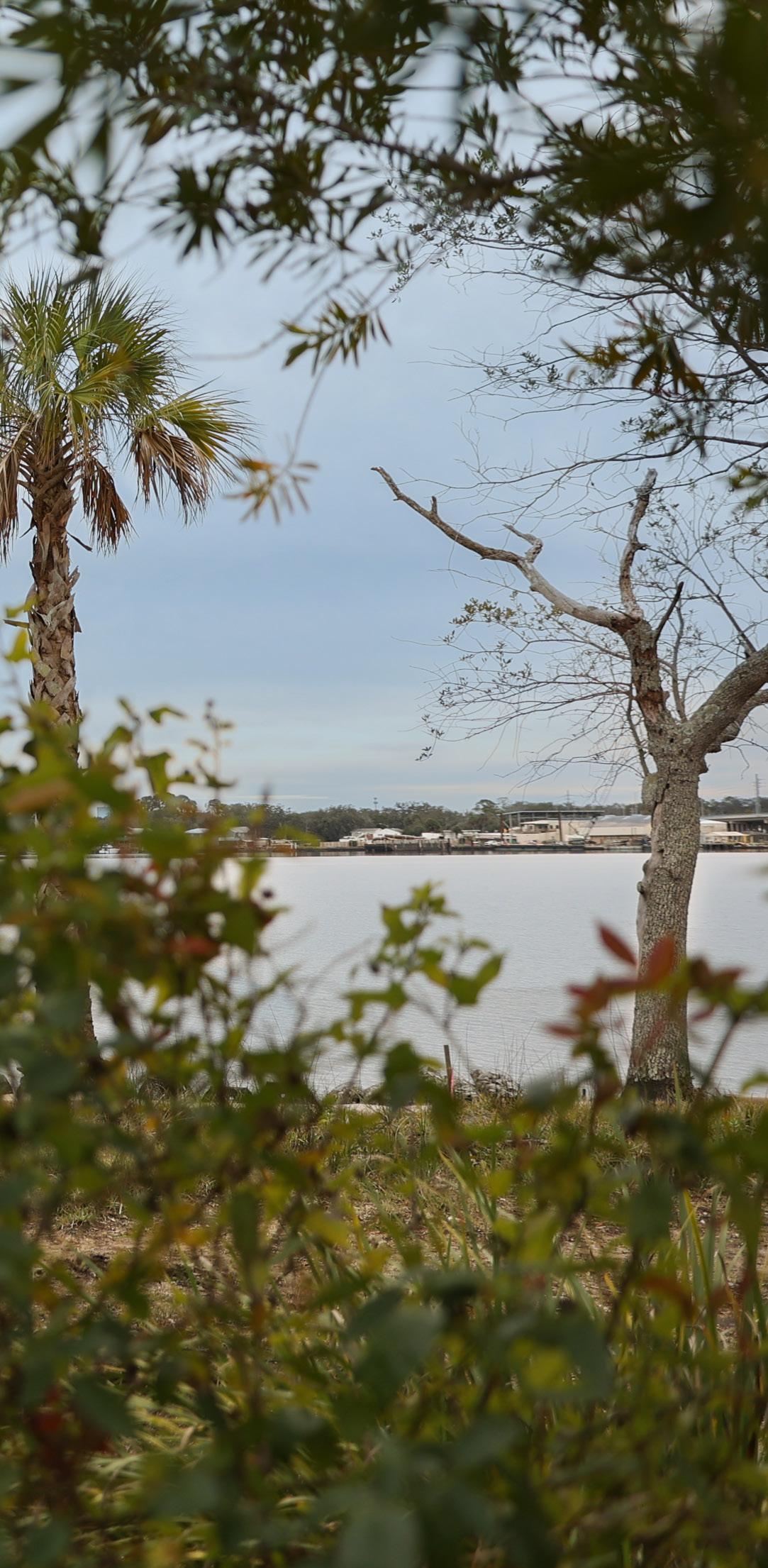
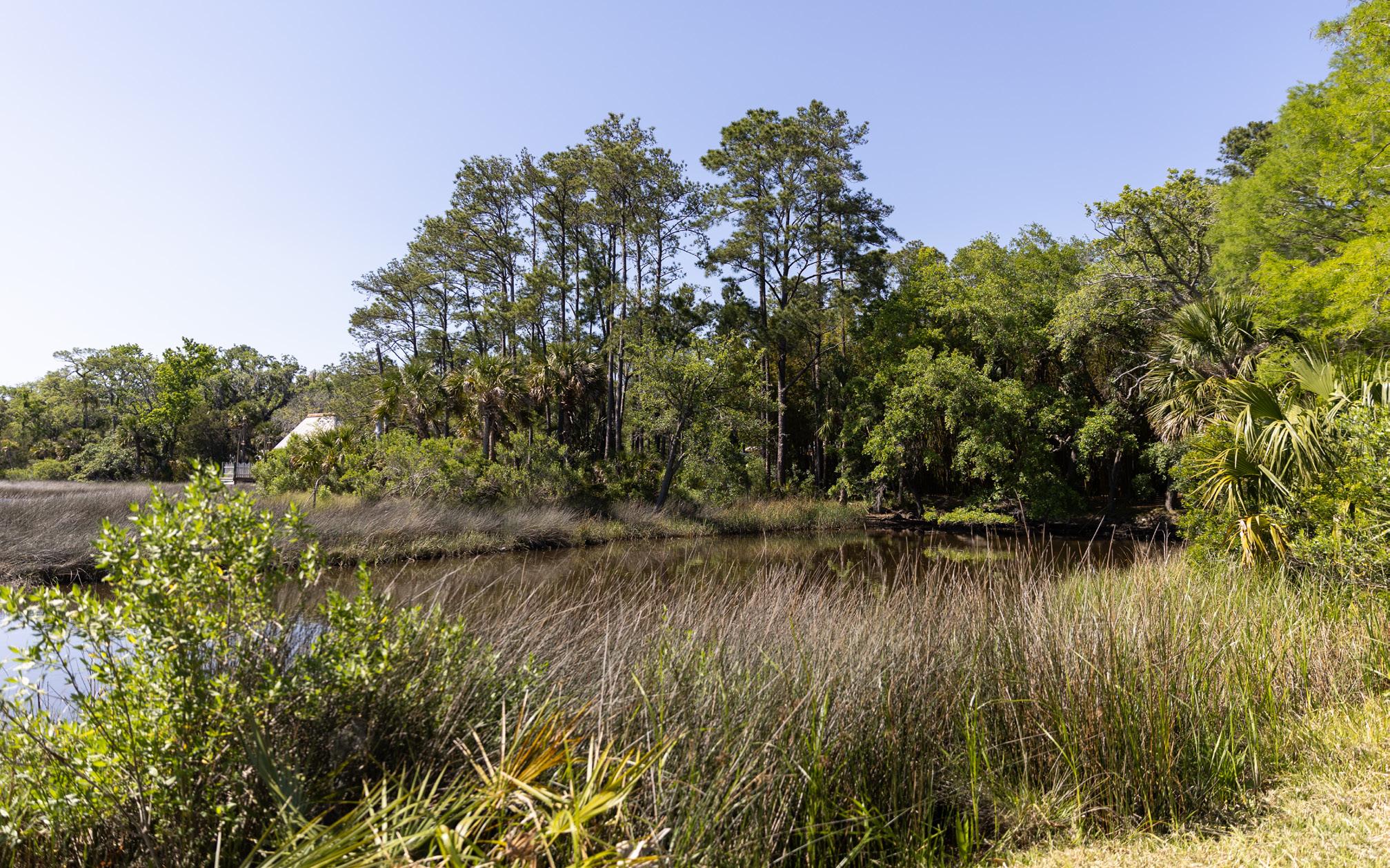
This year, significant strides were made in the preservation of trees, particularly in raising awareness and safeguarding Jacksonville’s exceptional specimen live oak trees. The City of Jacksonville defines these remarkable trees as those with a trunk diameter greater than 24 inches—an indicator that they are at least 100 years old.
As part of our long-term vision, we have incorporated these historic trees into our master planning efforts. One of the most exciting developments is a proposed event space in the southwest corner of our
property, home to 23 exceptional specimen live oaks. This space will be carefully designed and constructed to highlight and protect these trees, ensuring they remain a central and cherished feature.
To further our conservation efforts, the Horticulture and Philanthropy teams launched the Legacy Tree Program, providing individuals and groups with the opportunity to name and register exceptional specimen live oaks.
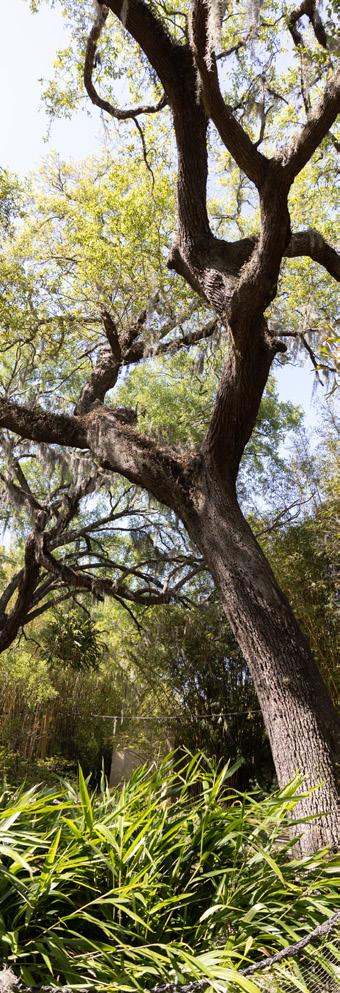
This year marked significant professional growth for our Horticulture team. Lead Horticulturists Jennifer Dambrose and Cheo Rodriguez attended the Association of Public Gardens Annual Conference in Boston—the first representatives from the Zoo to attend in many years. Their experience fostered collaboration, introduced innovative horticultural practices and provided inspiration from top botanical gardens.
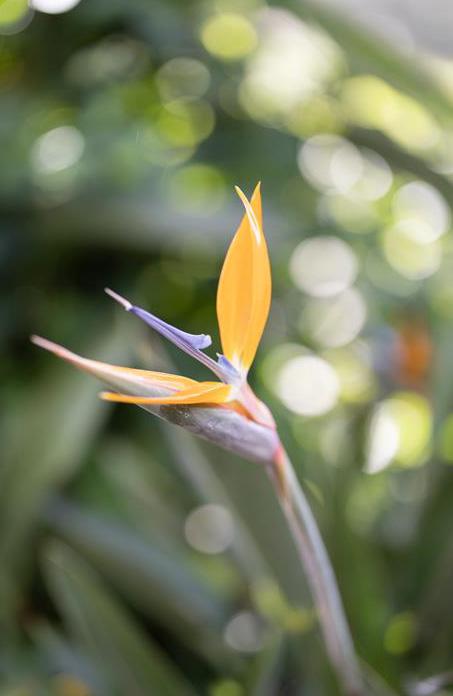
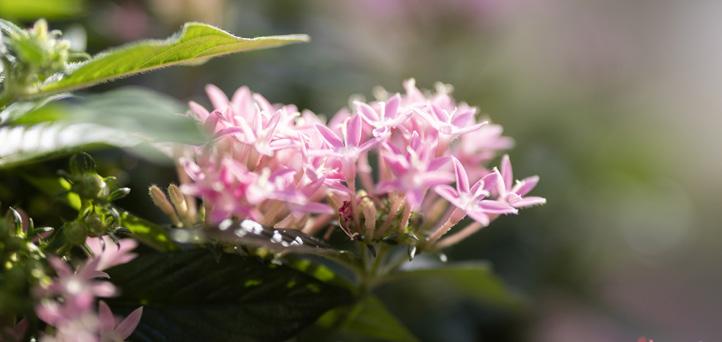
Horticulture Technician Devin Deschenes developed and now teaches a toxic plant class for new Horticulturists, Animal Care Specialists and educators, covering 30 of the most common toxic plants at the Zoo.
Additionally, Jennifer and Devin expanded their leadership roles, co-chairing the Culture and Safety Committees at the Zoo.
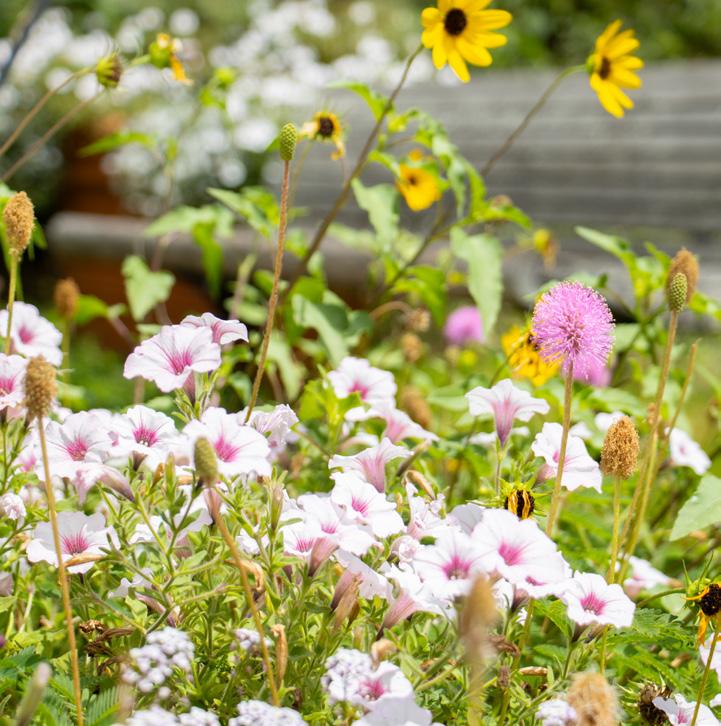


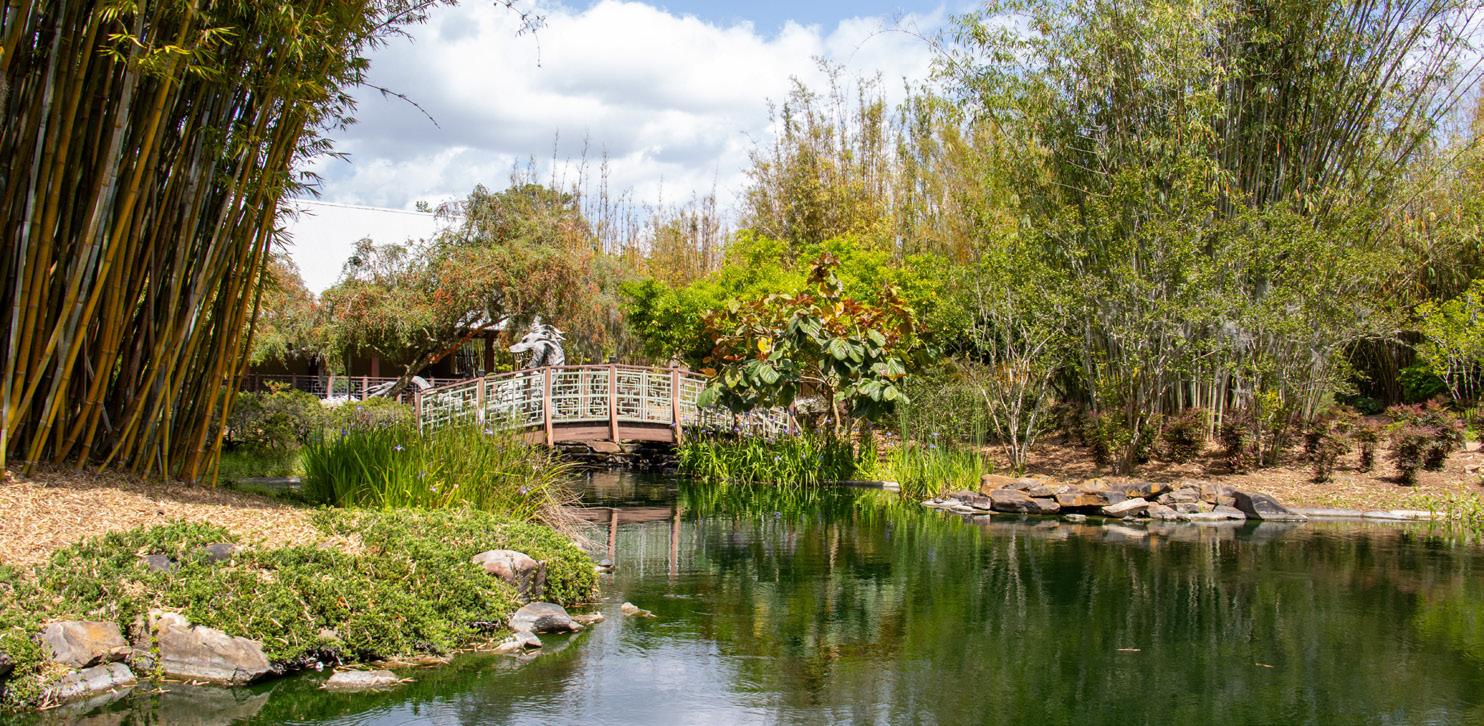
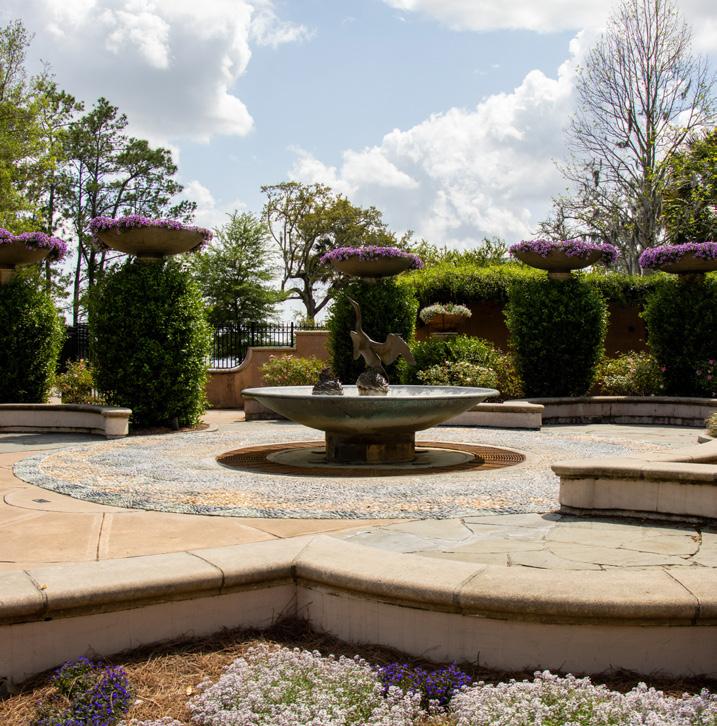

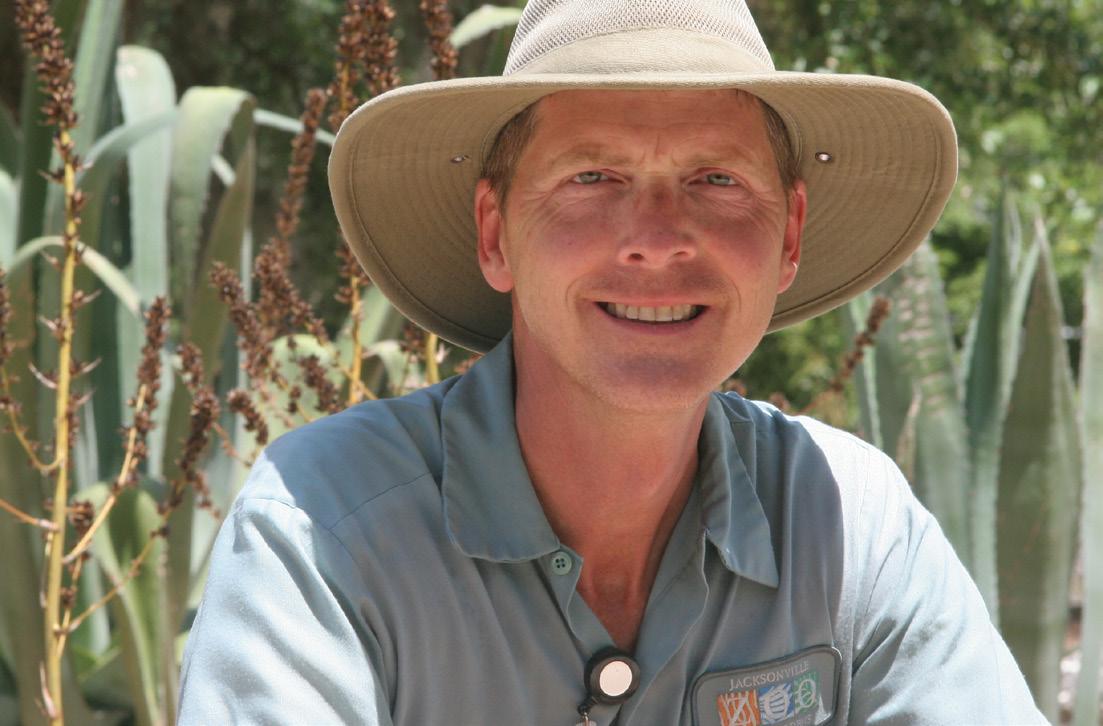
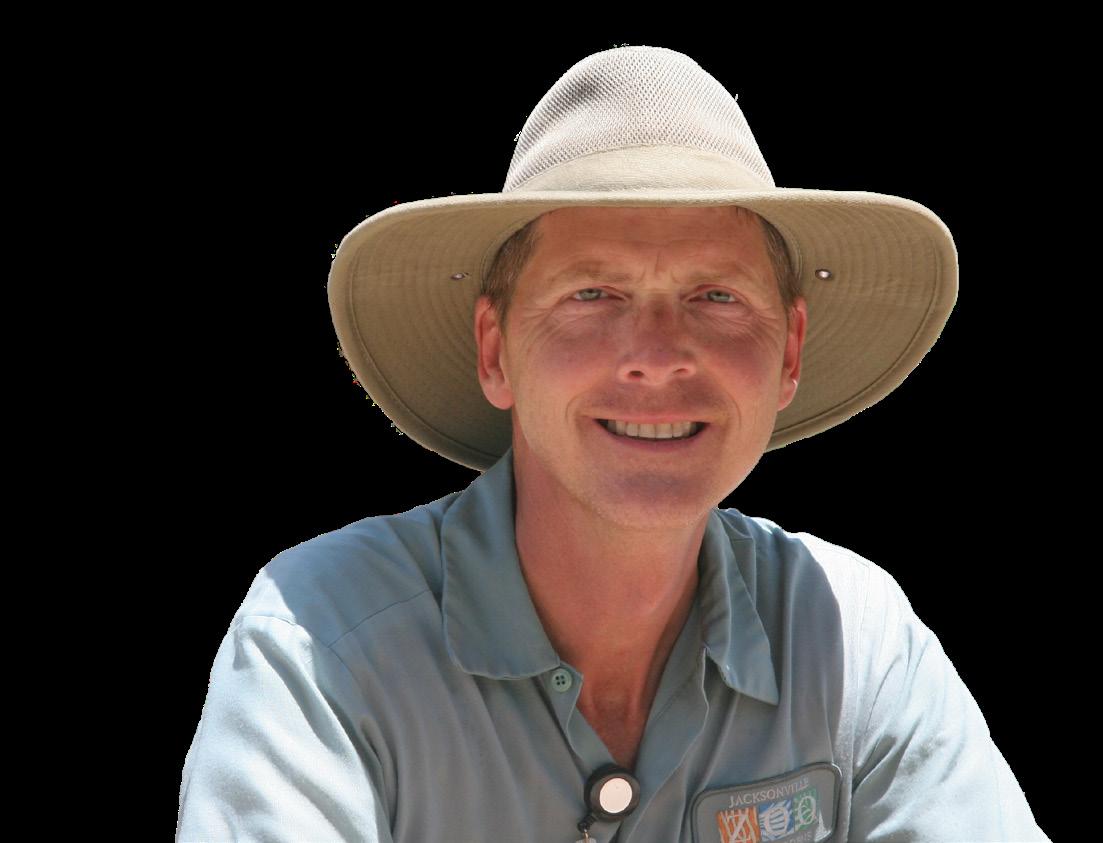
We are deeply saddened by the loss of our dear friend and colleague, David Parker-Blackburn, who passed away after 18 years of dedicated service to Jacksonville Zoo and Botanical Gardens. As a cherished member of our Horticulture team, David poured his heart into the gardens he lovingly tended, leaving behind a legacy of beauty and growth that will forever enrich our grounds.
David was more than a skilled gardener—he was a source of joy and warmth to everyone who had the privilege of knowing him. His ever-present smile and kind spirit brightened even the toughest days. His presence will be deeply missed by his colleagues, friends and all who admired his artistry in the gardens he nurtured. As we walk through the spaces he cared for, we are reminded of his dedication and the profound impact he had on our team and our mission. We extend our deepest sympathies to David’s family and loved ones during this difficult time. May the beauty he brought into the world continue to inspire and comfort all who experience it.
Rest in peace, dear friend. Your roots are forever part of the Zoo and your legacy grows on.

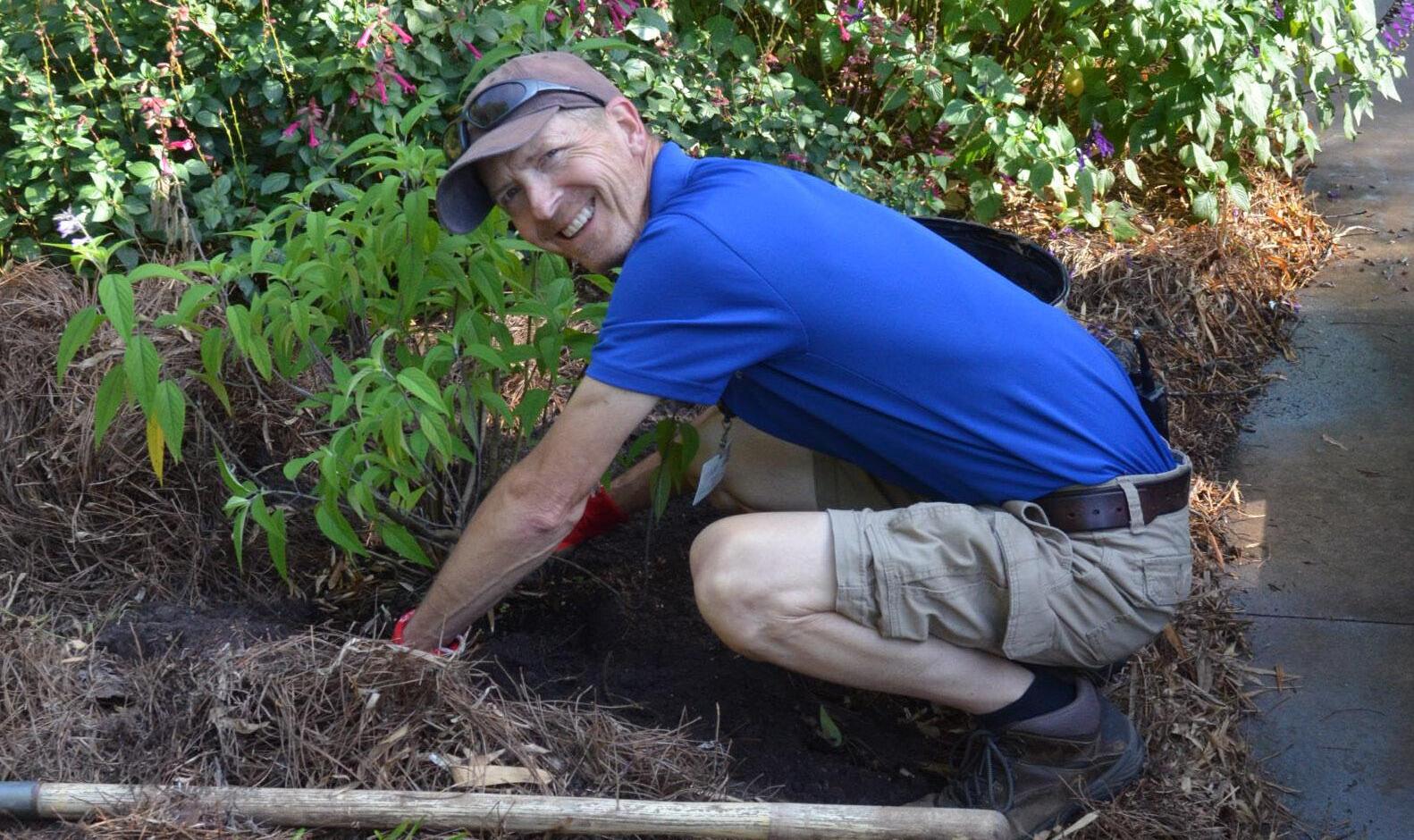
We are proud to be a part of the Advanced Inquiry Program (AIP), a unique graduate degree opportunity where students earn a Master’s in Conservation Biology from Miami University in Ohio. The AIP combines flexible online coursework with hands-on, in-person experiential learning.
During this academic year, we welcomed 11 students into the AIP, with nine students from our second cohort graduating with their master’s degree.
The program ran eight graduate-level courses, including Regional Ecology, Climate Change and Environmental Leadership, equipping students with the skills and knowledge needed to drive meaningful change in the field of conservation.
Adam Behring, Wood Stork Cohort
For Adam Behring, working with wildlife was a childhood dream—one that took an unexpected detour. Though he once imagined himself as a zookeeper, his path led him into the world of technology, where he spent 11 years in computer science after earning both a bachelor’s and master’s degree. But over time, he found himself longing for something more.
That’s when he discovered the Advanced Inquiry Program (AIP) at Jacksonville Zoo and Botanical Gardens. He saw the program as the perfect opportunity to pursue his interests while maintaining
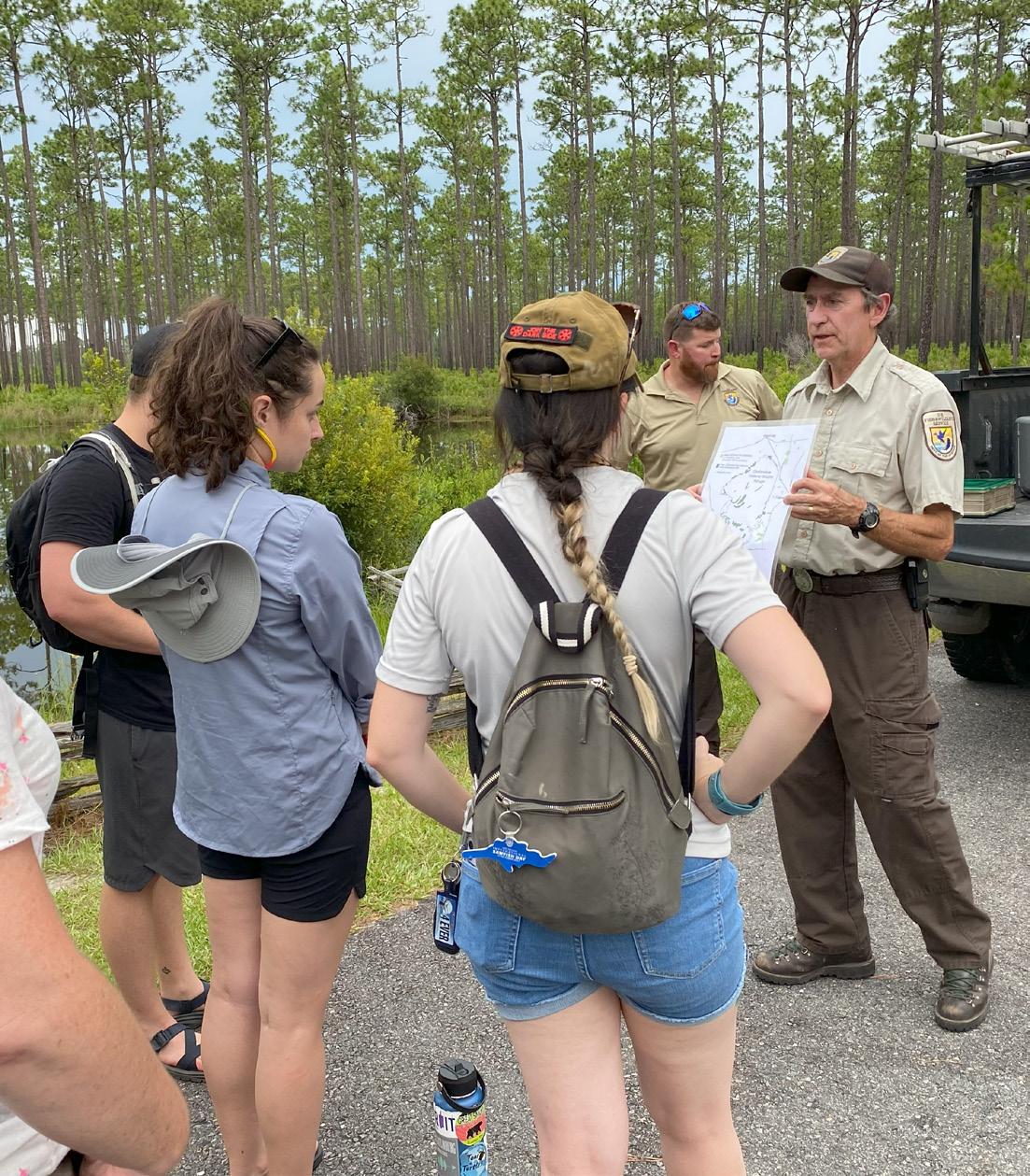
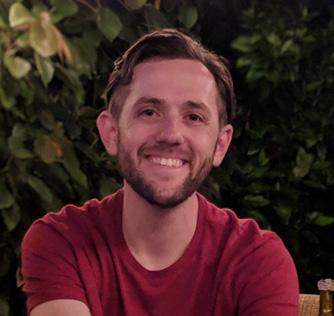
his full-time career. Now entering his final year, Adam credits AIP with helping him connect with conservation professionals, expand his knowledge and make meaningful changes in his own life.
The coursework has impacted my personal choices. I started composting for one of my courses, and even though I live in an apartment now, I’ve continued,” Adam shares.
His work centers on plant conservation, with a goal to inspire awareness and appreciation for plants within his community.
Viviana Moreno, 2024 Graduate
Viviana Moreno joined AIP to reconnect with academic learning and conservation after earning a biology degree and interning at a Manatee Critical Care Center. The program also enabled her to build a global community of conservationists and combine her love for storytelling with her commitment to environmental advocacy.
A memorable moment in her journey occurred during the course Environmental Stewardship and Your Community, where planting milkweed with her cohort reinforced her sense of purpose. “It was an experience that reminded me how interconnected we are with our conservation efforts,” she reflects.

Wildlife, Inclusion and Leadership Development
The W.I.L.D. Program is a teen leadership initiative supported by grant funding from Kids Hope Alliance, providing at-risk teens from Duval County with parttime employment as educators in Jacksonville Zoo and Botanical Gardens’ Education Department.
This year, the program engaged 25 teens and celebrated five graduates in June 2024. W.I.L.D. also collaborated
with over 40 community organizations, with a strong focus on increasing accessibility to the Zoo. Through these partnerships, 23 organizations received access to the Zoo, guided tours and conservation education programs led by W.I.L.D. participants, furthering the program’s mission of inspiring learning and leadership through wildlife conservation.
“ W.I.L.D. helped change my perspectives on working with and engaging with people, professionalism, the environment and my own abilities.
— Imani Haney, W.I.L.D. 2024 Graduate
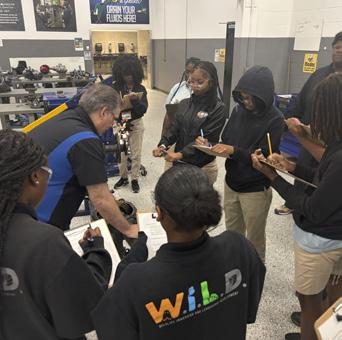

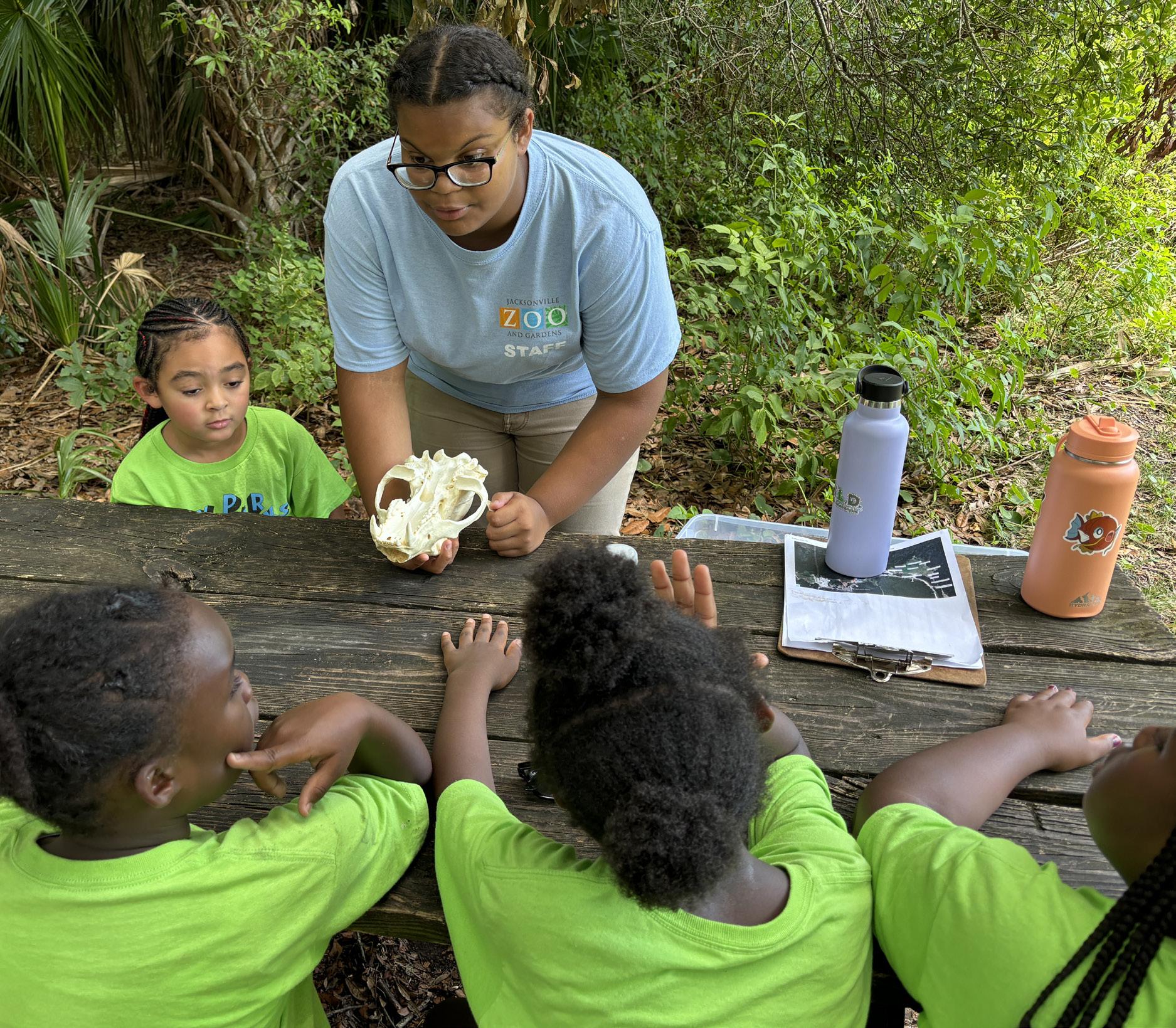
Imani Haney, W.I.L.D. 2024 graduate, attends Georgetown University
When Imani Haney first joined the W.I.L.D. Program as a high school sophomore, she was looking for a job, but she found much more. Drawn to the environment and eager to learn, she discovered a passion for conservation, advocacy and leadership that shaped her future.
One of her most memorable experiences was researching potential conservation partners for the Zoo’s CARE funding, ultimately leading to a collaboration with Wildlands Conservation’s Florida Skinks
research. She also found unexpected enthusiasm for environmental advocacy, with her group’s project on pesticides that won “Best of W.I.L.D.”
Her time in W.I.L.D. opened doors to public speaking opportunities at the UNF-COJ Environmental Symposium and the National Youth Advocacy Resilience Conference, deepening her confidence and expanding her perspective on environmental careers. The program also sparked an interest in public policy and law, which she now plans to study in college.

At Jacksonville Zoo and Botanical Gardens, every event is more than a celebration—it’s a chance to connect, inspire and give back. From annual favorites like Spooktacular to unique member nights and community celebrations, each gathering helps fund the care of our animals and gardens, making every guest a part of our conservation story.
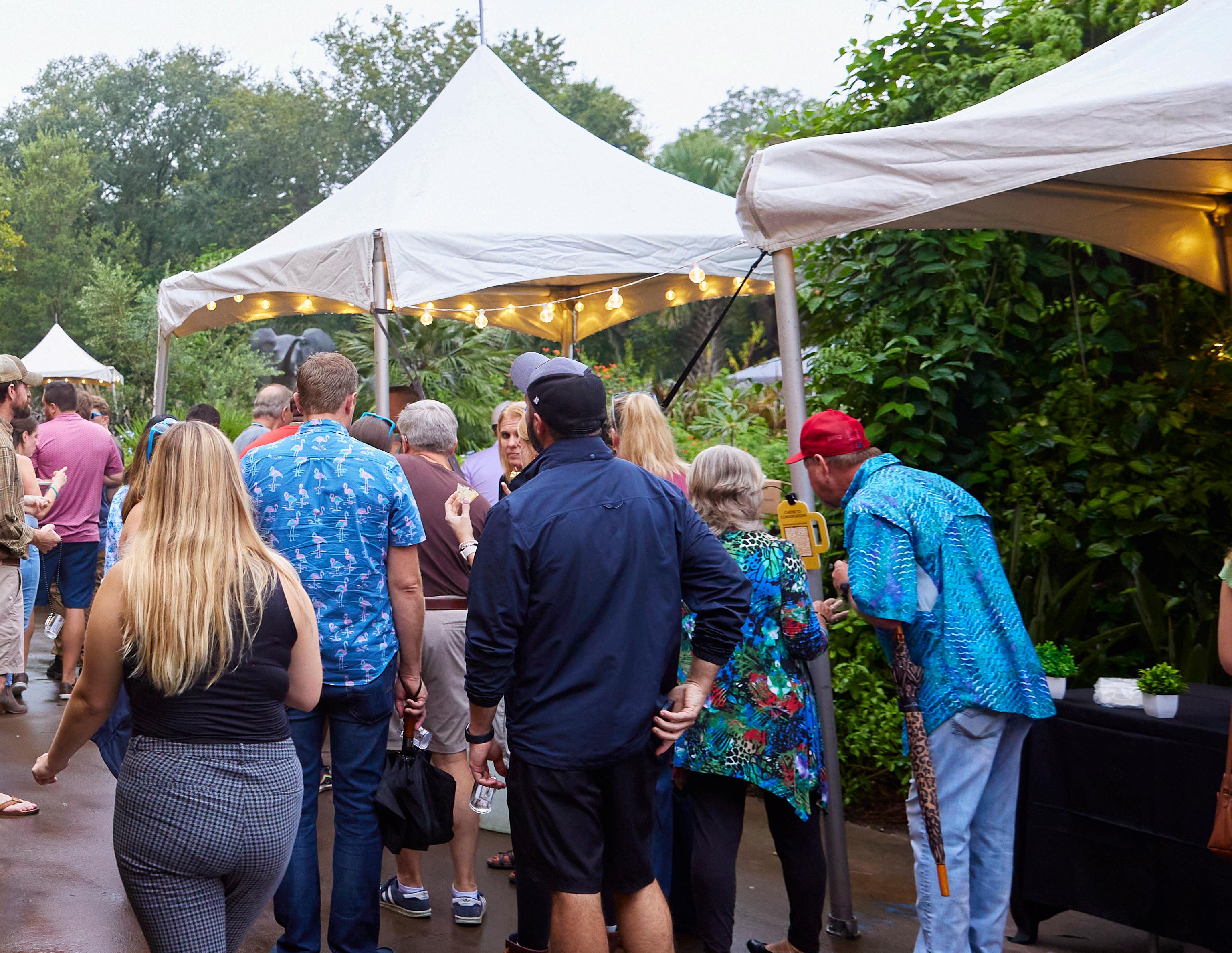
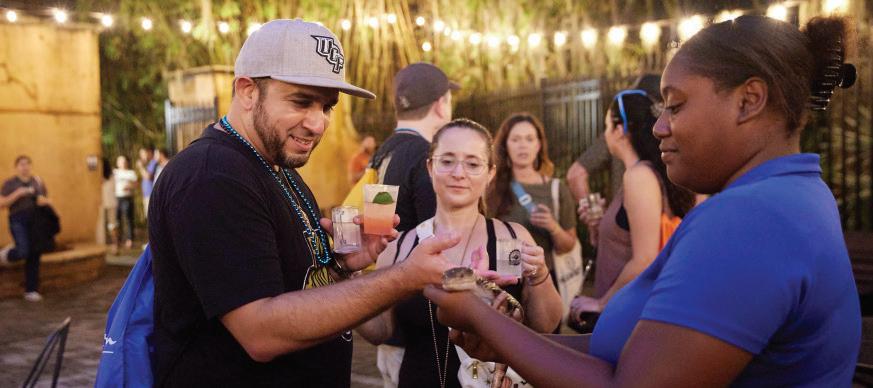
Community Celebration of Wildlife and Craft Brews
We proudly reintroduced our beloved beer and sampling event with a fresh new vision—Conservation on Draft. This exclusive after-hours experience brought the community together for an evening of craft brews, delicious food and a shared commitment to conservation.
More than just a night of fun, Conservation on Draft highlighted the Zoo’s vital conservation efforts, inspiring guests to learn more about how they can support wildlife and habitat protection. By blending entertainment with education, the event successfully fostered a deeper connection between the community and the Zoo’s mission, reinforcing the importance of conservation in everyday life.
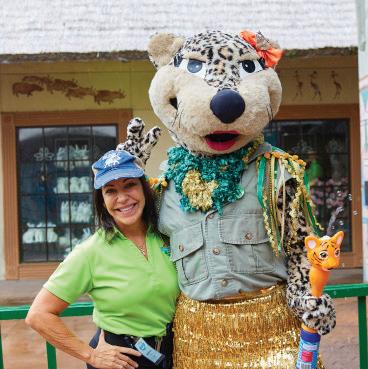



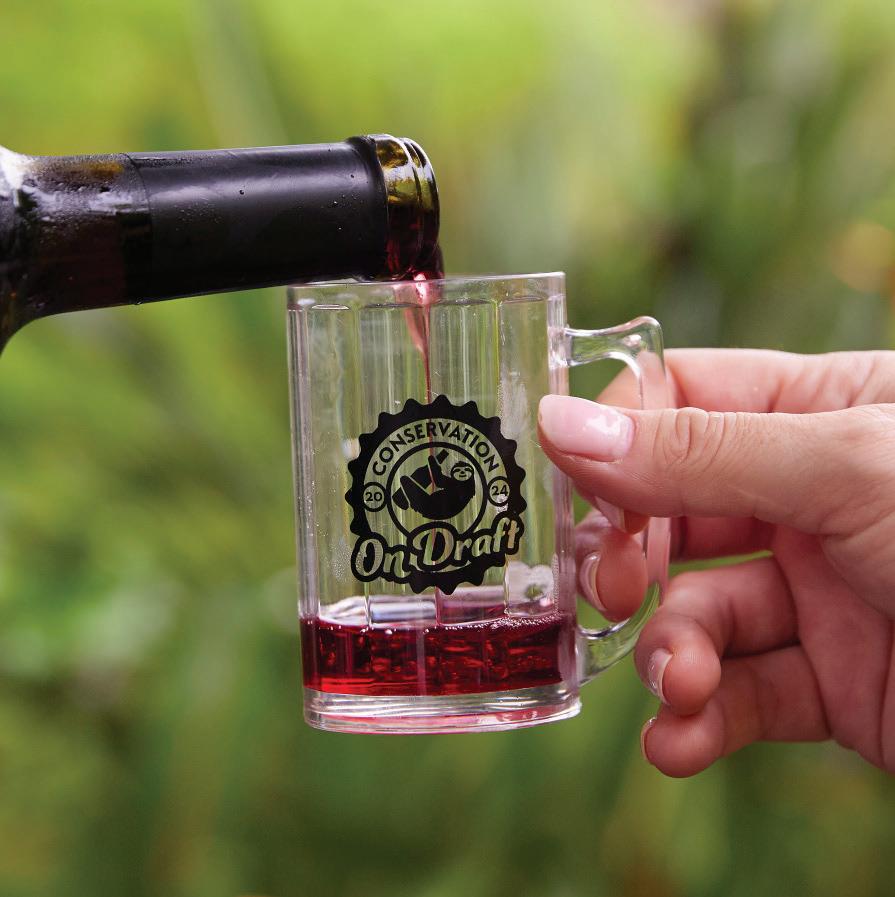


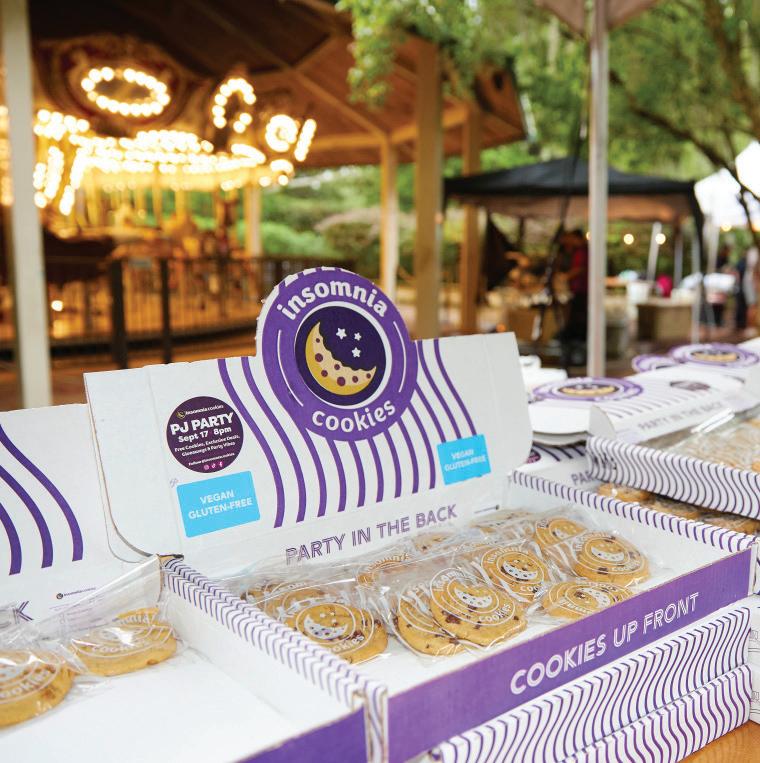

In the winter, we unveiled Colors of the Wild, presented by Community First Credit Union. This event transformed the Zoo into a vibrant display of over 1,000 custom-made silk Chinese lanterns, showcasing intricate scenes of wildlife and nature. Partnering with Tianyu Arts & Culture, Inc., the Zoo illuminated pathways with lanterns depicting fauna, flora and traditional Chinese mythologies, fostering community engagement and cultural appreciation. By blending art, nature and diverse cultures, Colors of the Wild left a lasting impression on attendees, highlighting the Zoo’s commitment to conservation and community connection.
The Zoo and Gardens hosted Botanical Bash, a month-long celebration of its unique botanical gardens and the dedicated efforts of the Horticulture team. From April to May, visitors engaged in diverse activities highlighting plant conservation, water conservation, forestry and the significance of native flora.
The event began with a plant sale, inviting guests to engage with the Zoo’s Horticulture team. Weekend workshops featured seed bomb creation using native wildflower seeds to boost local biodiversity. A native plant scavenger hunt encouraged garden exploration, educating visitors on Florida’s indigenous flora. Festivities concluded with the Art in the Garden Festival, a lively two-day event showcasing over 35 vendors, curated music and living art displays, celebrating the harmonious blend of nature and creativity.
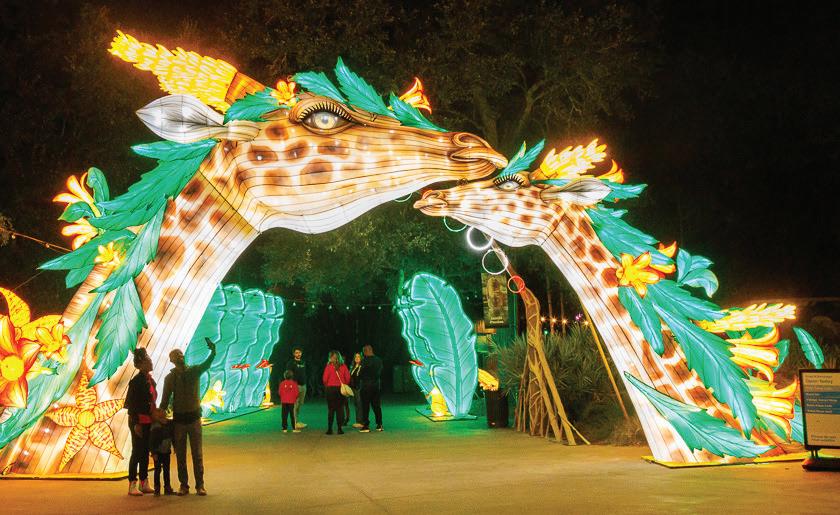


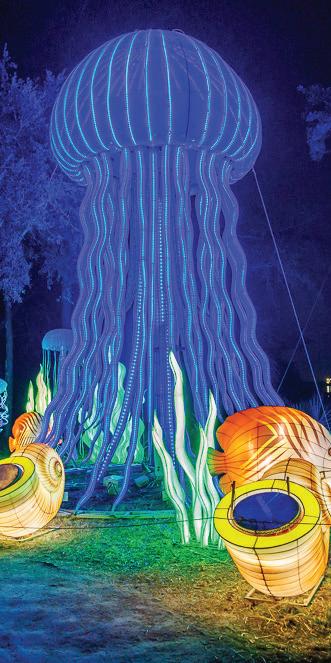
Down in ZOOOval
ExZOOberation: Down in ZOOOval celebrated Jacksonville Zoo and Gardens’ 110th anniversary, uniting 493 guests, 16 sponsors and 23 vendors in support of wildlife conservation. The event featured live entertainment, gourmet dining and a silent auction, which raised $31,000 with exclusive experiences like a Ritz-Carlton stay and a gorilla viewing area dinner. With an expanded footprint, multiple entertainment stages and VIP experiences, the night was unforgettable. Every dollar raised directly supported animal well-being, education programs and conservation efforts, reinforcing the Zoo’s mission to connect communities with wildlife and to protect biodiversity.
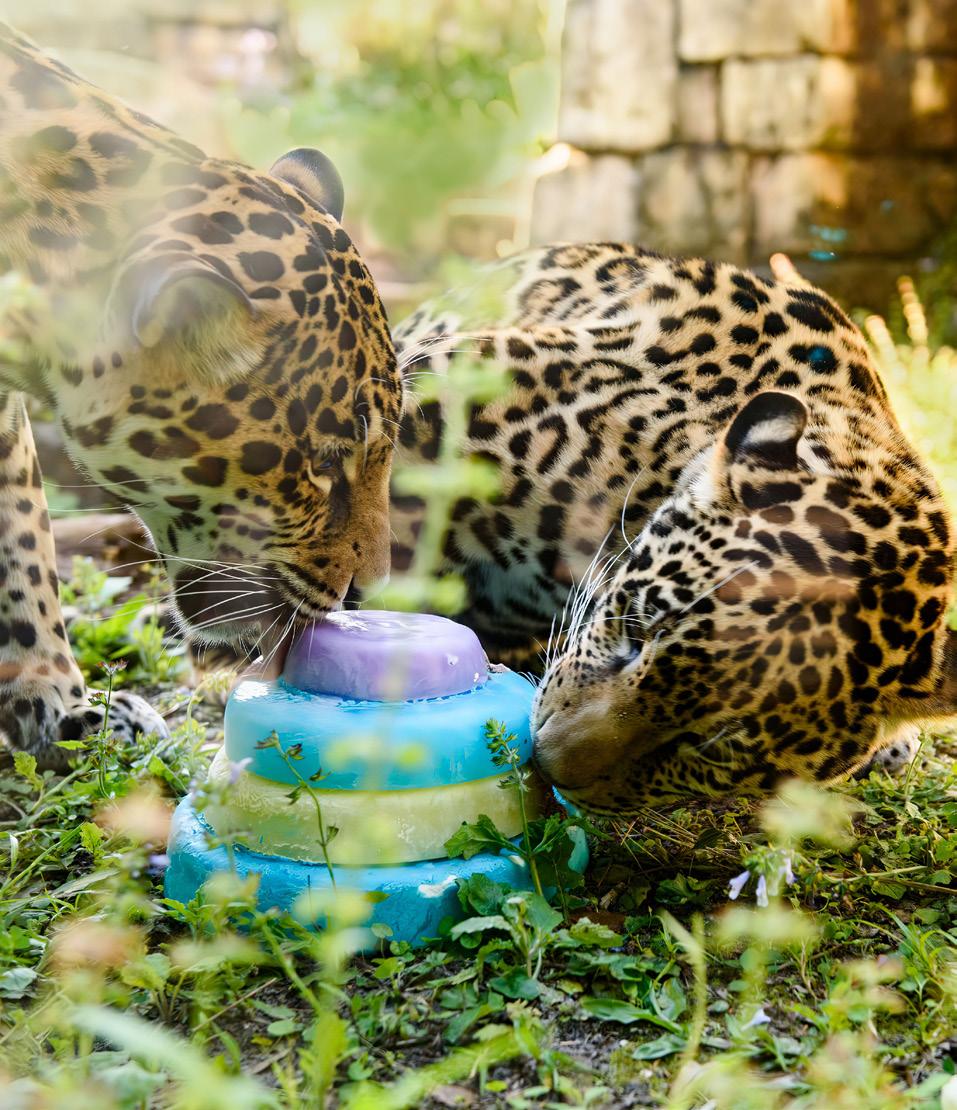




A wild evening of food, fun and fundraising—all in support of wildlife conservation.
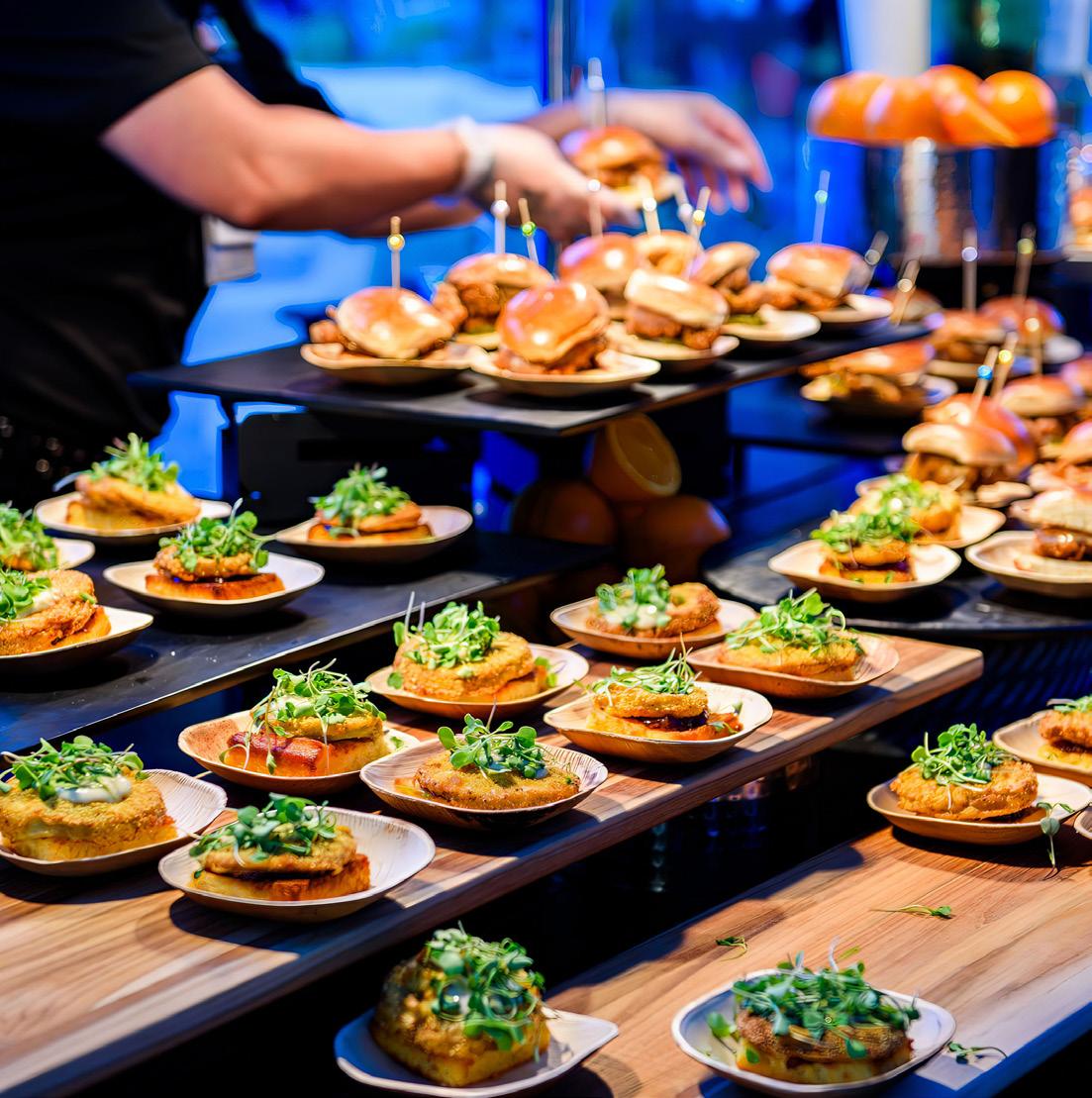

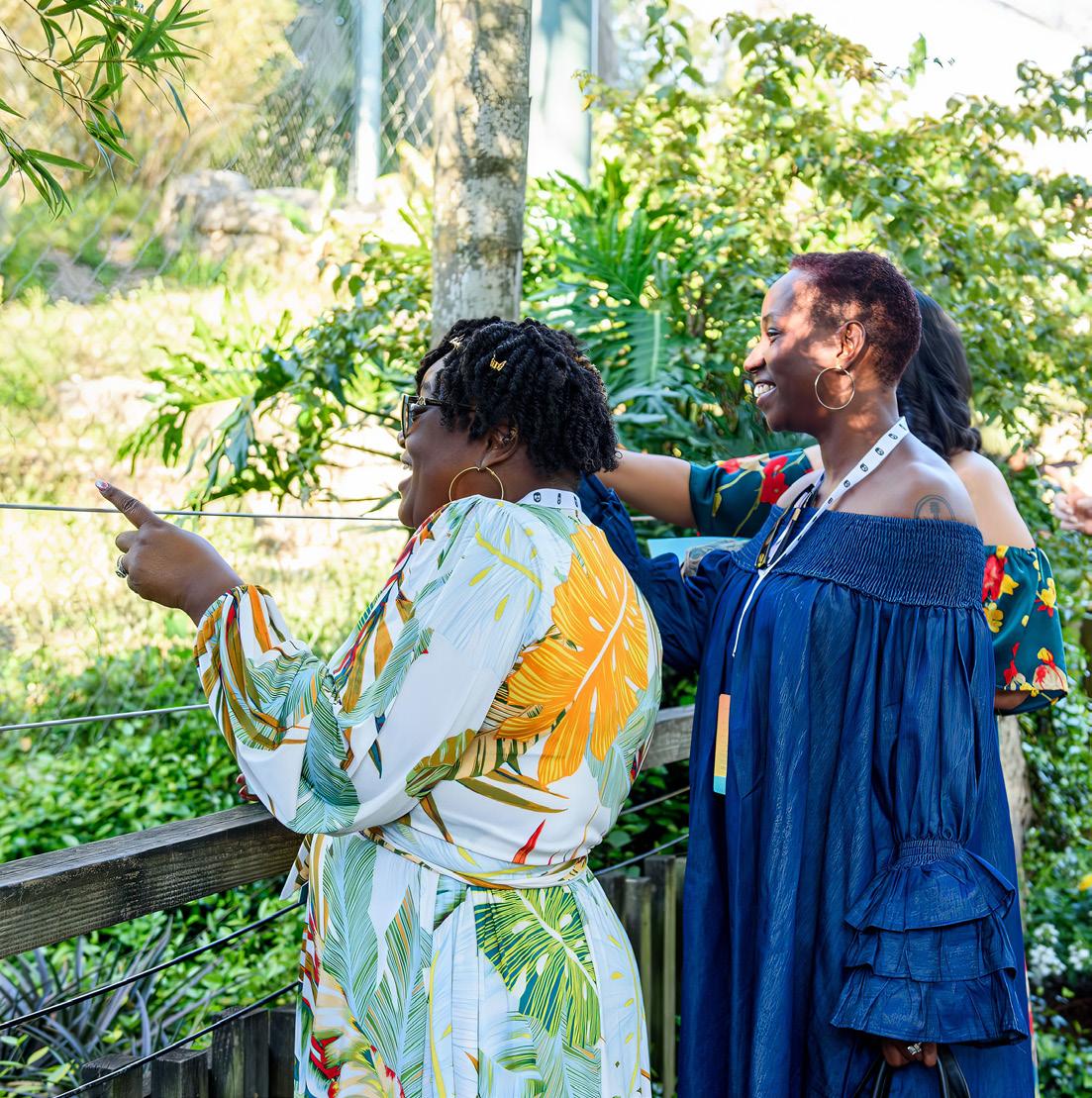
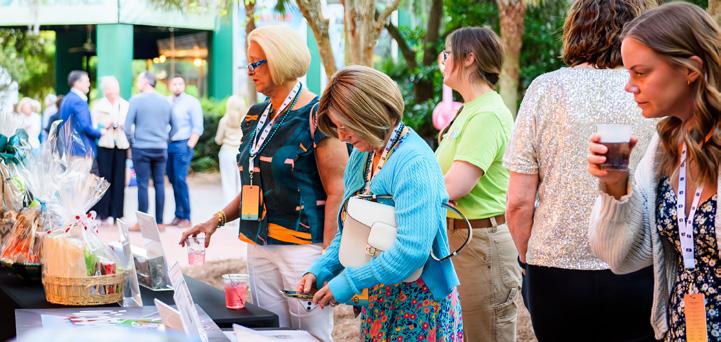
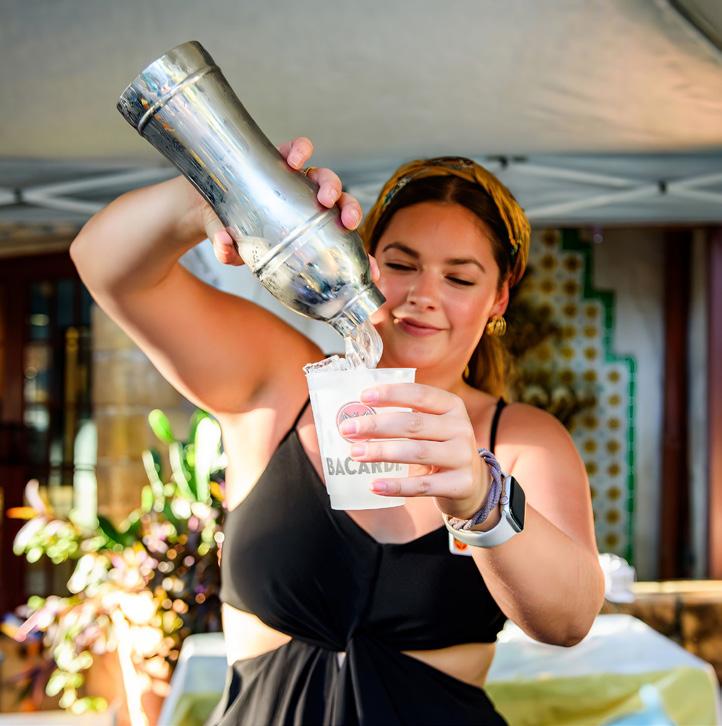
Since 2017, Toast to Conservation has celebrated our commitment to protecting threatened species and ecosystems worldwide. Held at the historic Glass Factory, this event welcomed 127 guests with a champagne tower. VIP attendees enjoyed an exclusive meet-andgreet with Isabella Rossellini, an acclaimed actress and wildlife advocate. The live auction featured a tiger cub naming, behind-the-scenes Zoo tours and Paddles Up for Conservation, benefiting organizations like Friends of Bonobos, Grevy’s Zebra Trust and the International Rhino Foundation.
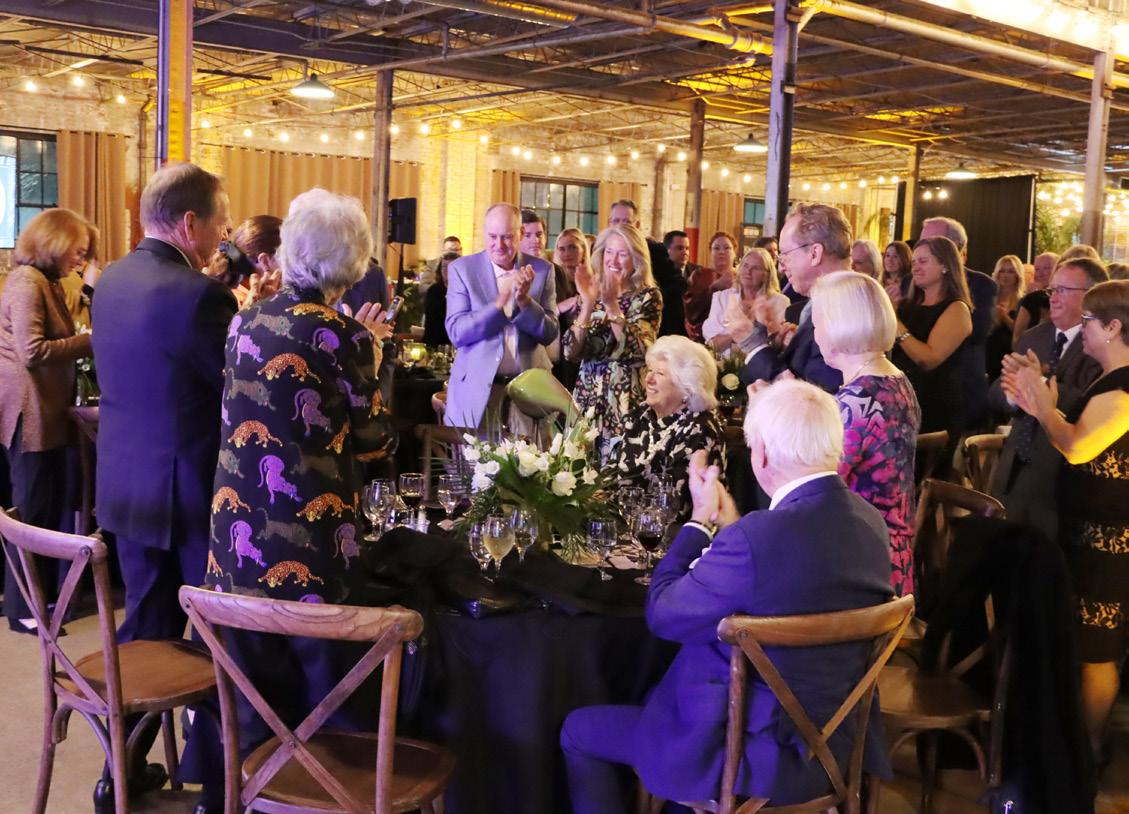
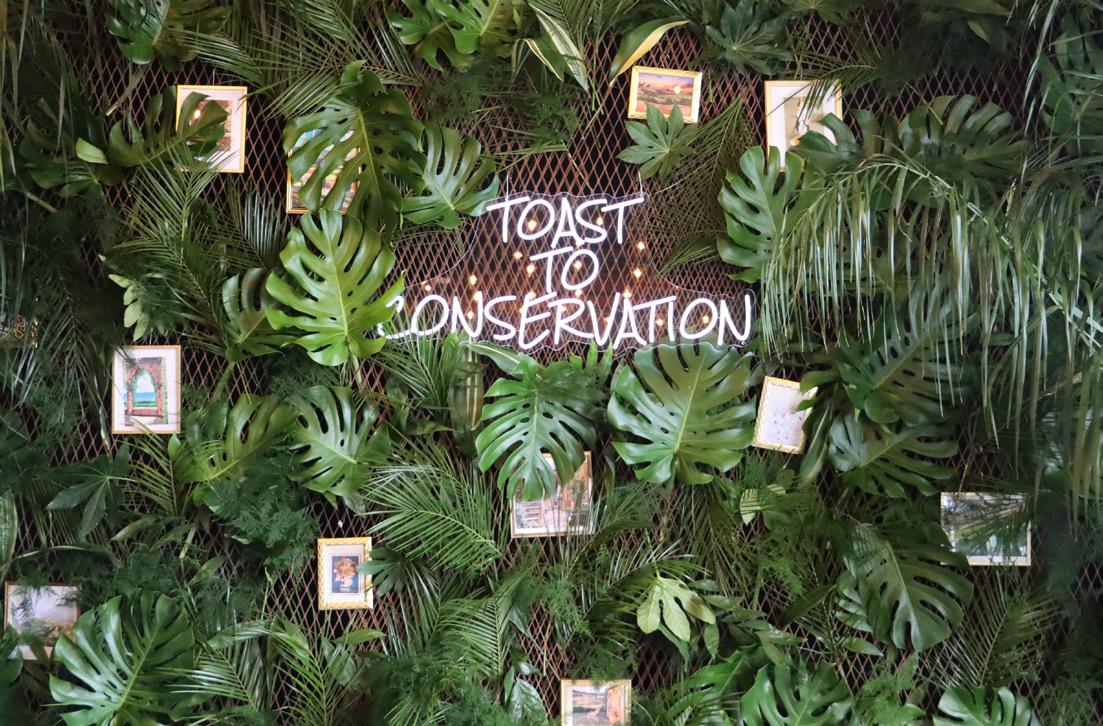
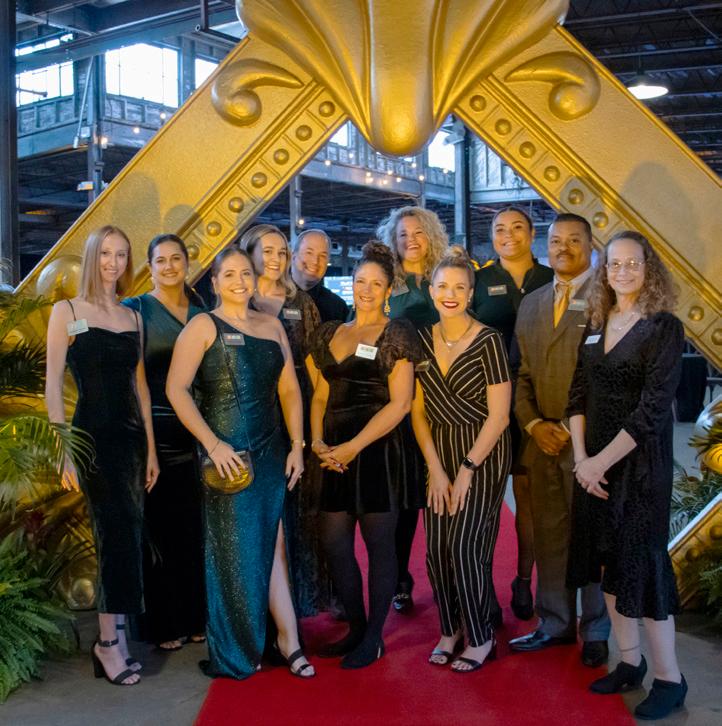
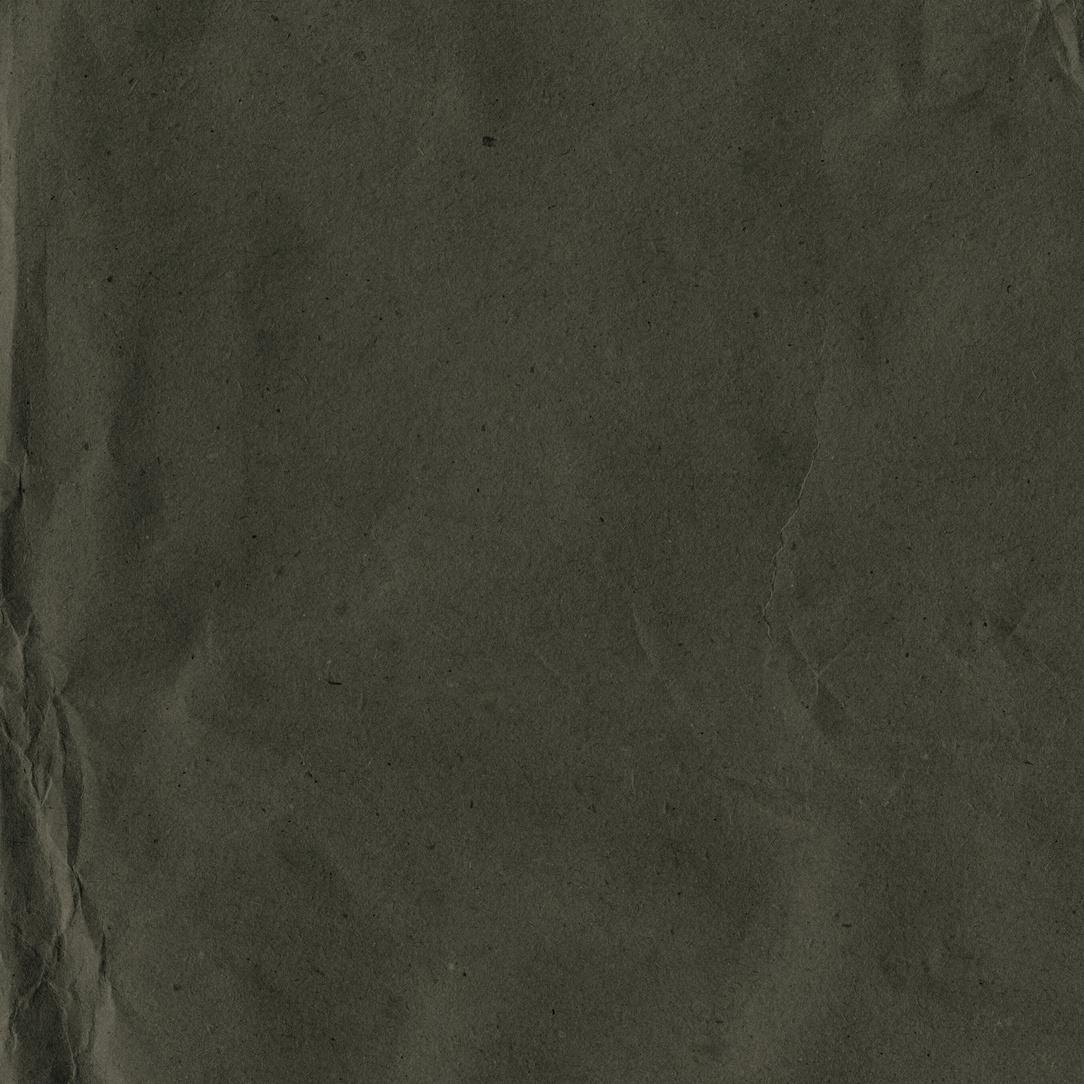

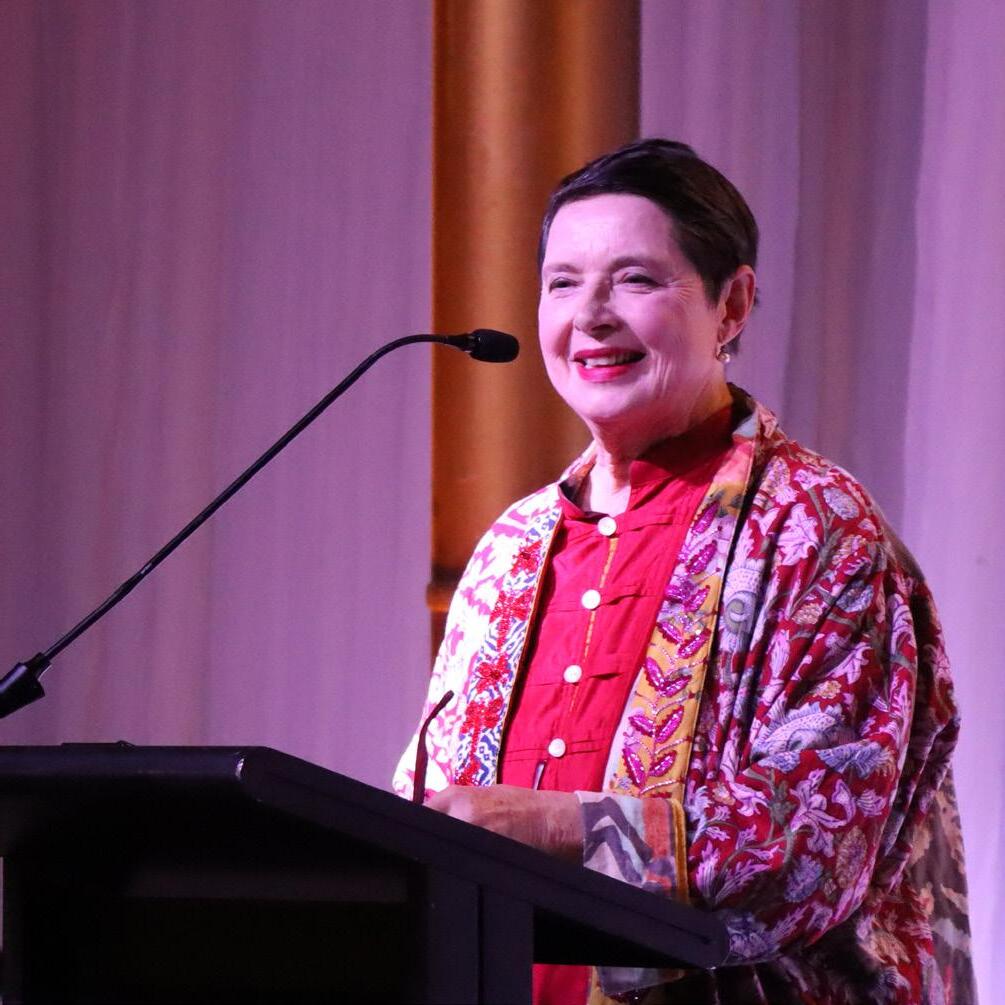
Acclaimed Actress and Wildlife Advocate
Isabella Rossellini is an internationally acclaimed actress, model, writer and producer. She began her career as a model, gracing over 500 magazine covers—including 24 editions of Vogue—and served as a longtime ambassador for Lancôme.
Her film debut was in Il Prato (1979), and she went on to star in celebrated films such as Blue Velvet, Wild at Heart, Death Becomes Her and Big Night, working with directors like David Lynch, Robert Zemeckis and Guy Maddin.
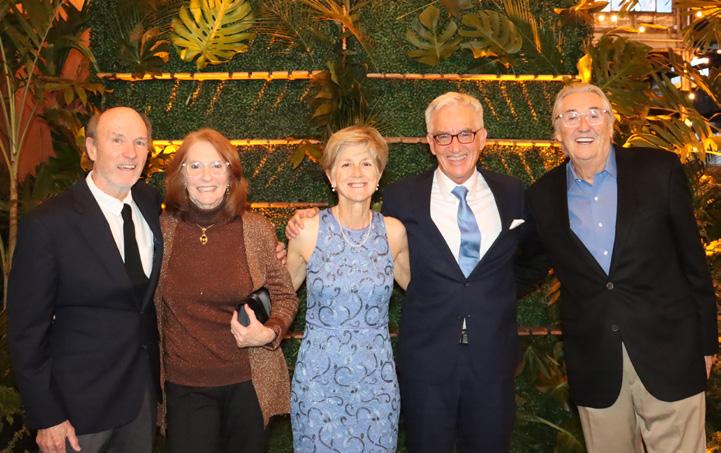
A passionate advocate for science and conservation, Rossellini holds a master’s degree in Animal Behavior and Conservation and received an honorary PhD from UQAM.
Thirty years ago, Jennifer Leggett and her husband became the first non-Zoo employees to get married at Jacksonville Zoo and Botanical Gardens, saying “I do” by the Trout River. To celebrate their 30th anniversary, they returned to the Zoo, hosting family and friends on Shaba Terrace for a memorable celebration with food, drinks, cake and special animal ambassador encounters. Guests also enjoyed exploring the Zoo after the event. The couple owns Lindsey Pest Control, which proudly serves as a Zoo vendor.
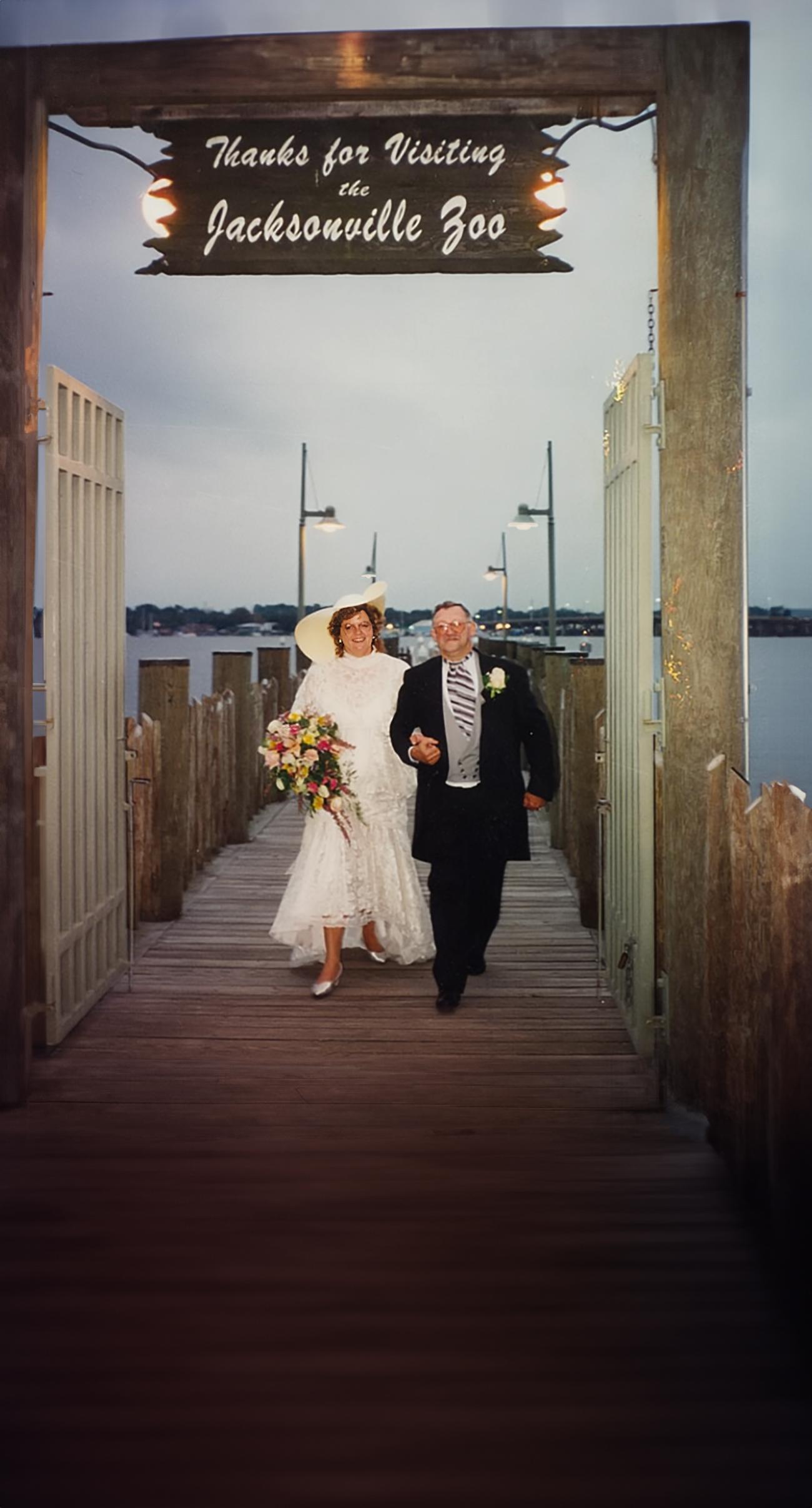
This year our team focused on expanding corporate events, offering tailored experiences such as teambuilding activities, corporate lunches, employee appreciation events and galas. While weddings and social gatherings remain a key part of our offerings, our new strategy also prioritizes corporate clients.
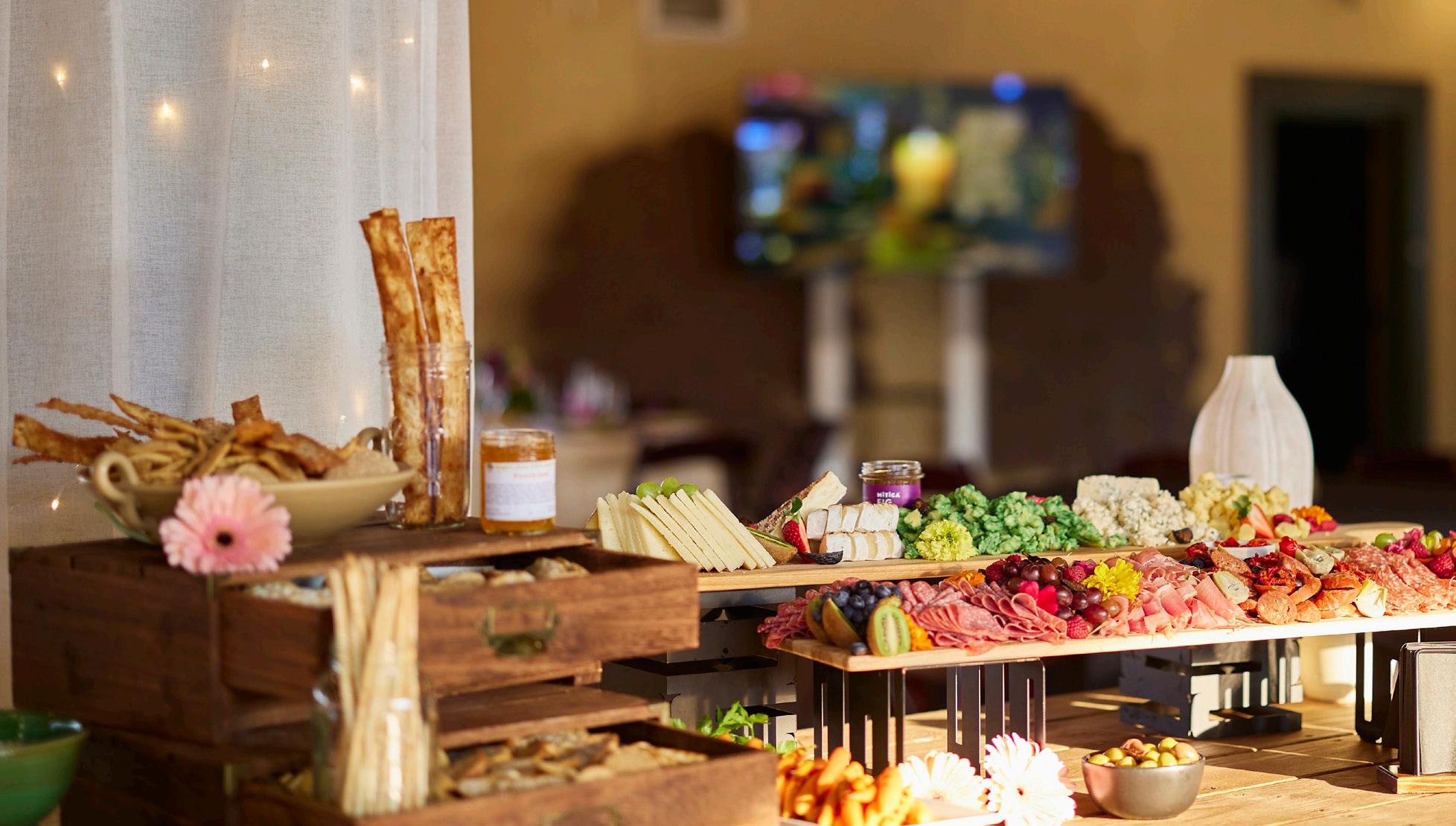
Last year, we partnered with SSA Group to enhance dining, retail and catering. Guests now enjoy fresh meals like vegan options, smash burgers and healthier kids’ choices, along with a waterfront beer bar featuring live sports. The partnership emphasizes sustainability, using local vendors like Premier Produce and Mayday Ice Cream, and eco-friendly practices throughout. SSA also provides custom catering for private events at the Zoo.
With these improvements, the Zoo continues its commitment to providing an exceptional and seamless guest experience.
A major success has been blending Zoo-wide events with private celebrations, offering guests catered spaces and special pricing for events like Spooktacular and Colors of the Wild. New add-ons like Animal Mascot Greeters and face painting enhance birthdays and corporate gatherings. We modernized the Boardroom for professional, catered meetings and expanded wedding options with multispace bookings, making the Zoo a top event destination.
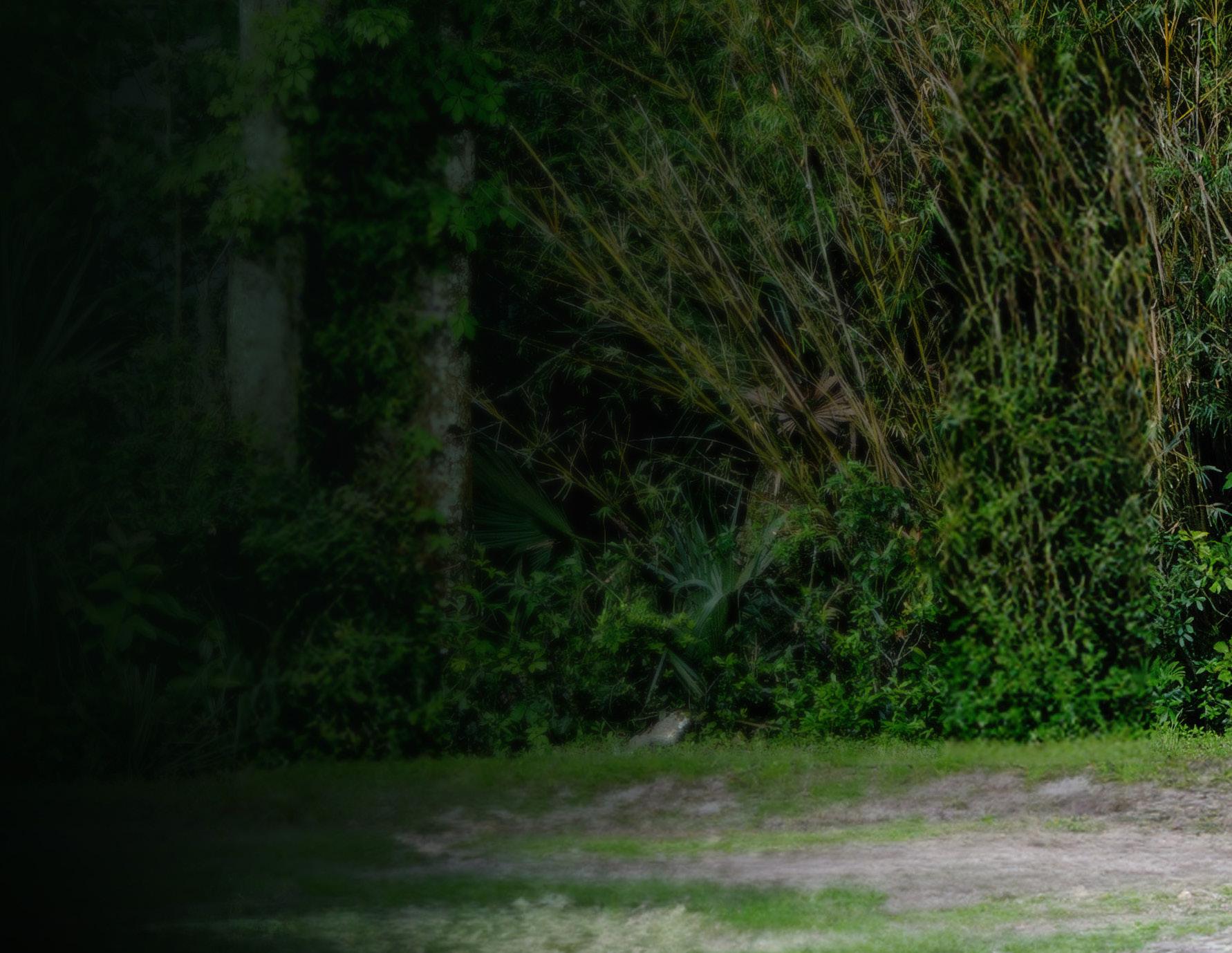
As a nonprofit, our financial strength is rooted in the generosity of those who believe in our mission. Every contribution, from a family visit to a major donation, helps us care for animals and plants, protect wild places and inspire future conservationists.
FY 2023- 2024 Revenue
$14,249,872
$10,232,820
$1,950,114
$5,377,439
$3,168,752
$4,938,801
$3,426,760 $43,344,558
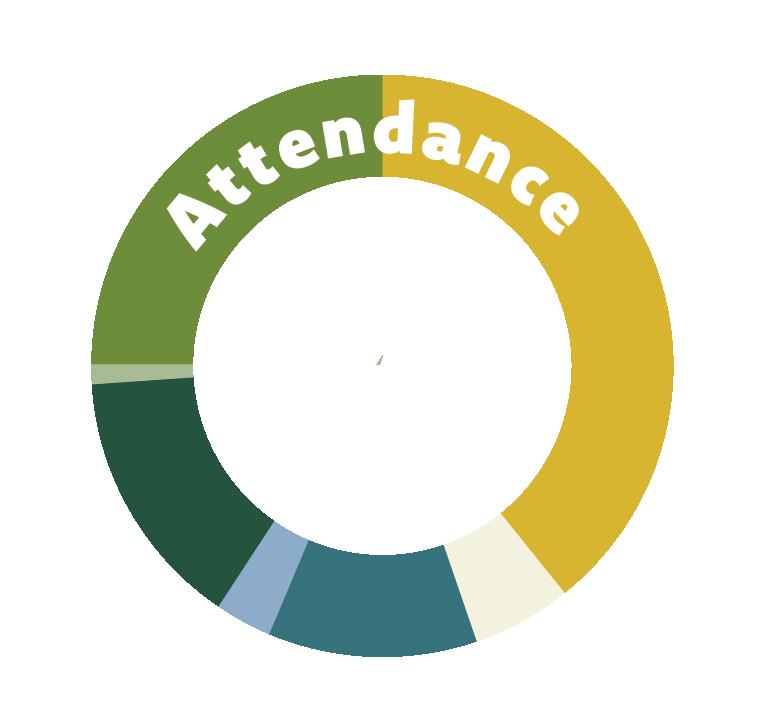
Contributions Breakdown
$8,690,458
$273,760
$234,869
$1,675,267
$1,477,864
$1,897,654
$14,249,872
FY 2023-2024 Expenses
$25,692,216
$2,247,200
$4,397,927
$1,150,167 $33,487,510
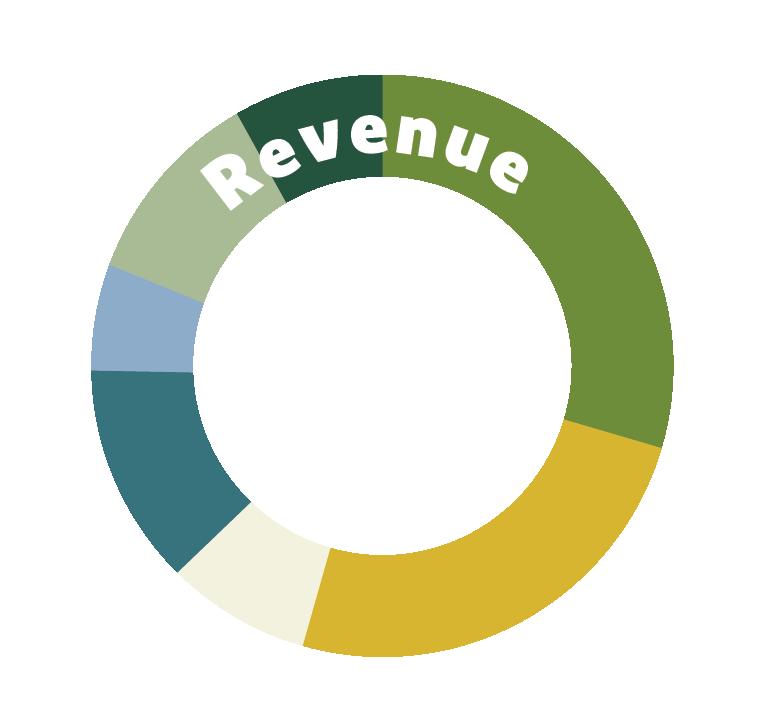

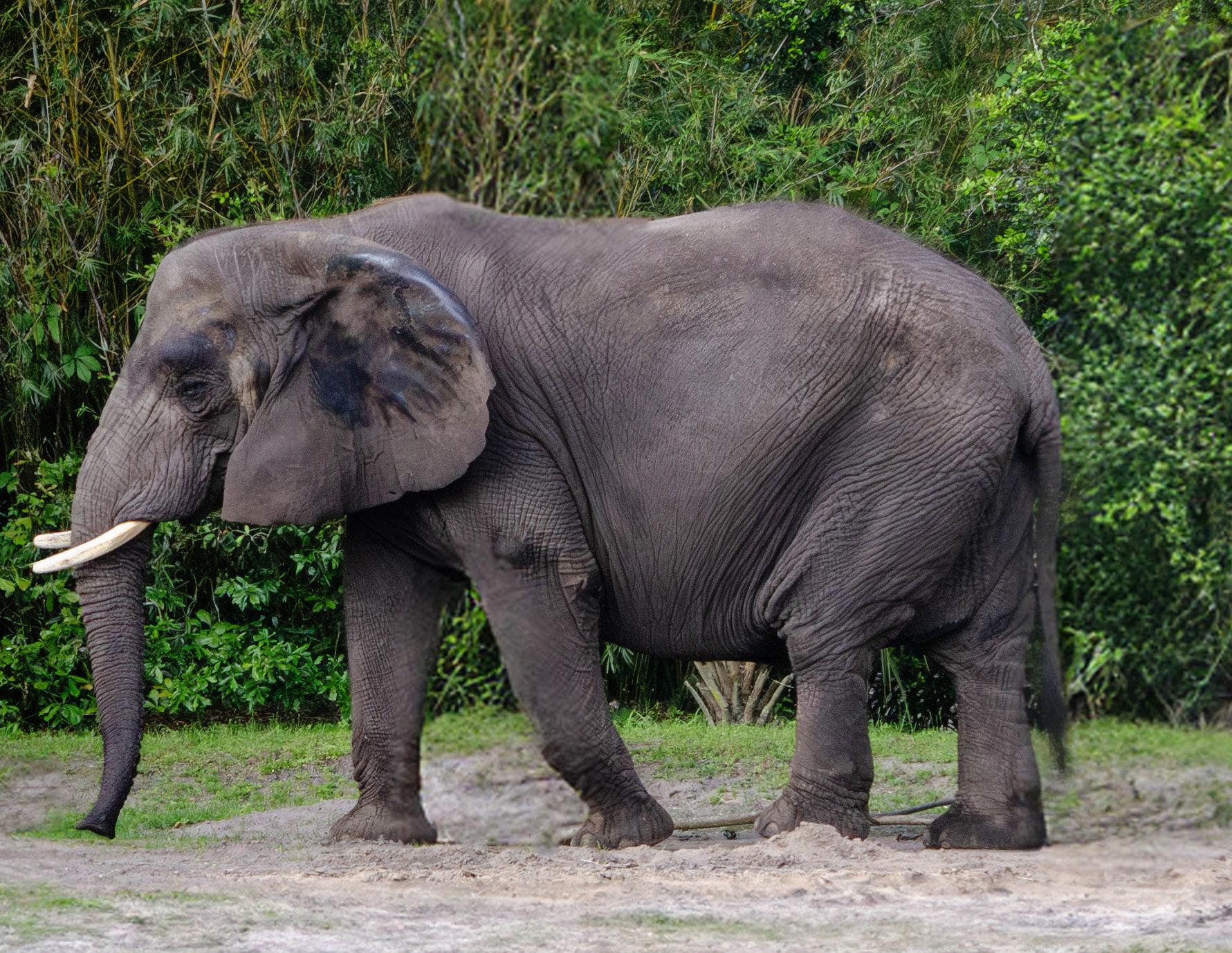
You play a crucial role in advancing our mission to support animal care, habitat preservation, education programs and innovative conservation initiatives, ensuring a sustainable future for wildlife and enabling impactful experiences for generations to come. Join us in securing a legacy through the enduring impact of these initiatives.

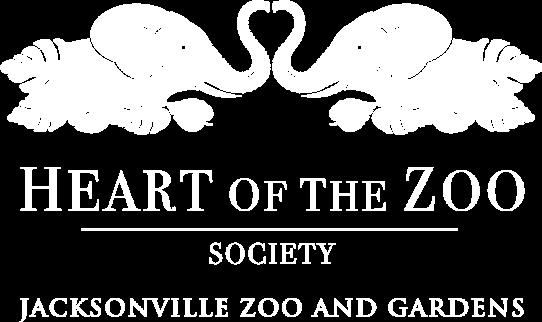
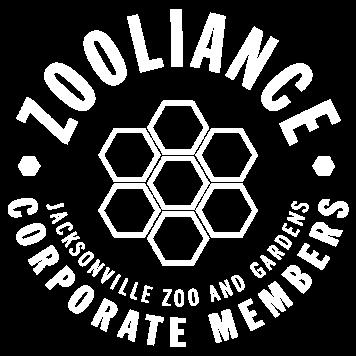
With a membership to Jacksonville Zoo and Botanical Gardens, you’ll have access to a plethora of benefits, like visiting your favorite exhibits as often as you like— while taking advantage of special discounts, invitations to Membersonly events, exclusive news and more! Plus, memberships play a vital role in helping us tackle critical issues affecting endangered species and you can feel good knowing you are helping support our conservation initiatives here and around the world.
The Heart of the Zoo Society is an esteemed community of passionate individuals committed to elevating their support for the Zoo through high-level annual giving. Members of this exclusive society enjoy unique privileges, exclusive access and a profound opportunity to significantly impact our conservation efforts and the Zoo’s mission, ensuring a vibrant future for wildlife and exceptional experiences for all.
Take your commitment to the next level by joining Zooliance, where your corporation can enhance employee benefits with exclusive Zoo perks, establish valuable connections through business-tobusiness opportunities and boost brand visibility at North Florida’s premier cultural attraction. By joining Zooliance, you not only gain unique access to the Zoo but also actively contribute to the growth and support of your regional zoo and botanical gardens, making a meaningful impact on both your business and the community.

You can make a lasting impact. To support our mission to connect communities with wildlife and wild places, please call us at (904)757-4463 or email philanthropy@jacksonvillezoo.org.

A cash gift provides immediate support to Jacksonville Zoo and Botanical Gardens and qualifies as a tax-deductible charitable donation.
Your recurring monthly contribution drives crucial global conservation efforts, supports the care of various animals and plants at the Zoo and fosters hope for exceptional wildlife, relying on our consistent support for their daily flourishing.
Through employee donation matching programs, your charitable contributions are doubled, amplifying the impact and support for the Zoo.
Include a bequest in your will or living trust, specifying a particular amount, asset, or a percentage of your estate.
Opt for a fixed annuity payment or variable payments tied to the trust principal. Upon maturity, the remaining trust amount benefits Jacksonville Zoo and Botanical Gardens.
Receive fixed payments based on your age for life. After the annuity’s duration, the remaining amount supports the Zoo.
Build meaningful community connections at Jacksonville Zoo and Botanical Gardens through corporate partnership, supporting wildlife conservation and education. From small businesses to large enterprises, our corporate partners help keep the Zoo a vital cultural resource on the First Coast.
Contributions of appreciated property, such as stocks and real estate, can result in a charitable income tax deduction for the property’s full, fair-market value. Additionally, donors can avoid paying capital gains tax on the appreciated value.
For donors aged 70 1/2 or older, a direct transfer of up to $100,000 from an IRA to Jacksonville Zoo and Botanical Gardens can fulfill the required minimum distribution and offer support.
Partner with the Zoo to advance diverse projects and programs, from saving endangered species, establishing new habitats, assisting underserved communities, inspiring future generations, and more.
Naming the Zoo as an IRA beneficiary is a tax-efficient method of charitable giving, avoiding various estate and income taxes.
Designating the Zoo as a life insurance beneficiary is a straightforward way to support our mission without relinquishing current assets.
Zoo sponsorships from corporations are of paramount importance, serving as crucial pillars that sustain conservation efforts, educational programs and animal welfare initiatives. Through these sponsorships, your corporation becomes a key player in maintaining the vitality of the Zoo while fostering a shared commitment to environmental stewardship.
Executive Committee
Lucia Lindsey, Chair
Chuck Ged, Immediate Past Chair
Kerri Stewart, Chair-Elect/Vice Chair
Salmaan Wahidi, Treasurer/Finance Committee Chair
Kelly Coker-Daniel, Secretary
Pamela Phillips, Governance Committee Chair
John Hayt, Honorary Advisor
Kelli O’Leary, Mayoral Appointee
General Board
Ken Amaro, City Council Appointee
John Baker III
Martha Frye Baker
Scott Chamberlayne
LeAnna Cumber
Mayor Donna Deegan
Kenyonn Demps
Fredrik Eliasson
Dan Fields
Mike Gay, City Council Appointee
Wilfredo Gonzalez
Carolyn LaRose
Missy Peters
Hope Selevan Prober
Paula Renfro
Param Sahni
Jason Spencer
Joel Swanson
Honorary Board
Danny Berenberg
Ivan Clare
Dano Davis
Diane David
Lenore McCullagh
Elizabeth Petway
Herbert Peyton
Clifford Schultz
Frank Surface
Janet Vaksdal Weaver
Martha Baker
J.F. Bryan
Carl Cannon
Howard Coker
Charles Commander
Jed Davis
Matt Fairbairn
Chuck Ged
Joseph Hixon
J. Michael Hughes
Lewis Lee
David Loeb
Richard Martin
Frank Miller
John A. Mitchell
Thomas Schmidt
Bill Rowe
Carl “Hap” Stewart
James Stockton
Penny Thompson
Courtenay Wilson
Strategic Operations Team
Jeff Ettling, Ph.D., President and CEO
Holly Ellis, Chief Financial Officer
Paula Shields, Chief People and Culture Officer
Nikki Smith, Chief Philanthropy & Marketing Officer
David Hagan, Chief Life Sciences Officer
Leanne White, Director of Learning & Conservation
John Lukas, Curator of Wildlife Conservation
Leadership Team
Donna Bear, Curator of Species Management
Teresa Caro, Internal Communications Manager
Tom Cornwell, People & Culture Manager
Chris Dailey, Curator of Horticulture
Tracy Fenn, Curator of Mammals
Doug Hollon, Director of Campus Facilities
Emily Long, Marketing Manager
Anita Martin, Director of Accounting
Todd Martinsen, Director of Business Operations
Aimee McDonnell, Animal Wellbeing and Research Officer
Cullen Richart, Construction Projects Manager
Mike Taylor, Curator of Herpetology, Birds, and Others
Will Taylor, Director of IT
Foster a Deeper Connection with Wildlife
Experience any of the following:
African Elephant Painting
American Black Bear Painting
Sloth Experience
Magellanic Penguin Experience
Greater Flamingo Experience
Visayan Warty Pig Experience
Animal Hospital Tour

